Shows
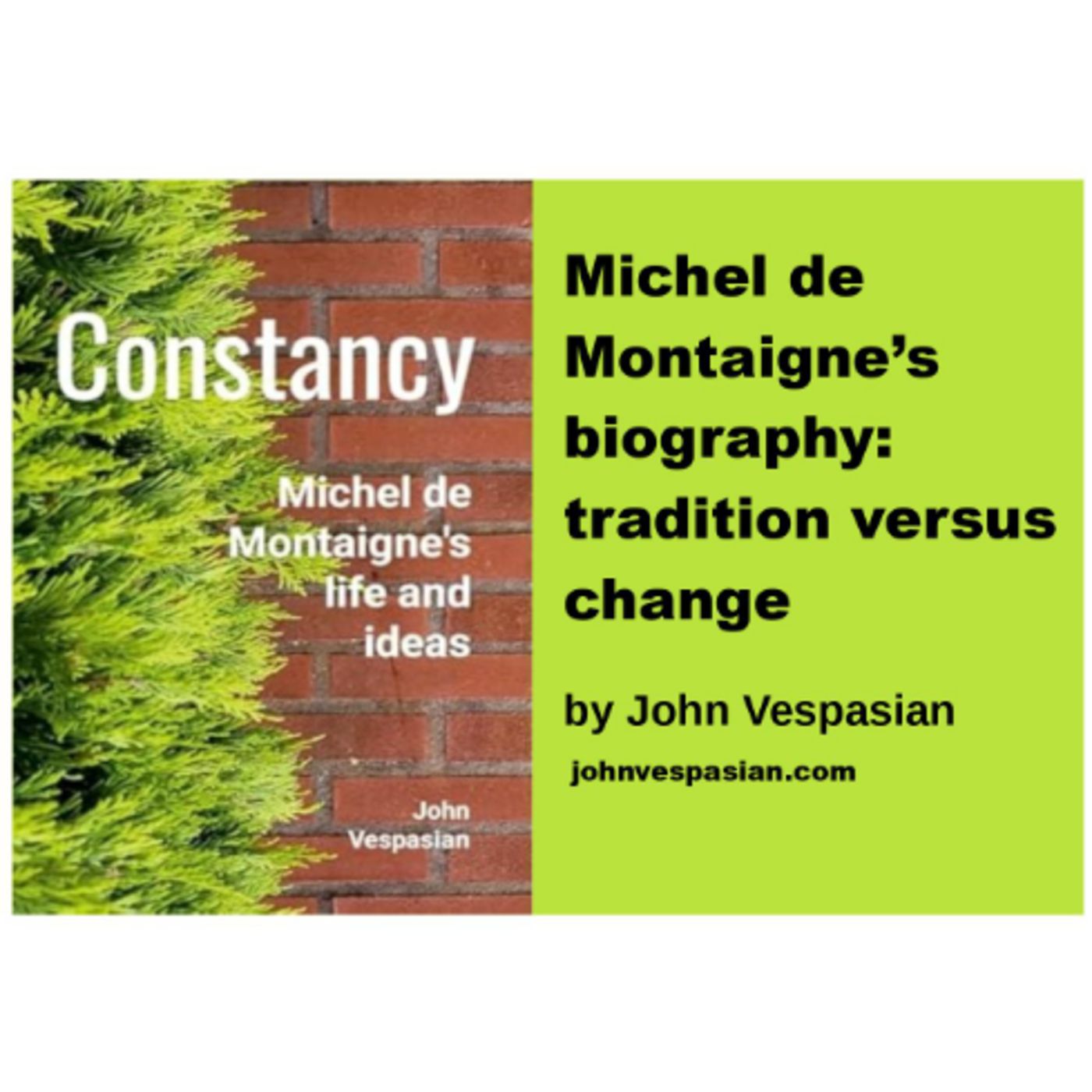
John VespasianMichel de Montaigne’s biography: tradition versus changeJohn Vespasian explains that Michel de Montaigne (1533-1592) was one of the most realistic philosophers in history. He was remarkably talented at analysing problems, reviewing possible solutions, discarding the unworkable, and selecting the most promising amongst the rest. Let me underline the step “discarding the unworkable.” It is something that most philosophers forget to do. They will fall in love with their favourite plan and keep defending it long after it has become obvious that it cannot possibly work. Plato (427-347 BC) did so in his work “Republic,” where he put forward that totalitarianism under the rule of philosopher-kings is the best...
2025-04-2405 min
John VespasianMichel de Montaigne and the art of livingJohn Vespasian explains that Michel de Montaigne (1533-1592) made it particularly clear that he wanted to differentiate himself from his peers. His vast literary achievements are not the result of luck. His philosophy is not the outcome of random circumstances, but of persistence and determination. Montaigne was a master in the art of living because of his unusually high productivity. Even with a busy professional life as a lawyer in Bordeaux, he became extremely well-read and raised a family. Montaigne even found the time to travel abroad (Germany, Italy) for a year, and later occupied public office for four years...
2025-04-2405 min
John VespasianMichel de Montaigne’s art of living quietlyJohn Vespasian explains that Michel de Montaigne (1533-1592) was aware of the dangers associated to popularity. He also knew the financial advantages that one can draw from it, but after careful reflection, he opted for a quiet lifestyle in the countryside. Montaigne’s choice is remarkable because it entailed a series of drastic changes; he had lived for decades in a sizeable city, pursued a demanding career, and interacted with hundreds of people; why did he choose to leave behind his professional ambitions? There is a key philosophical lesson in Montaigne’s decision to embrace a quiet lifestyle, a lesson that...
2025-04-2406 min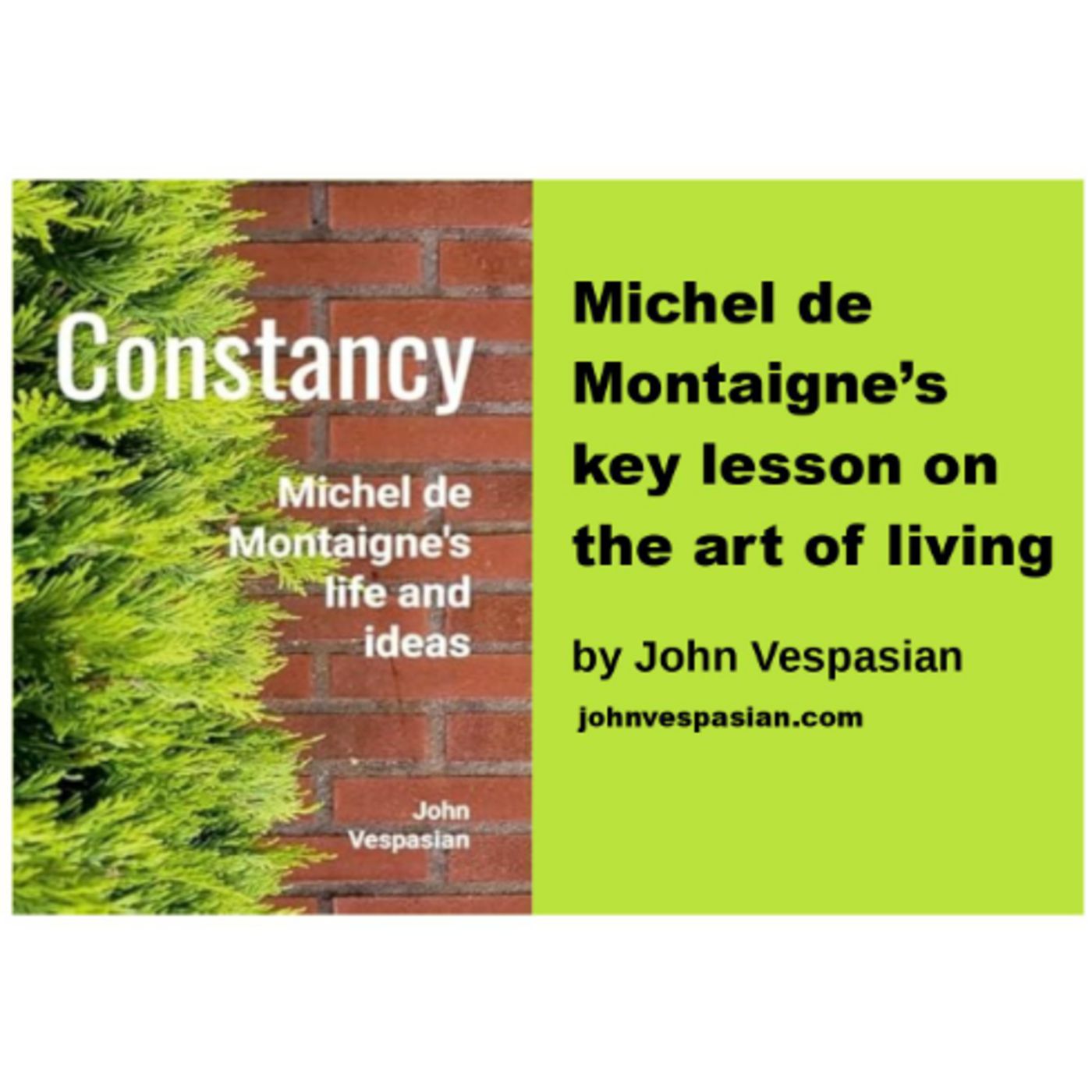
John VespasianMichel de Montaigne’s key lesson on the art of livingJohn Vespasian explains that Montaigne’s essay titled “On the inequality amongst us” is conveying the key lesson from his life, namely, that we should accept without complaints the fact that each person is different, and that all attempts to homogenise people are doomed to fail. Individuals are unequal in intelligence, agility, beauty, skills and personal interests, just to mention a few aspects. Luckily, Montaigne accepted inequality as a fact early in life and spared himself lots of trouble. In sixteenth-century France, the monarch deployed massive efforts to homogenise the ideas in the country, but his attempts proved a dismal failur...
2025-04-2406 min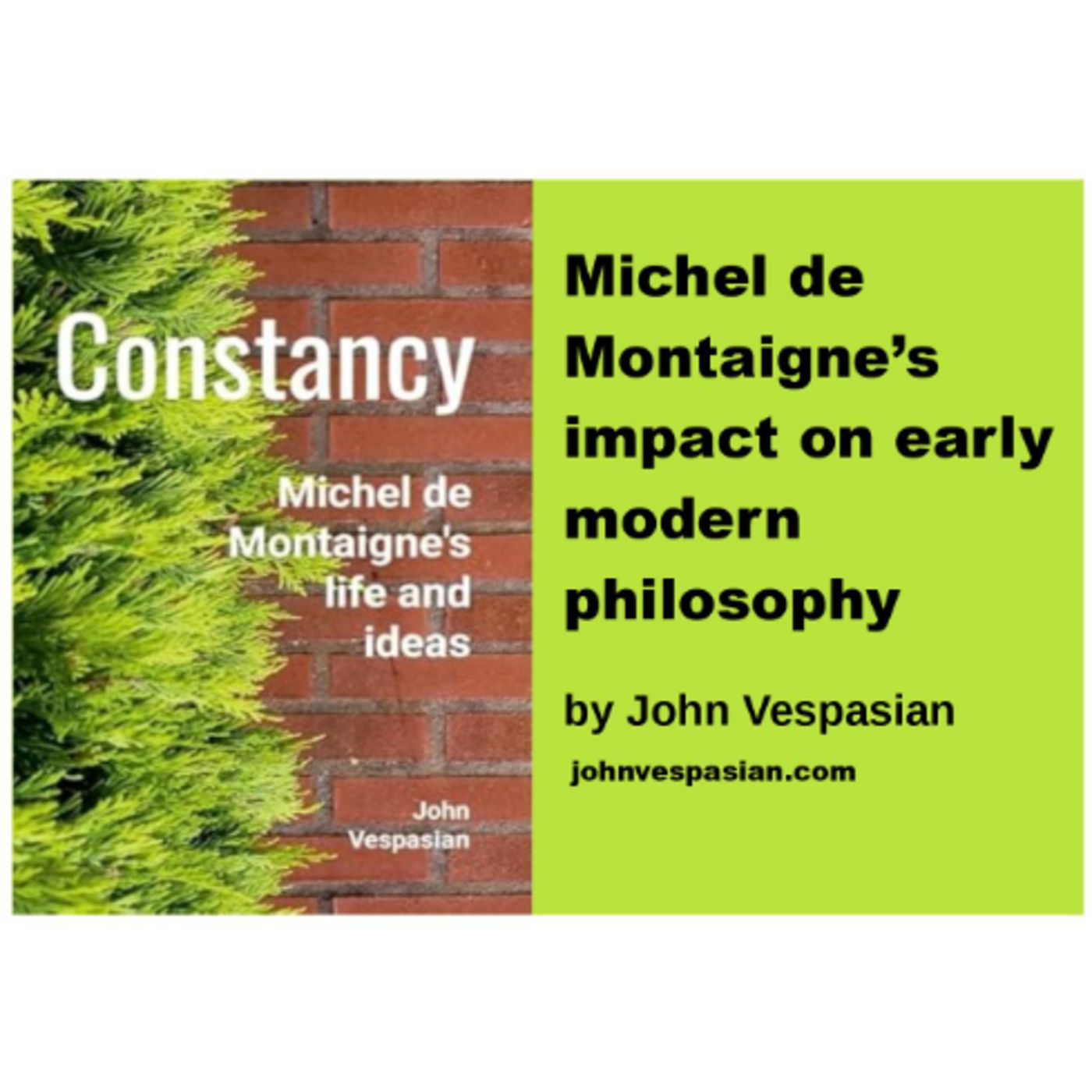
John VespasianMichel de Montaigne’s impact on early modern philosophyJohn Vespasian explains that Michel de Montaigne (1533-1592) had zero impact on early modern philosophy because his great merit was to look to the past, not to the future. As a result, Montaigne developed a new, fresh, truly modern mentality that put him decades ahead of his literary peers. When Montaigne looked at history, mostly antique history, he picked up ideas and facts that he found useful. He was very familiar with the doctrines of Pyrrho (360-270 BC) and Sextus Empiricus (160-210 AD), but adopted only a mild version of their scepticism. Montaigne’s modern mentality is the key to hi...
2025-04-2406 min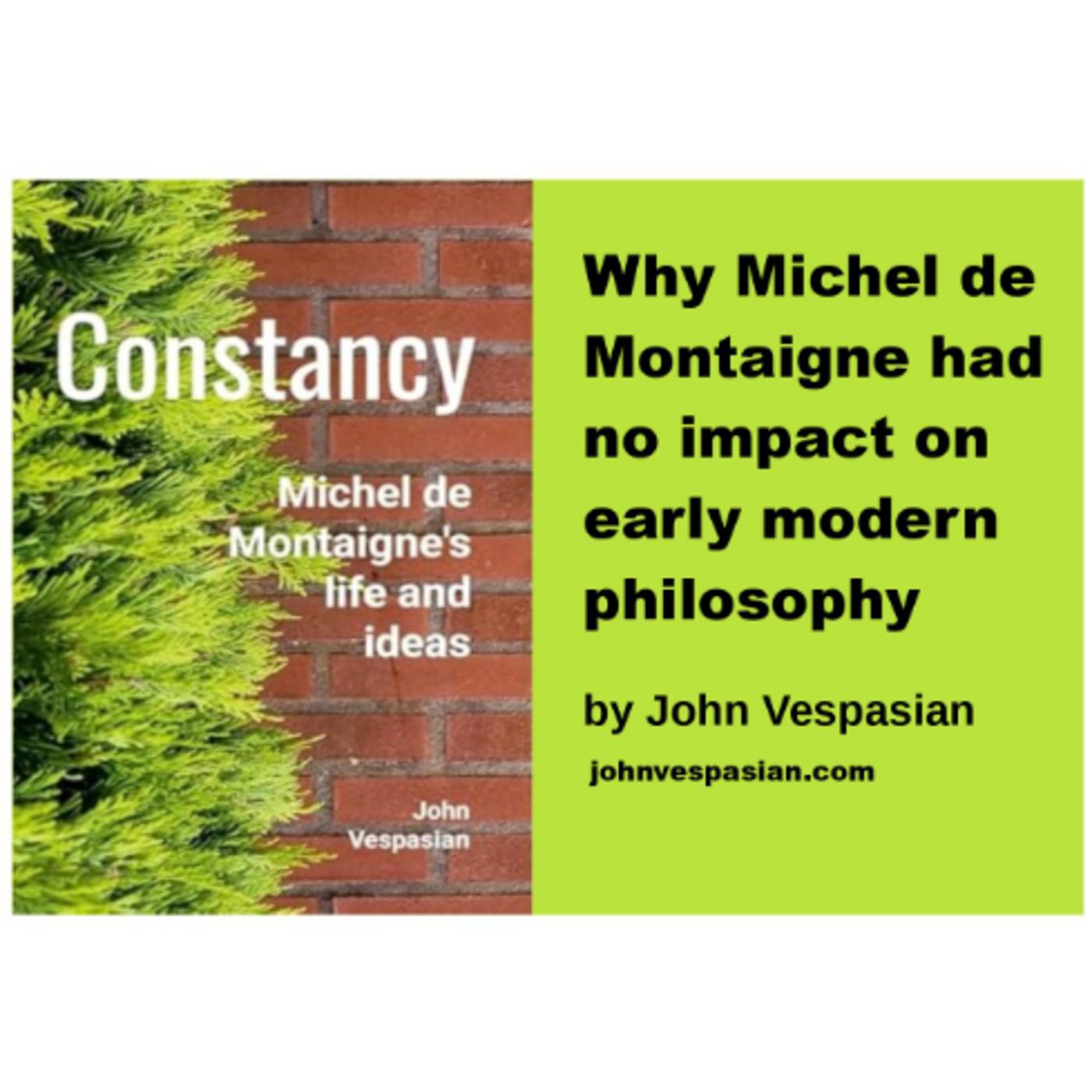
John VespasianWhy Michel de Montaigne had no impact on early modern philosophyJohn Vespasian explains that Michel de Montaigne (1533-1592) produced a compelling collection of essays, but historians have exaggerated his impact on early modern philosophy. Take for instance Montaigne’s essay titled “On the custom of wearing clothes.” When Montaigne wrote this piece, he was in his early forties, living quietly in the countryside. Day after day, he retired to the tower of his castle to read and write, and kept churning out one essay after another. Historians sustain that Montaigne wrote “On the Custom of Wearing Clothes” to present and endorse cultural relativism. In their eyes, Montaigne was asking us to refrain...
2025-04-2405 min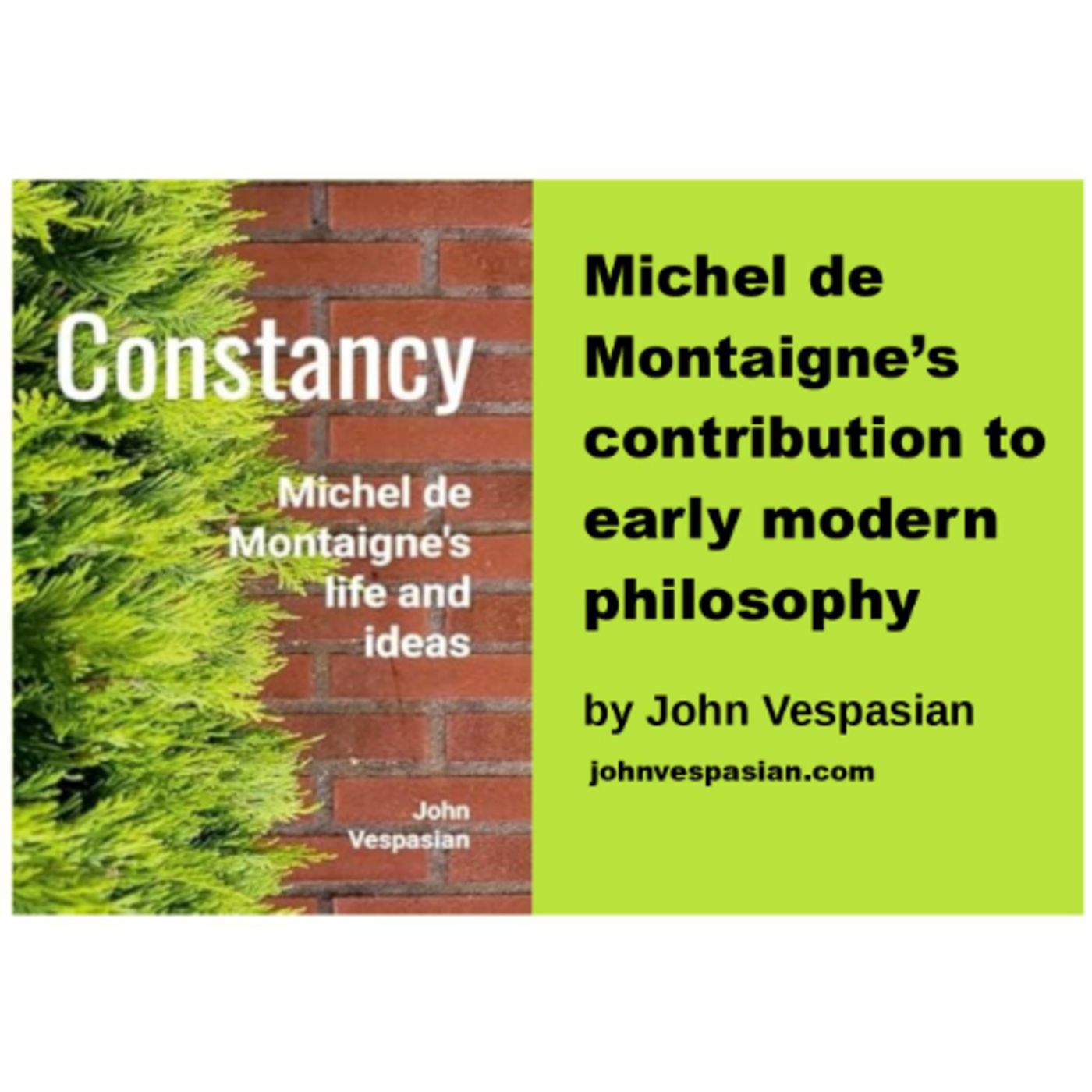
John VespasianMichel de Montaigne’s contribution to early modern philosophyJohn Vespasian explains that Montaigne is an extraordinary author in many aspects, great in erudition and wisdom, but not a philosophical innovator. If anything, he looked at the past more than he was looking at the future. He had drawn his more enlightened ideas from antiquity in the formulations given by Seneca (4 BC-65 AD), Plutarch (46-120 AD) or Aristotle (384-322 BC). Even his theological views draw more from medievalism than from modernity. Nevertheless, Montaigne surpassed all his predecessors in a singular area: his passion from balance and perspective; no one in prior centuries had devoted so vast efforts to looking...
2025-04-2406 min
John VespasianMichel de Montaigne’s impact on French literature and cultural identityJohn Vespasian explains that Michel de Montaigne (1533-1592) left behind ethical guidelines, practical and tangible, but roving and disorderly. Why? Because he cared for finding the path to happiness, but not for the implicit metaphysics, epistemology, politics and aesthetics. Due to his philosophical limitations, Montaigne has exerted a narrow influence on French literature and cultural identity. It would be an exaggeration to claim a vast influence from ideas, values and behavioural models that we can barely characterise. Let us take for instance Montaigne’s essay “On three good women.” Montaigne was in his mid-forties when he wrote this essay. His philos...
2025-04-2406 min
John VespasianMichel de Montaigne’s relevance todayBefore devoting time to reading a classical work, it is fair to ask about its relevance today. Why should I devote my energy to reading a classic? What lessons can I possible learn from an author who lived centuries ago? John Vespasian explains that Michel de Montaigne (1533-1592) is one of the few classics that passes this test with flying colours. What is the relevance level of his works today? My answer is: hundred per cent; each time that I re-read his essays, I learn new things; I mean useful, practical things, not empty speculations. Montaigne’s goal is to el...
2025-04-2206 min
John VespasianWhy Michel de Montaigne remains relevant todayJohn Vespasian explains that Michel de Montaigne (1533-1592) made it his life’s mission to compile the wisdom of the past. He devoted twenty years of his life to writing essays, condensing the wisdom of Aristotle (384-322 BC), Seneca (4 BC-65 AD), and other ancient Greek and Roman sources. It is fair to ask whether the lessons from ancient authors are still relevant today. In fact, people had asked the same question in the sixteenth century, when Montaigne was researching and writing his essays. Montaigne had not failed to ask himself this question, but he was very particular in the way he...
2025-04-2205 min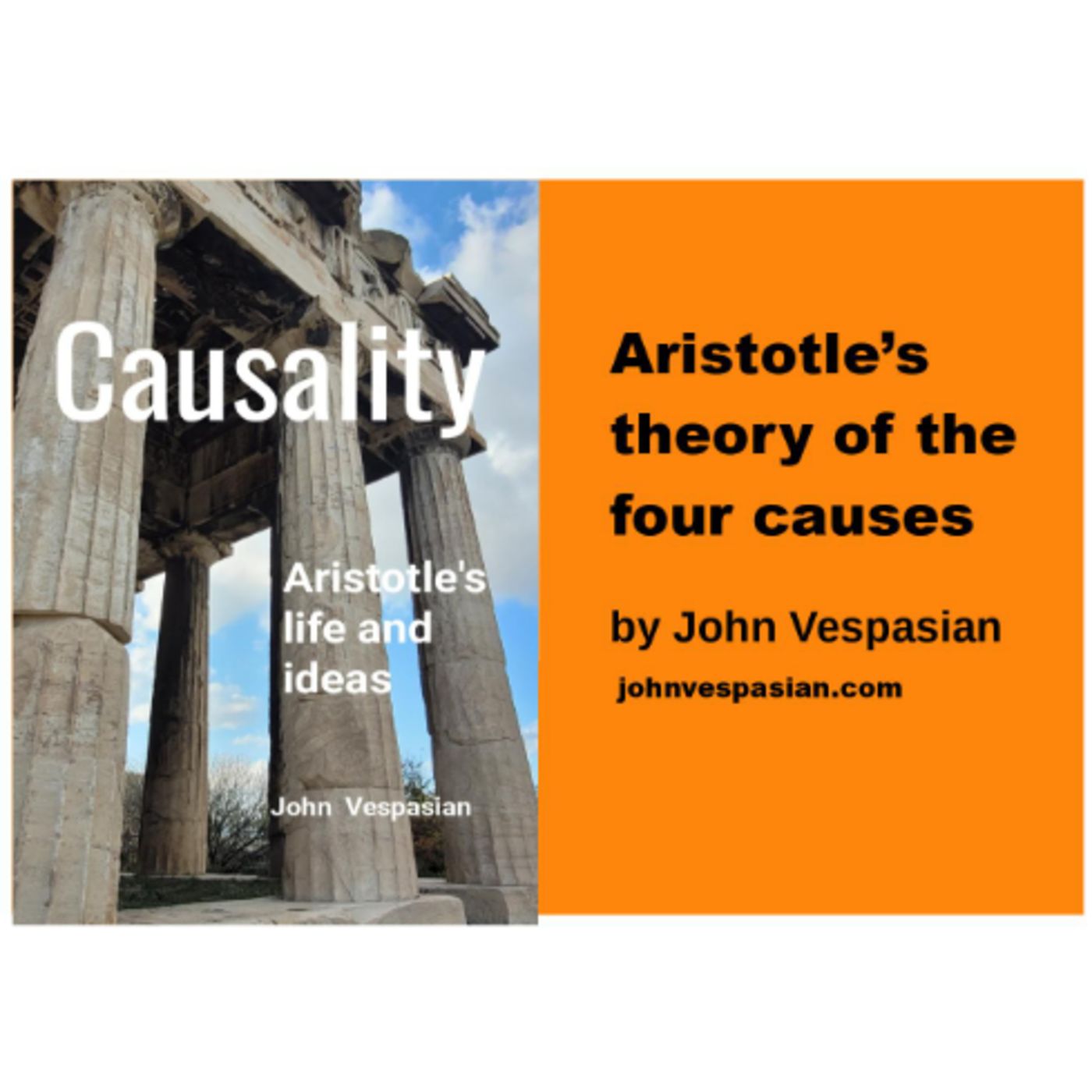
John VespasianAristotle’s theory of the four causesAristotle adopted a systematic approach to studying the world, explains John Vespasian. His theory of the four causes entails that, if you want to fully understand something, you should consider four distinct causes. First, a material cause that pertains to the material substance that makes up an item or creature. For example, the material cause of a woollen suit is wool. Second, the a formal cause that relates to the object’s shape or structure. In the case of the woollen suit, the formal cause consists of a vest and a pair of pants. Their shape constitutes a suit, not a...
2025-04-0915 min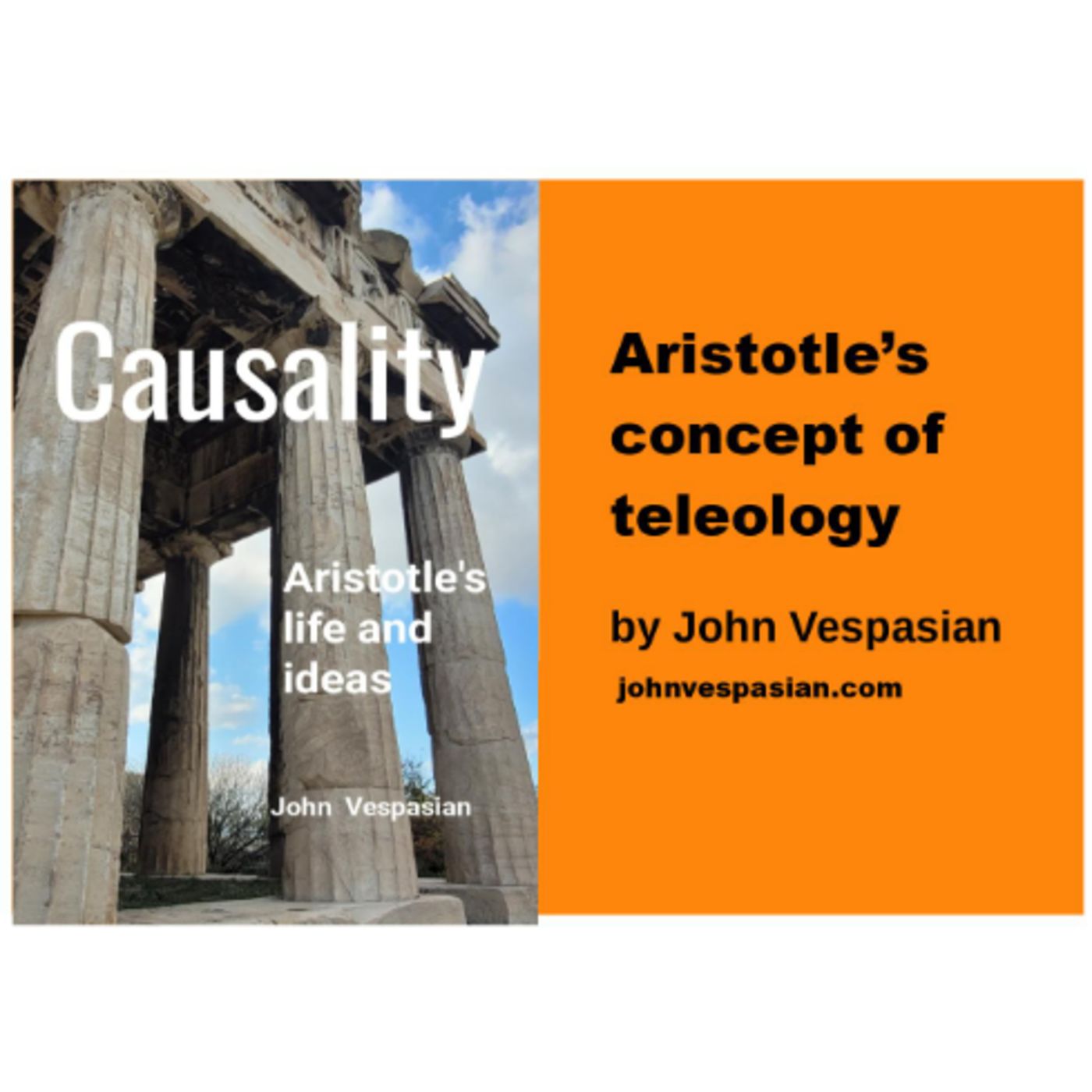
John VespasianAristotle’s concept of teleology“Teleology” is derived from the Greek word “telos,” which means end, purpose, motivation or intent. Aristotle’s teleology postulates that every action in nature has a specific purpose. In Aristotle’s words, such a purpose is called “final cause.” John Vespasian explains that Aristotle believed that teleological considerations apply to living creatures and, to a lesser extent, to natural phenomena. It is a concept that applies to human development, animal actions and natural events such as storms, rain or floods. According to Aristotle, all entities strive to fulfil their goals and inherent purposes. For animals, those goals will be simple desires such as...
2025-04-0817 min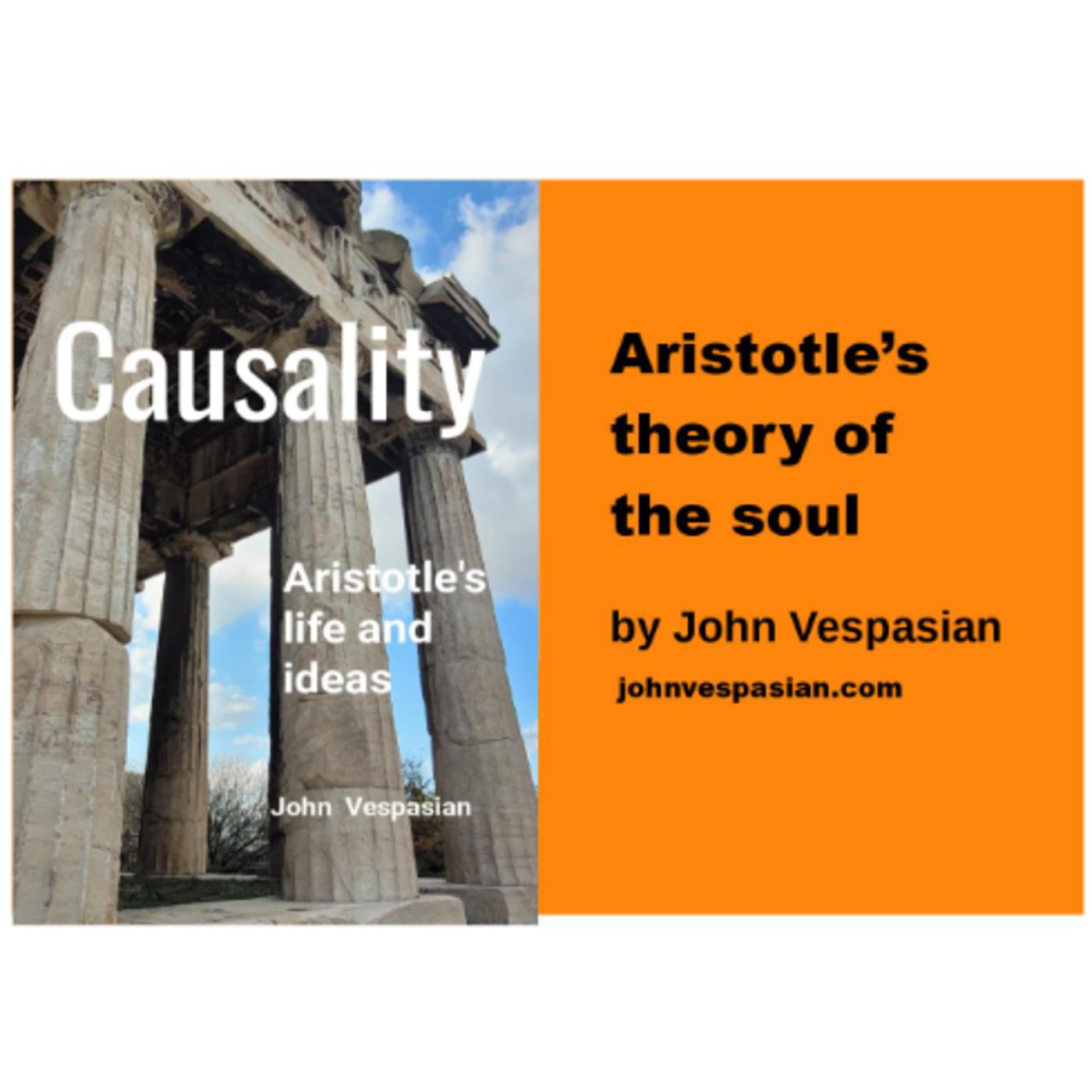
John VespasianAristotle’s theory of the soulAristotle did not invent the concept of the soul. John Vespasian explains that the concept was already existing in older cultures such as those of ancient Egyptians and Hinduism. In those cultures, people believed that the soul was the animating energy or force behind life, also including human life. For the ancient Egyptians and Hindus, the sole involved ideas of immortality, reincarnation, and the soul’s journey after death. Ancient Egyptians practised mummification of corpses to safeguard their soul in the afterlife. The mummy was meant to give the soul a physical place of residence, so to speak. In ancient Gr...
2025-04-0809 min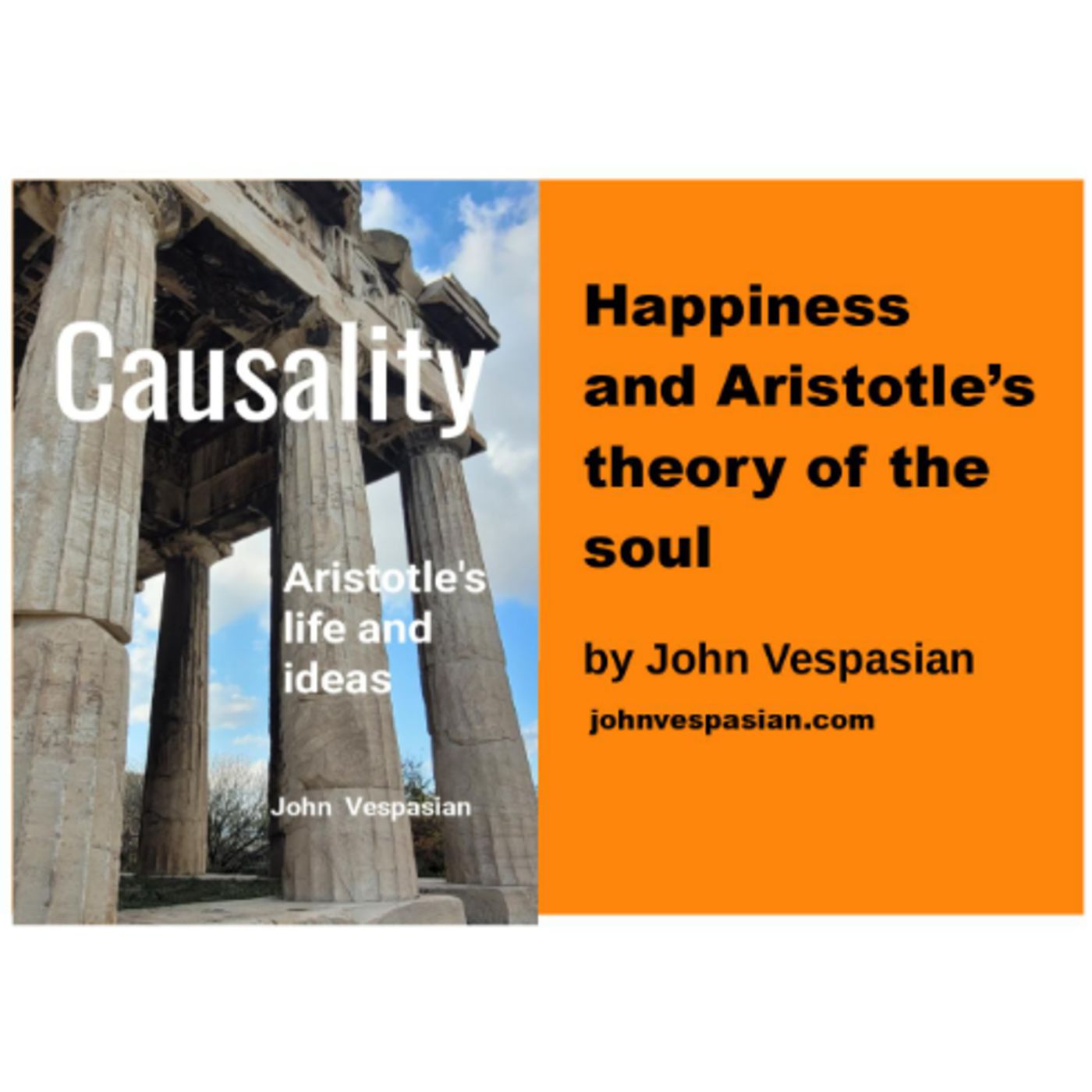
John VespasianHappiness and Aristotle’s theory of the soulThe process of philosophical development is similar to the process of learning to walk after you have suffered an injury. It takes lots of training for your muscles to work properly and in a coordinated manner. John Vespasian explains that Aristotle’s ethical philosophy is tied to his conception of the soul, but he was more reality-oriented than Plato. He did not worry so much about abstract “Forms” existing in a hidden realm. For Aristotle, the soul’s functions are practical, not ethereal. In his work “Nicomachean Ethics,” he argued that the purpose of the soul is to allow individuals to perfect t...
2025-04-0814 min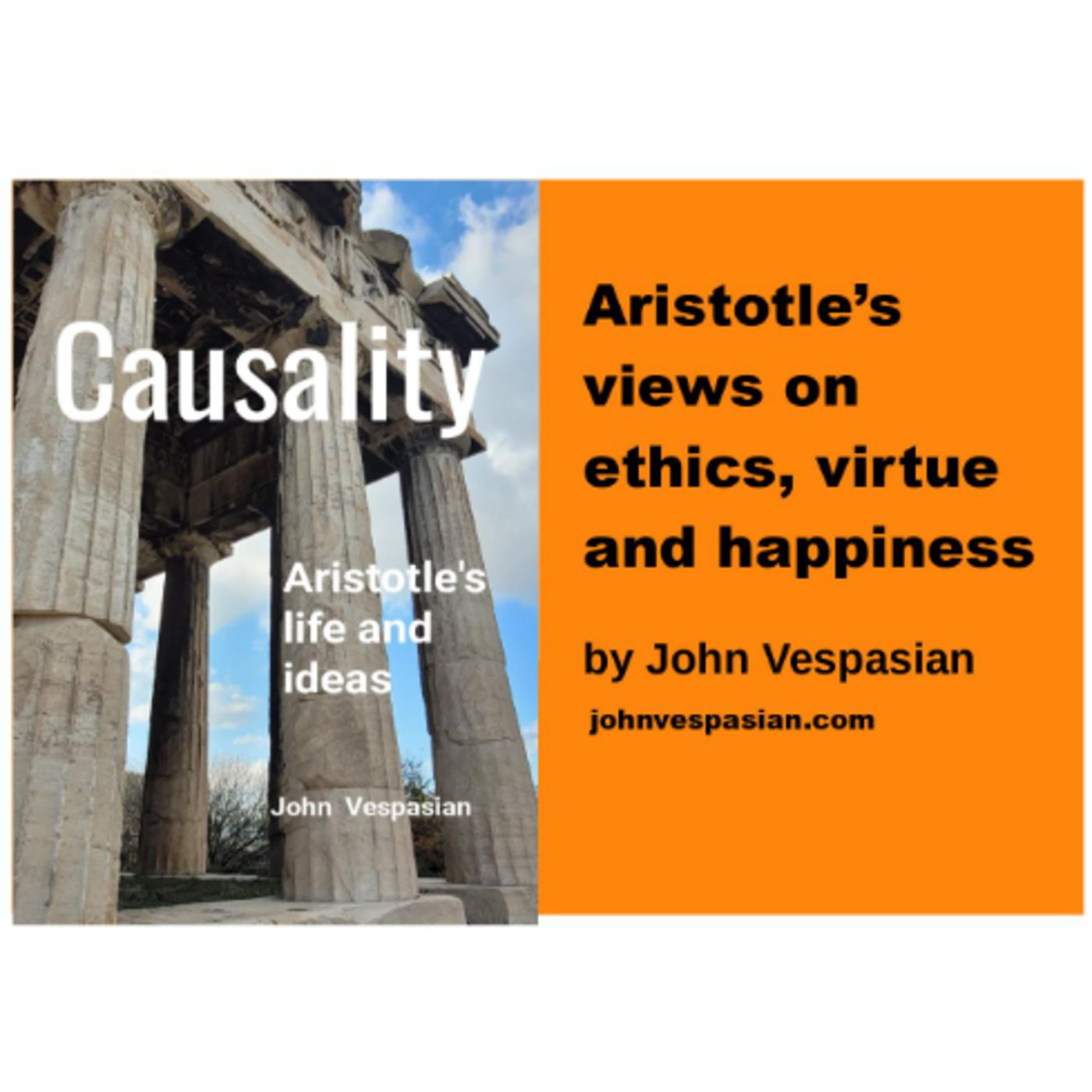
John VespasianAristotle’s views on ethics, virtue and happinessAristotle (384-322 BC) believed that ethics have a clear, definite purpose. He defined ethics as the science of achieving eudaimonia, which means “a happy, thriving, flourishing life.” John Vespasian explains that Aristotle argued that human beings can only achieve happiness by living a life of virtue. Unfortunately, in some cases, he wrongly identified virtue with the “golden mean,” a middle-of-the-road attitude between two evils. In general terms, Aristotle’s ethics promote the virtues of courage, temperance, and justice. Aristotle’s taught that, only by cultivating those virtues, we can achieve harmony and joy in a sustained manner. Aristotle presented his views on eth...
2025-04-0812 min
John VespasianAristotle’s concept of practical wisdomLike Schopenhauer would do twenty-four centuries later, Aristotle regarded practical wisdom (“phronesis” in Greek) as a crucial ingredient of a happy life. John Vespasian explains that, in his “Nicomachean Ethics,” Aristotle defined phronesis as a skill that enables us to choose timely the correct course of action and for the correct reasons. In other words, phronesis is the daily implementation of general moral principles. How do you develop practical wisdom? Through experience and rational reflection, answered Aristotle. It is not something that you can learn by heart. It does not consist of a series of rules that can be memorised and impl...
2025-04-0808 min
John VespasianSchopenhauer and existentialismJohn Vespasian explains that the reasons why philosophy books trace the inception of existentialism to Arthur Schopenhauer (1788–1860) are rather weak. Nonetheless, they have attained the status of mainstream opinion and deserve a robust refutation. First of all, Schopenhauer himself never declared himself to be an existentialist, not anything close to that term. You won’t find such a concept in his works. Neither “On the fourfold root of the principle of sufficient reason”(1814), “The world as will and representation” (1818), or “Parerga and Paralipomena” (1851) contain any statements in favour of existentialist philosophy. Second, Schopenhauer came up with a clear philosophy to explain how the...
2025-04-0407 min
John VespasianSchopenhauer and knowledgeJohn Vespasian explains that, in his early years, Schopenhauer had declared allegiance to the epistemological doctrines of Immanuel Kant (1724-1804). I am referring to the theory of concept formation presented by Kant in his book “Critique of pure reason” (1781). In 1808, Schopenhauer published his PhD dissertation “On the fourfold root of the principle of sufficient reason,” stating his overall allegiance to Kant’s epistemology. However, there is one point where he had not endorsed Kant. On that point, Schopenhauer claimed that he was improving Kant’s epistemology, although in reality, he was nullifying one of the pillars of Kant’s “Critique of pure reason.”...
2025-04-0406 min
John VespasianOpposition to Schopenhauer’s theory of knowledgeJohn Vespasian explains that, when Arthur Schopenhauer (1788-1860) began to question mainstream philosophical ideas, he expected heavy opposition and criticism. In this respect, he was not disappointed. Almost all twentieth-century thinkers have opposed Schopenhauer and his theory of the will. Hefty opposition was no surprise to Schopenhauer precisely because he had presented his ideas as improvements on those of Immanuel Kant (1724-1804), Friedrich Hegel (1770-1831), and other philosophers. Schopenhauer held Kant in high esteem, but despised Hegel profoundly. He considered Hegel a charlatan. When Hegel died due to an epidemic in Berlin, Schopenhauer was jubilant. He only lamented that Hegel...
2025-04-0306 min
John VespasianSchopenhauer on happinessJohn Vespasian explains that the life and works of Arthur Schopenhauer (1788-1860) are giving us crucial insights on how to achieve happiness. To this end, he devoted years to studying Western and Eastern thinkers and compiling their best recommendations. Then he put them into practice and recorded what works and what doesn’t. Schopenhauer regarded the achievement of happiness as a sequence of steps. The very first step consists of steering away from disaster. You absolutely want to avoid mistakes that cause severe harm to yourself and other people. How do you prevent or minimise large mistakes? By getting familiar wi...
2025-04-0306 min
John VespasianAnalysis of Schopenhauer’s philosophy of happinessWhile most nineteenth-century philosophers focused their efforts on epistemology and social ethics, Arthur Schopenhauer (1788–1860) stands alone in his concern for individual well- being and happiness. John Vespasian explains that Schopenhauer rejected the trend set by Kant, Fichte and Hegel because he could not see any practical application. Those three thinkers are categorised in philosophy books as “idealistic,” but I think that it’s more accurate to call them “otherworldly.” Nobody can take decisions at a reasonable speed if every time he has to check if the underlying principles are universal, eternal and categorical. No supernatural consciousness is driving nations in a particular...
2025-04-0306 min
John VespasianThe key difference between Schopenhauer and existentialismJohn Vespasian explains that Arthur Schopenhauer (1788-1860) would have been amused to see philosophers like Jean-Paul Sartre (1905-1980) theorise about anxiety and personal authenticity. Sartre didn’t regard as self-evident that individuals are aware of their freedom and the need to make constant choices. In contrast to Sartre and other existentialists, Schopenhauer considered self-evident that happiness is the purpose of life; he had taken that idea from Aristotle (384-322 BC) and viewed it as obviously true. Schopenhauer didn’t spend a minute worrying about anxiety and personal authenticity because he viewed them a non-issues in the quest for personal happiness. He c...
2025-04-0305 min
John VespasianAristotle’s views on the nature of realityJohn Vespasian explains that Aristotle used a systematic method for drawing conclusions from empirical observations. His concept of reality revolves around the idea of “substance,” which actually means “entity” in the sense employed by Aristotle. Every entity, he taught, is composed of matter that takes a certain form, configuration, or shape. For Aristotle, it is the “form” what characterises each entity, what defines the nature of an entity, what makes it what it is. A material (“matter”) such as wood can take different forms. For instance, it can be an element in trees, but also in furniture, in a building, etc. In addition...
2025-04-0107 min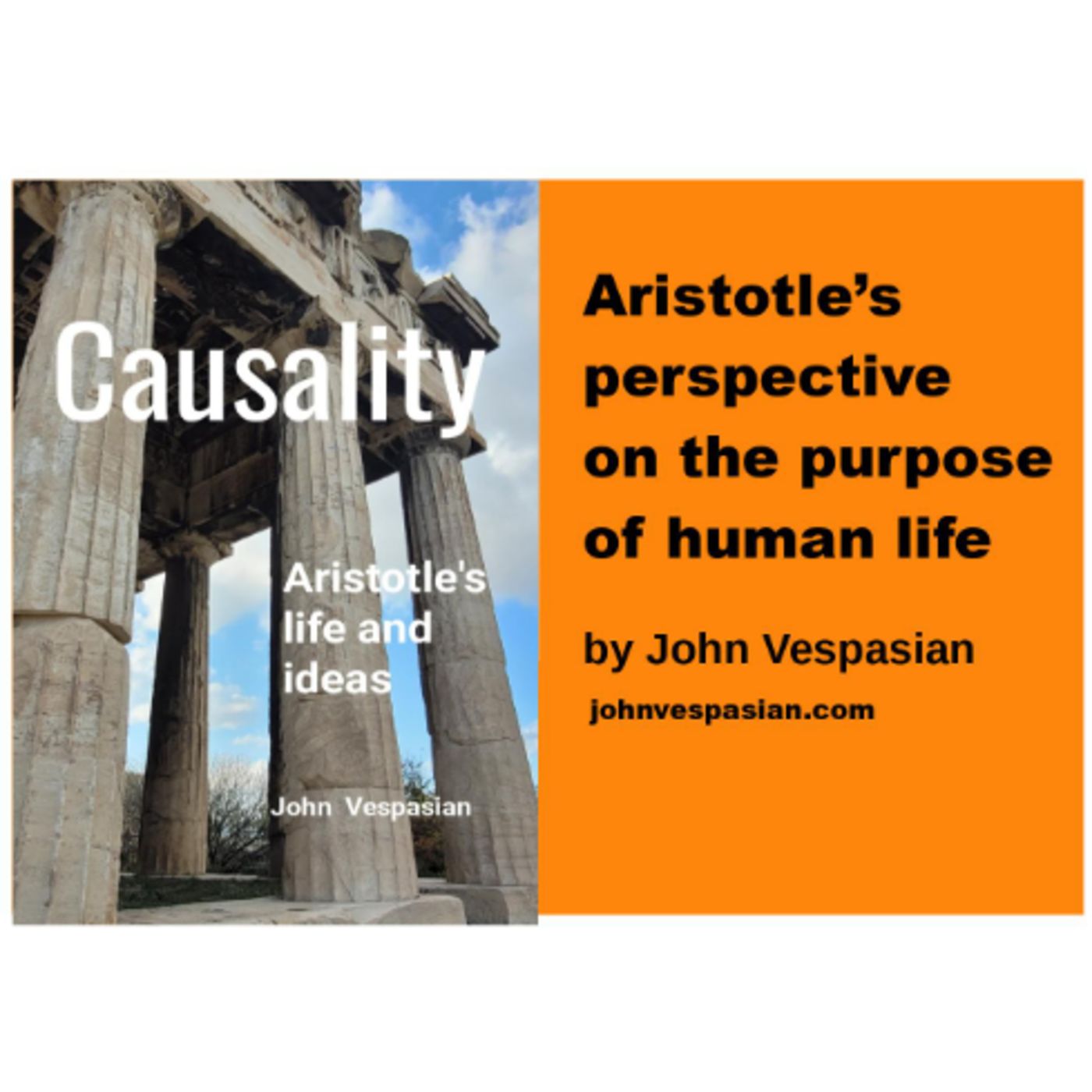
John VespasianAristotle’s perspective on the purpose of human lifeJohn Vespasian explains that Aristotle placed purpose at the very centre of his view of ethics. Purpose is the magnet that enables polarisation. It is the force that keeps things aligned and harmonious. What’s the purpose of life according to Aristotle? To attain happiness (in Greek “eudaimonia”). He defined happiness as “thriving” or “flourishing,” a state of high, steady enjoyment. According to Aristotle, a proper human life shall aim at high achievement, self-actualisation, and happiness. It is not enough to just stay alive, eat and reproduce. It is not enough to pursue pleasure and entertainment. Without purpose, it becomes impossible to...
2025-04-0109 min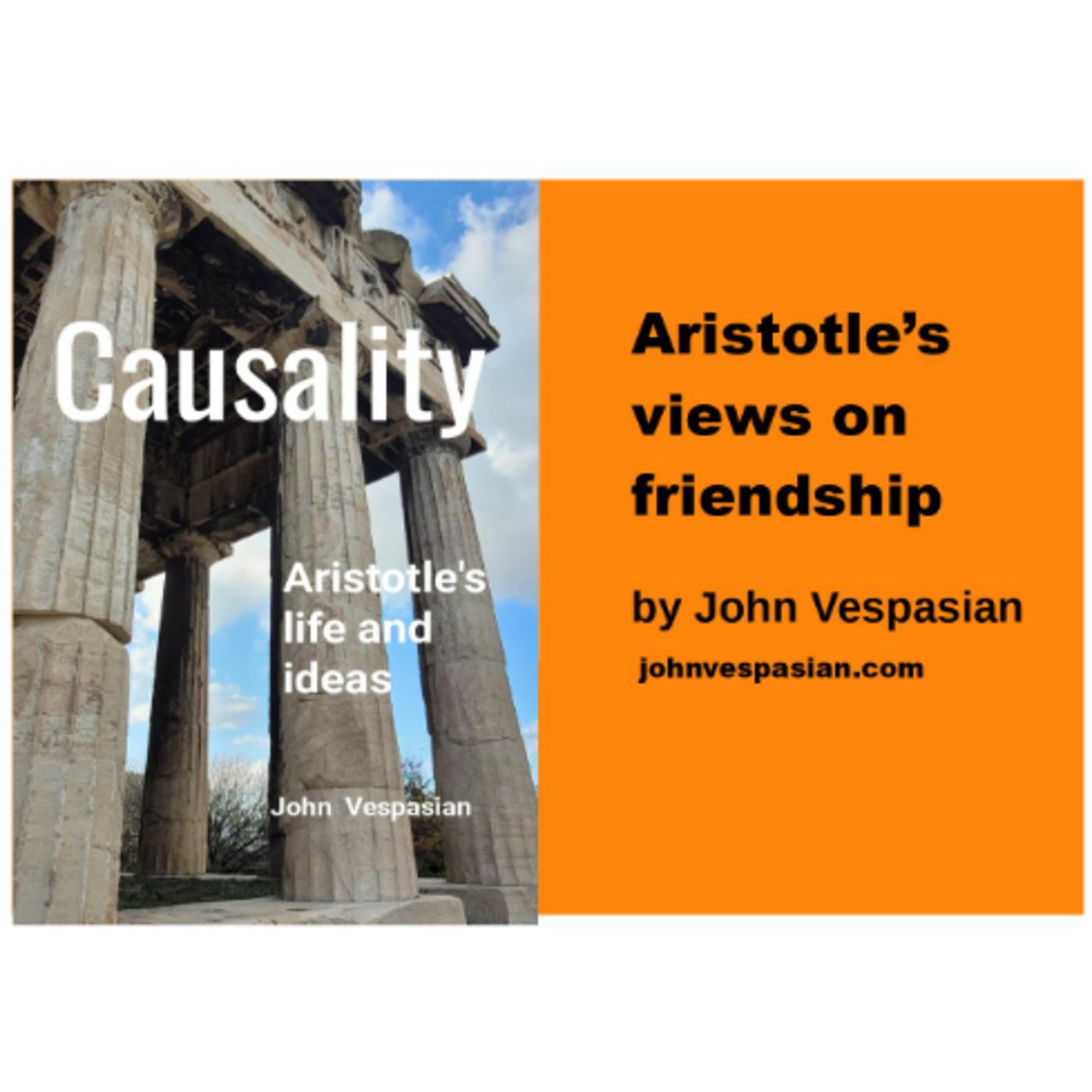
John VespasianAristotle’s views on friendshipJohn Vespasian explains that Aristotle addressed friendship in his “Nicomachean Ethics.” He viewed friendship as indispensable for leading a happy life, but identified three types of friendships: those based on utility, those based on pleasure, and those based on shared values or virtues. The latter is by far the most valuable. Friendships of utility are based on mutual interest. People collaborate with each other for a myriad of reasons, which are not necessarily linked to business or making money. Business partners constitute an example of the Aristotelian “friendship based on utility” but the same can be said of people who join a t...
2025-04-0106 min
John VespasianAristotle’s views on natural philosophyJohn Vespasian explains that Aristotle’s views on the natural world established the basis of scientific thought and civilisation. Aristotle’s philosophy is relaying on experience, observation, and logical reasoning. His approach to natural philosophy consists of studying the cosmos and nature through careful observation and analysis. His three foundational works in this area are “Metaphysics,” “Physics” and “On the Heavens.” In “Metaphysics,” Aristotle introduced his theory of the four causes. This theory creates a framework for understanding how nature works. According to the four-cause theory, all entities in the world can be analysed by identifying their material cause (what they are made of), f...
2025-04-0108 min
John VespasianAristotle’s views on politics and governanceJohn Vespasian explains that Aristotle presented his political philosophy in his works “Politics” and “Nicomachean Ethics.” He believed that humans are political by nature. By “political,” he meant that humans prefer living in communities to enhance the enjoyment of life. In his work “Politics,” Aristotle described different forms of government and compared their advantages and disadvantages. His classification of government forms is based on whether the rule is exercised for the common good or for rulers’ benefit. Aristotle identified the following six forms of government: monarchy (rule by one person), aristocracy (rule by the few), polity (rule by the citizens), tyranny (corrupt r...
2025-04-0109 min
John VespasianCritics of Aristotle’s views on politics and governanceJohn Vespasian explains that Aristotle’s views on politics and governance can be summed up in a few sentences: depending on the number of rulers (one, a few, everybody), political systems for the common good can be classified into monarchies, aristocracies, and polities. When rulers abuse their power, those three systems shall be named tyranny, oligarchy, and democracy. In order to prevent abuse of power, Aristotle advised to distribute power amongst the monarch, the aristocracy, and the people. The two paragraphs above summarise the very best Ancient Greek ideas in the area of politics and governance. Those ideas have exerted in...
2025-04-0109 min
John VespasianThe two keys in Aristotle’s views on politics and governanceJohn Vespasian explains that Aristotle came up with the two key ideas of balanced governance, but history has done everything possible to wipe them out from people’s memory. Aristotle’s first principle of governance is that rulers should work for the common good. He didn’t exclude any government form (monarchy, aristocracy, polity) as long as the ruler (one, a few, every citizen) keeps the common good as top priority. This lesson seems easy and self-evident enough, so that it is never forgotten, right? You could not counter Aristotle’s advice credibly, right? Actually not. In the mid-eighteenth century, the writ...
2025-04-0107 min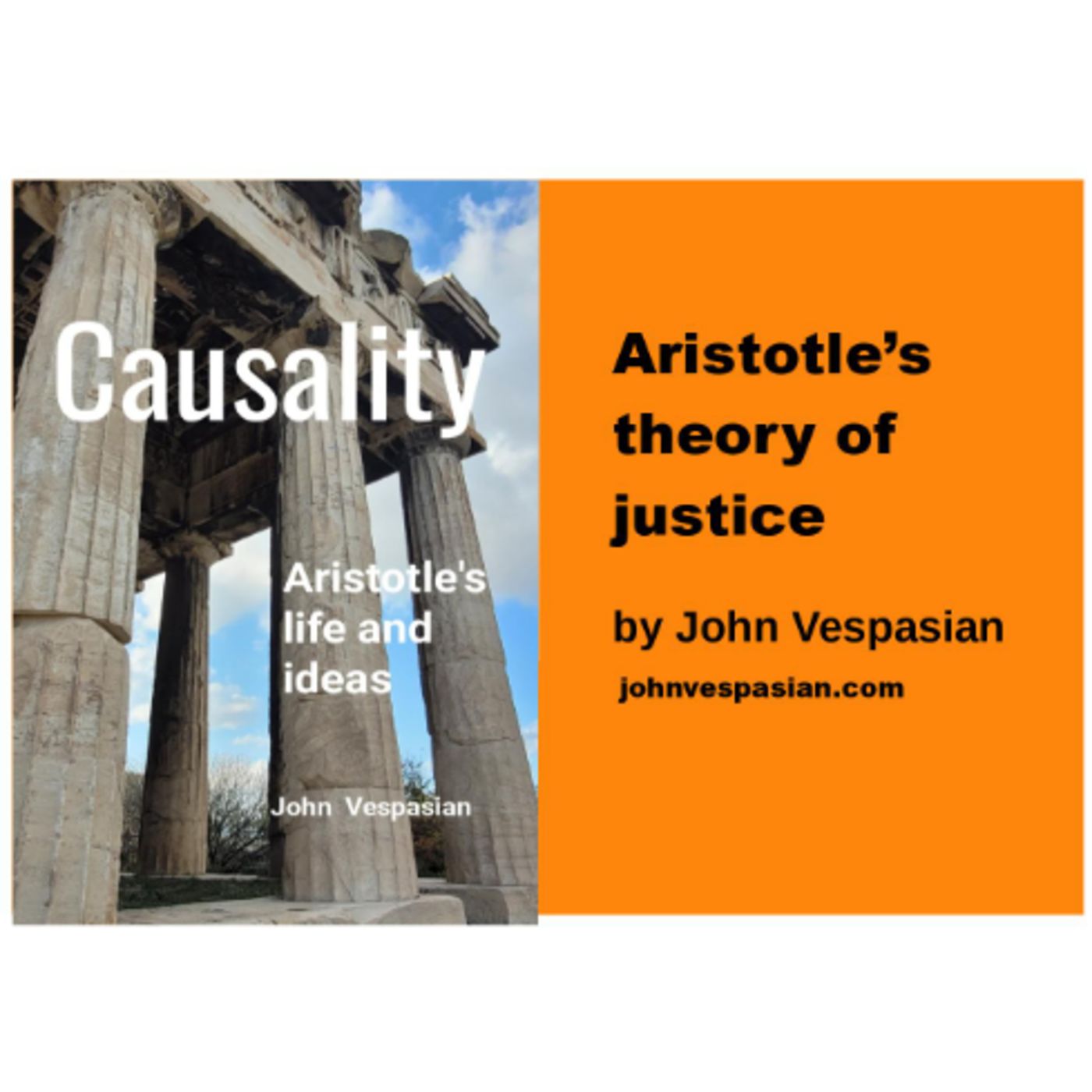
John VespasianAristotle’s theory of justiceJohn Vespasian explains that Aristotle presented his theory of justice in “Nicomachean Ethics.” He distinguished between two types of justice. On the one hand, distributive justice, and on the other hand, reparation or rectification justice. Distributive justice deals with the distribution of tangible goods or jobs, and intangible honours. The purpose of this type of justice is to ensure that each person receives what he has earned (“what he deserves”). Aristotle was rather vague about the criteria for distribution, or about the person who has to perform the distribution. Is the distributive justice based on merit (“earned”) or is it based on per...
2025-04-0106 min
John VespasianSchopenhauer’s philosophy of lifeJohn Vespasian explains that mainstream philosophers call Schopenhauer a pessimist and consider his work uninteresting. They argue that Schopenhauer had little concern for social issues and that, for that reason, his ideas are unsuited for today’s world. However, if you devote time to studying Schopenhauer, you will learn to appreciate the finesse and soundness of his analysis. His works provide insights that are not available elsewhere, and are intellectually stimulating. Besides, Schopenhauer was an excellent, polished writer. In his books, you’ll find a seamless compilation of wisdom drawn from Christianity, Buddhism and Hinduism. Very few philosophers in history are...
2025-03-2806 min
John VespasianAnalysis of Schopenhauer’s philosophy of lifeAlthough his lifestyle was unpretentious, modesty was not a characteristic of Arthur Schopenhauer (1788–1860). John Vespasian explains that Schopenhauer did not hide that he regarded himself as a genius. He considered other philosophers, with few exceptions, as misguided fools. Why did Schopenhauer consider himself a genius? Surely not because of his productivity. In terms of output, he was not extraordinarily prolific, especially if compared with Plato and Aristotle. Schopenhauer only wrote three sizeable books: “About the fourfold root of the principle of sufficient reason” (1814), “The world as will and representation” (1818), and “Parerga and Paralipomena” (1851). His claim to genius rests on the quality of his...
2025-03-2805 min
John VespasianHappiness and Schopenhauer’s philosophy of lifeJohn Vespasian explains that Arthur Schopenhauer (1788-1860) had no problem to accept that he was an eccentric. In fact, he considered it a privilege to be categorised as an eccentric. He considered it a confirmation of the originality of his ideas. Schopenhauer’s key contribution to philosophy is the theory of the will, that is, the belief that the will (“life force”) exerts a strong influence on all living creatures. The will drives them at the same time towards survival, reproduction and pleasure, but without any consideration of cost and long-term consequences. By creating the theory of the will, Schopenhauer set hi...
2025-03-2706 min
John VespasianAn example of Schopenhauer’s philosophy of lifeJohn Vespasian explains that history provides excellent examples of the philosophy put forward by Arthur Schopenhauer (1788–1860). For instance, Marcus Aurelius (121-180 AD), who had favoured living in accordance with nature. Aurelius’ recipe for happiness is understanding the order of the universe and aligning our actions with it. However, when he talked about “the order of the universe,” he was assuming that the world is rational and that humans can grasp its laws. In contrast, Schopenhauer theorised that the universe is not necessarily orderly. His theory of the will (“life force”) points to a blind, eternal force as a driver of all living c...
2025-03-2706 min
John VespasianSchopenhauer’s philosophy of life in daily practiceJohn Vespasian explains that Epictetus, a philosopher from the 1st century AD, provides excellent guidance for the daily practice of the ideas of Arthur Schopenhauer (1788–1860). Schopenhauer was focused on the attainment of happiness, and Epictetus pursued tranquillity and virtue, but in practical terms, their ideas are very close. Epictetus emphasised the distinction between internal and external events. Internal events comprise our thoughts, desires, and actions. External events comprise other people’s actions and all aspects of life beyond our control. According to Epictetus, the keys tranquillity and virtue are accepting external events for what they are, and concentrating our efforts on i...
2025-03-2706 min
John VespasianEffectiveness in Schopenhauer’s philosophy of lifeJohn Vespasian explains that the art of getting things done effectively and inexpensively underlies the philosophy of Arthur Schopenhauer (1788–1860). His theory of the will (“life force”) warns us against the lethal consequences of giving way to our instincts without looking at the cost and at the long-term consequences. How do you protect yourself against the negative influence of the will? Schopenhauer advised parsimony, self-reliance and self-awareness. Those habits can help us counteract the will and make better decisions. Schopenhauer never came with precise prescriptions in his quest for happiness. The book “On the fourfold root of the principle of sufficient reason,”...
2025-03-2706 min
John VespasianSchopenhauer’s philosophy of life compared with TaoismJohn Vespasian explains that Arthur Schopenhauer (1788–1860) was deeply familiar with Eastern philosophy, in particular Buddhism and Hinduism. He held in high regard the Eastern approach to stress reduction by reducing one’s emotional engagement. In Schopenhauer’s books, you won’t find a call for “nirvana” and other Eastern philosophical concepts. Nonetheless, he put forward recommendations that are similar to “nirvana.” There’s no doubt that Schopenhauer deployed great efforts to draw the best ideas from Buddhism and Hinduism, and turned them into practical advice. In contrast to Buddhism and Hinduism, Schopenhauer didn’t recommend the suppression of desires. He came up with mild, s...
2025-03-2706 min
John VespasianSchopenhauer’s views on love and relationshipsJohn Vespasian explains that Arthur Schopenhauer (1788–1860) had unduly pessimistic, gloomy ideas on love and relationships. The study of his ideas in this respect serves an educational purpose because it enables us to learn from Schopenhauer’s mistakes. Schopenhauer’s theory of the will (“life force”) underlies his views on love and relationships. This theory predicates that the will is constantly driving all living creatures towards survival, reproduction, and pleasure, without paying attention to the cost and risks involved. From this perspective, Schopenhauer viewed love as driven by the will, which he described as a blind, irrational force. His definition of love is li...
2025-03-2705 min
John VespasianRefutation of Schopenhauer’s views on love and relationshipsThe ideas of Arthur Schopenhauer (1788–1860) on love and relationships contain fundamental mistakes. John Vespasian explains that Schopenhauer did not devote to these matters sufficient attention. As a result, his observations and conclusions leave a lot to be desired. His conception of love and relationships is instinctual. They are driven by the Will (“life force”), argues Schopenhauer, and this explains why people behave erratically when they fall in love. The Will prompts them to pursue the beloved at any cost, and without thinking of the long-term consequences. Schopenhauer drew the wrong conclusion and rated all love relationships as doomed. He assumed that t...
2025-03-2706 min
John VespasianIdealism in Schopenhauer’s views on love and relationshipsIn his works, Arthur Schopenhauer (1788–1860) pointed out that love relationships often fail because people will initially idealise their beloved, and experience a disappointment when they realise that their expectations do not match reality. John Vespasian explains that Schopenhauer presented those views in “The world as will and representation” (1818) and in “Parerga and Paralipomena” (1851). He warned readers against seeking short-term pleasure without assessing the cost and risks involved. According to Schopenhauer, the whole cosmos is driven by the will (“life force”), which prompts living creatures to secure their survival and reproduction, and seek short-term pleasure. In his warning against delusion, Schopenhauer describes all...
2025-03-2706 min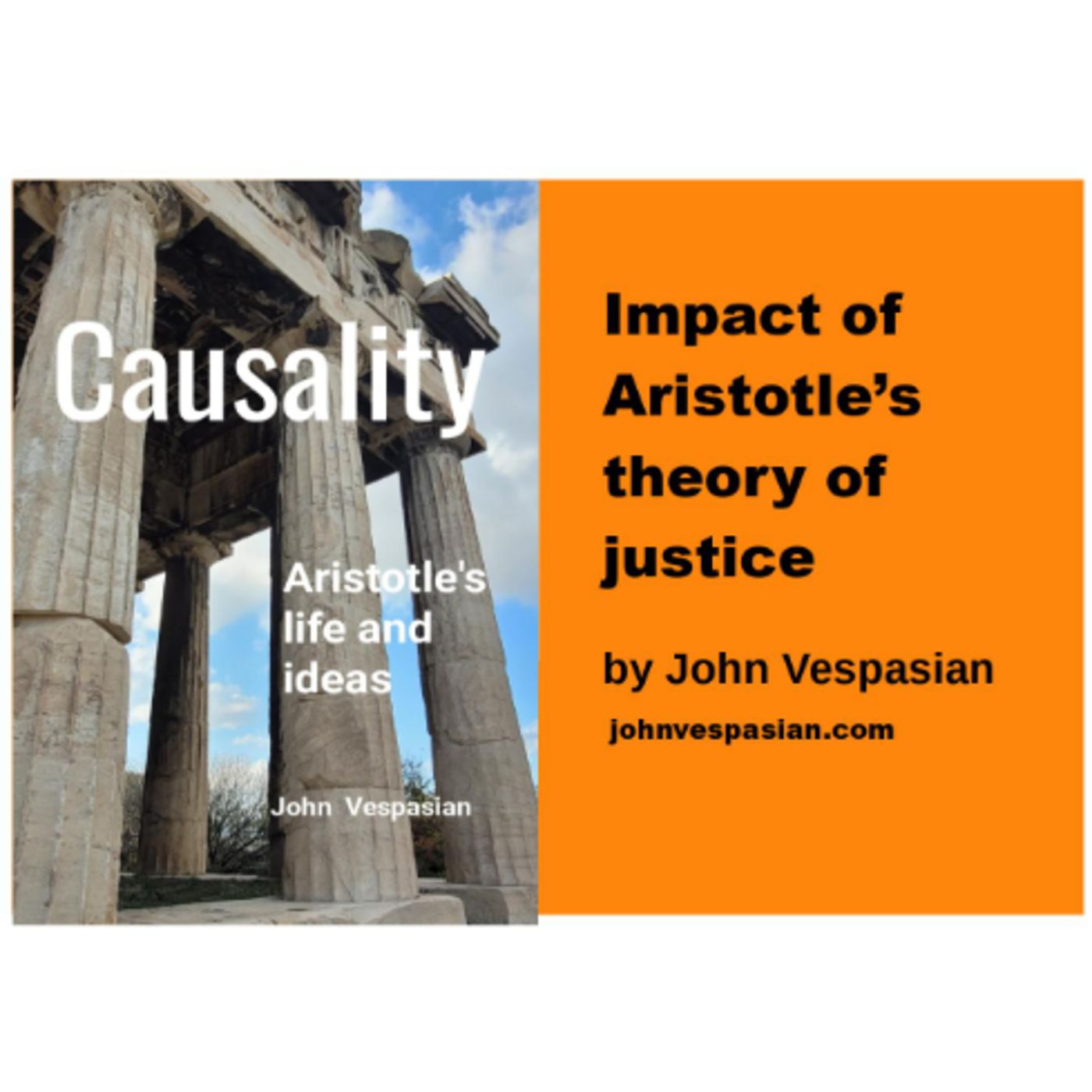
John VespasianImpact of Aristotle’s theory of justiceThe justice definition given by Aristotle in “Nicomachean Ethics” is simple, but accurate and profound. A person behaves in accordance to justice only if he has “an habitual disposition to render to each person his due.” John Vespasian explains that the definition demands giving consistently and regularly to each person his due, not only occasionally, not only from time to time. Aristotle’s predecessors such as Socrates (469-399 BC) had not been able to come up with such a complete definition. Despite his focus on self-examination and introspection, Socrates had failed to give a precise meaning to the concept of justice. H...
2025-03-2604 min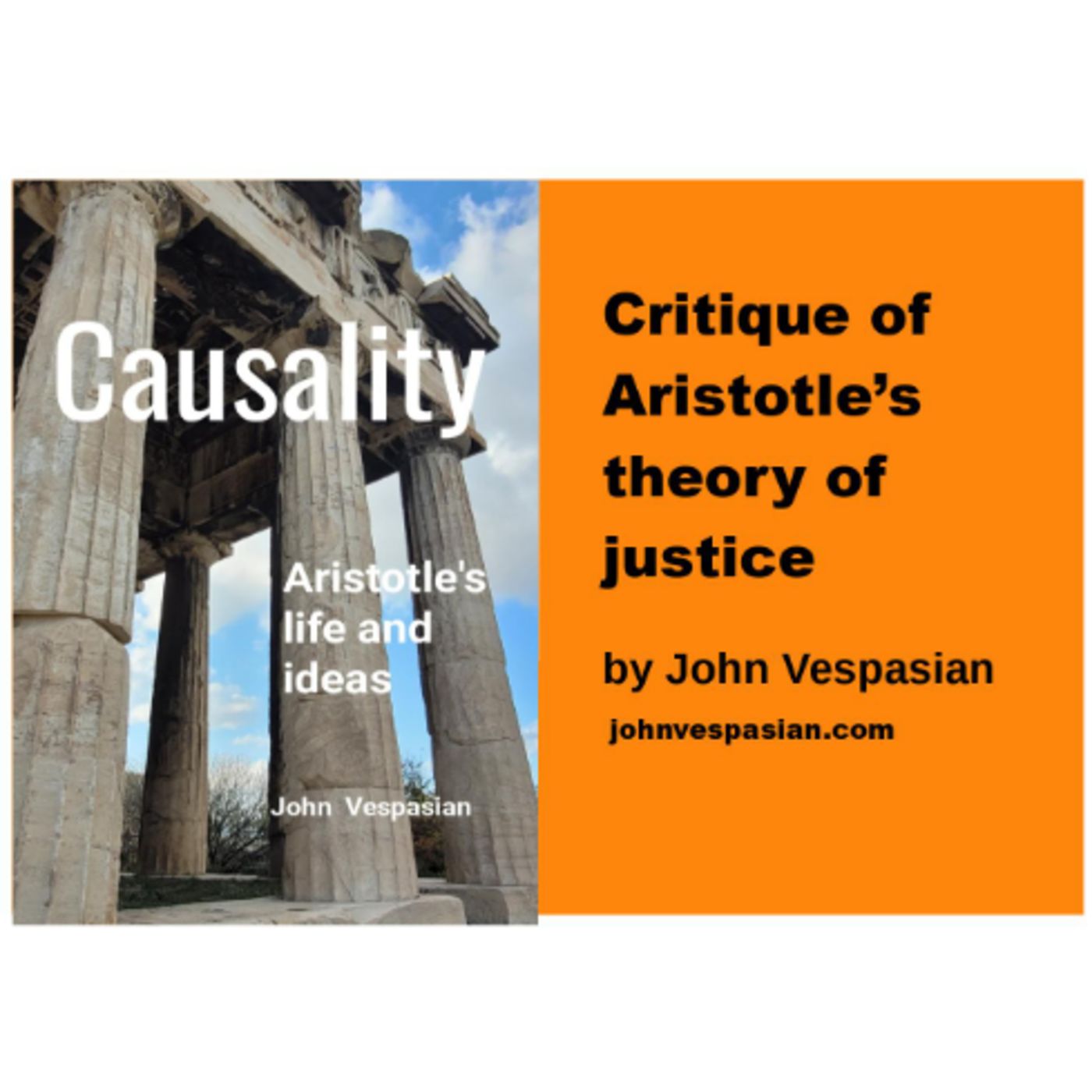
John VespasianCritique of Aristotle’s theory of justiceJohn Vespasian explains that, after Aristotle’s death in 322 BC, the next generation began to question the principles of identity and causality, and rejected Aristotle’s concept of justice. Epicurus (341-271 BC) completely distorted Aristotle’s idea of justice. Instead of viewing it as a major virtue, Epicurus did not even consider it worth pursuing. He talked of pursuing serenity and happiness, but defined them in a vacuum. He regarded them as individual experiences detached from morality, causality, or justice. Epicurus considered justice a tool (legal procedure) with the sole purpose of preventing and settling conflicts in society. He wanted justic...
2025-03-2510 min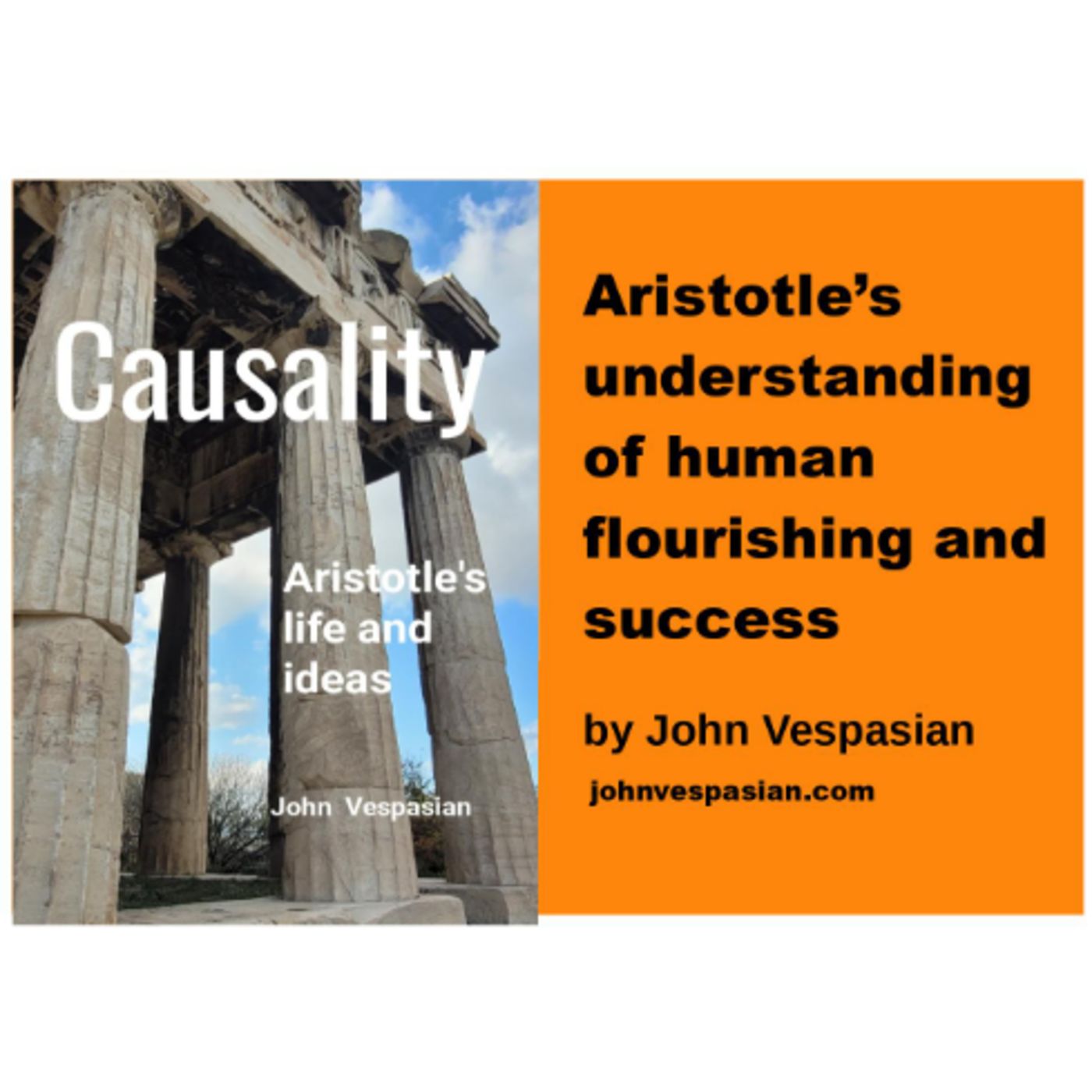
John VespasianAristotle’s understanding of human flourishing and successAristotle (384-322 BC) addressed human flourishing in his work, “Nicomachean Ethics.” John Vespasian explains that the key idea of “Nicomachean Ethics” is that the goal of human life should be happiness (in Greek “eudaimonia).” For Aristotle, happiness means “leading the good life” or “flourishing.” It means that the concerned person has attained steady, overall well-being, not just a fleeting pleasure. According to “Nicomachean Ethics,” eudaimonia requires cultivating intellectual and moral virtues day after day. What did Aristotle mean by “intellectual virtues”? He meant wisdom and understanding developed through education and reflection. On the other hand, moral virtues such as courage, generosity and justice are a...
2025-03-2507 min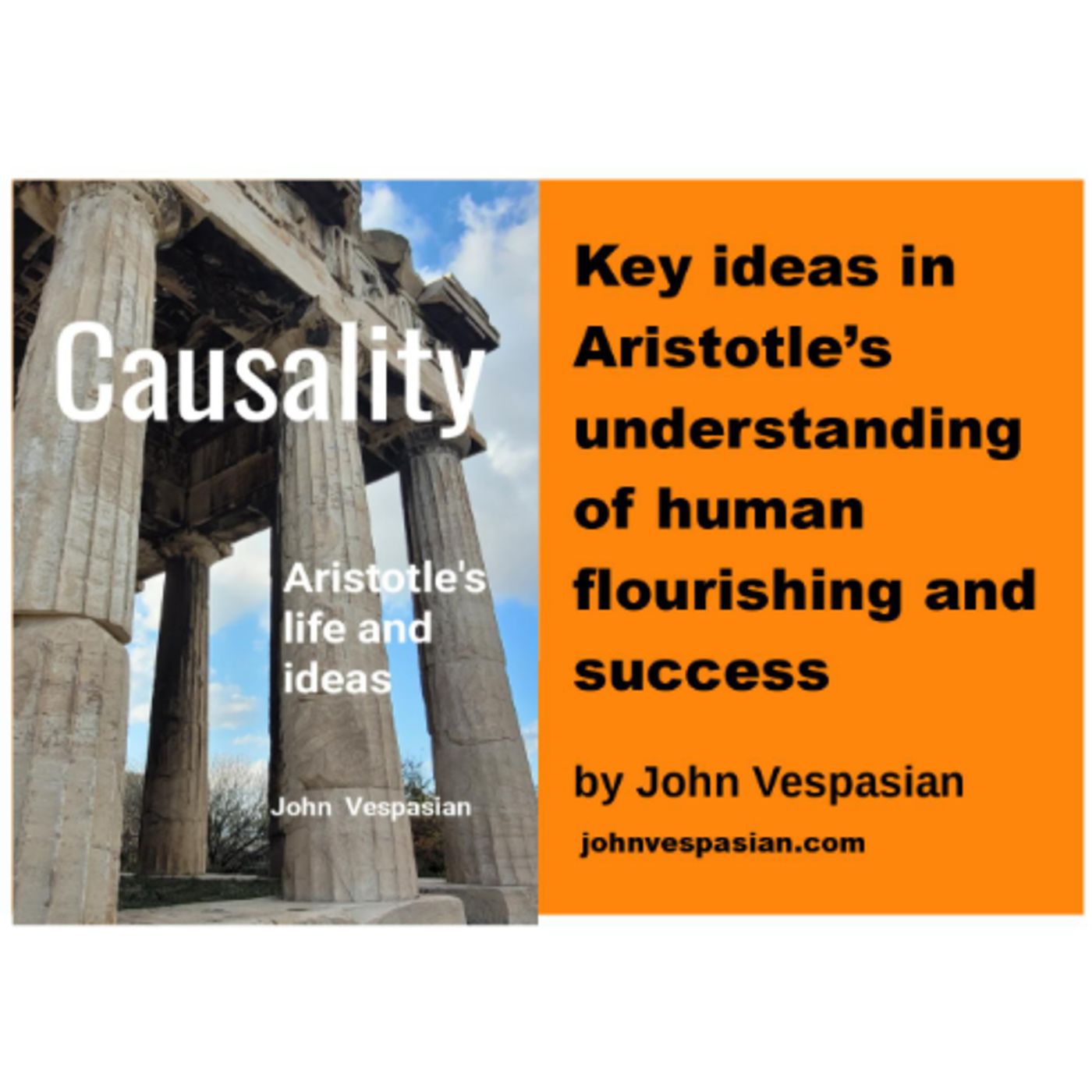
John VespasianKey ideas in Aristotle’s understanding of human flourishing and successJohn Vespasian explains that Aristotle’s understanding of human flourishing and success, as presented in the “Nicomachean Ethics” and the “Eudemian Ethics,” can be summarised in three principles. Those three key ideas are common to Plato, Taoism and Confucianism. The first principle is the need of knowledge to achieve self-actualisation, that is, to achieve one’s potential. The process of self-actualisation or flourishing is essential to happiness, said Aristotle. You need to take action and pursue challenging goals; if you stay passive or fail to set goals for yourself, entropy will eat up your time and energies, and you’ll end up in desp...
2025-03-2507 min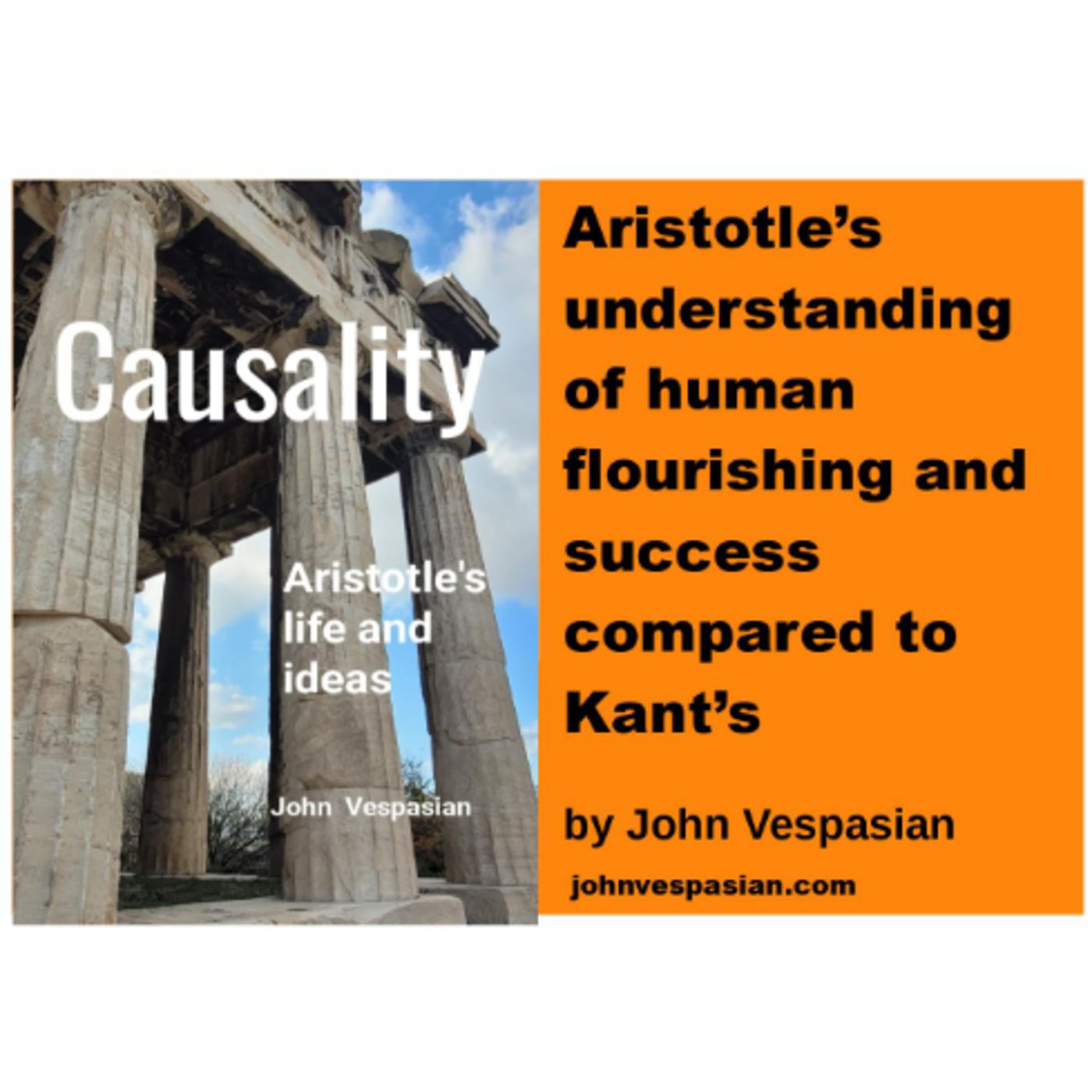
John VespasianAristotle’s understanding of human flourishing and success compared to Kant’sThe largest successes and failures always start with a simple principle, namely, Aristotle’s principle of causality. If you understand it and adhere to it, you should do well in life. If you ignore its existence or fail to obey it, it will wipe you out. After Thomas Aquinas (1225–1274) had rediscovered every key principle of Aristotelian philosophy, one might expect later generations to observe those principles, right? Actually not, explains John Vespasian. History is not linear. It often happens that key ideas are forgotten for decades or centuries. The truth can be long forgotten before it is again brought to ligh...
2025-03-2505 min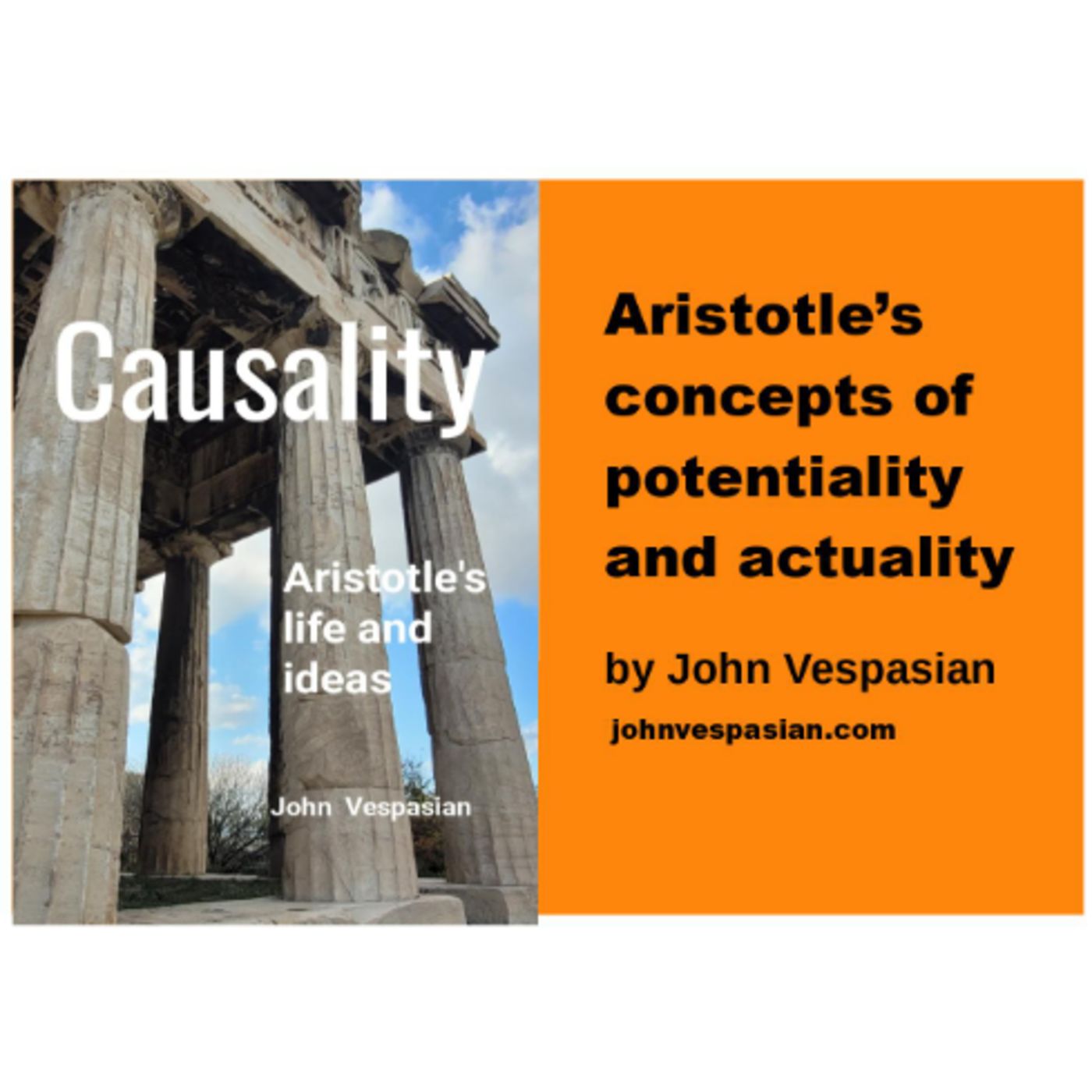
John VespasianAristotle’s concepts of potentiality and actualityJohn Vespasian explains that Aristotle defined “potentiality” as “the capacity for change that creatures and entities possess.” In contrast, he defined “actuality” as the realisation of their potential. From this perspective, the whole dynamics of the world can be explained by the activities of creatures and entities to attain their potential. Thus, change of any sort (chemical, mechanical, biological, or psychological) can be regarded as potentiality turning into actuality. If you take clay and make a cup, you have actualised its potential. In doing so, you have applied your purpose (final cause) to a material to give it a specific shape (forma...
2025-03-2505 min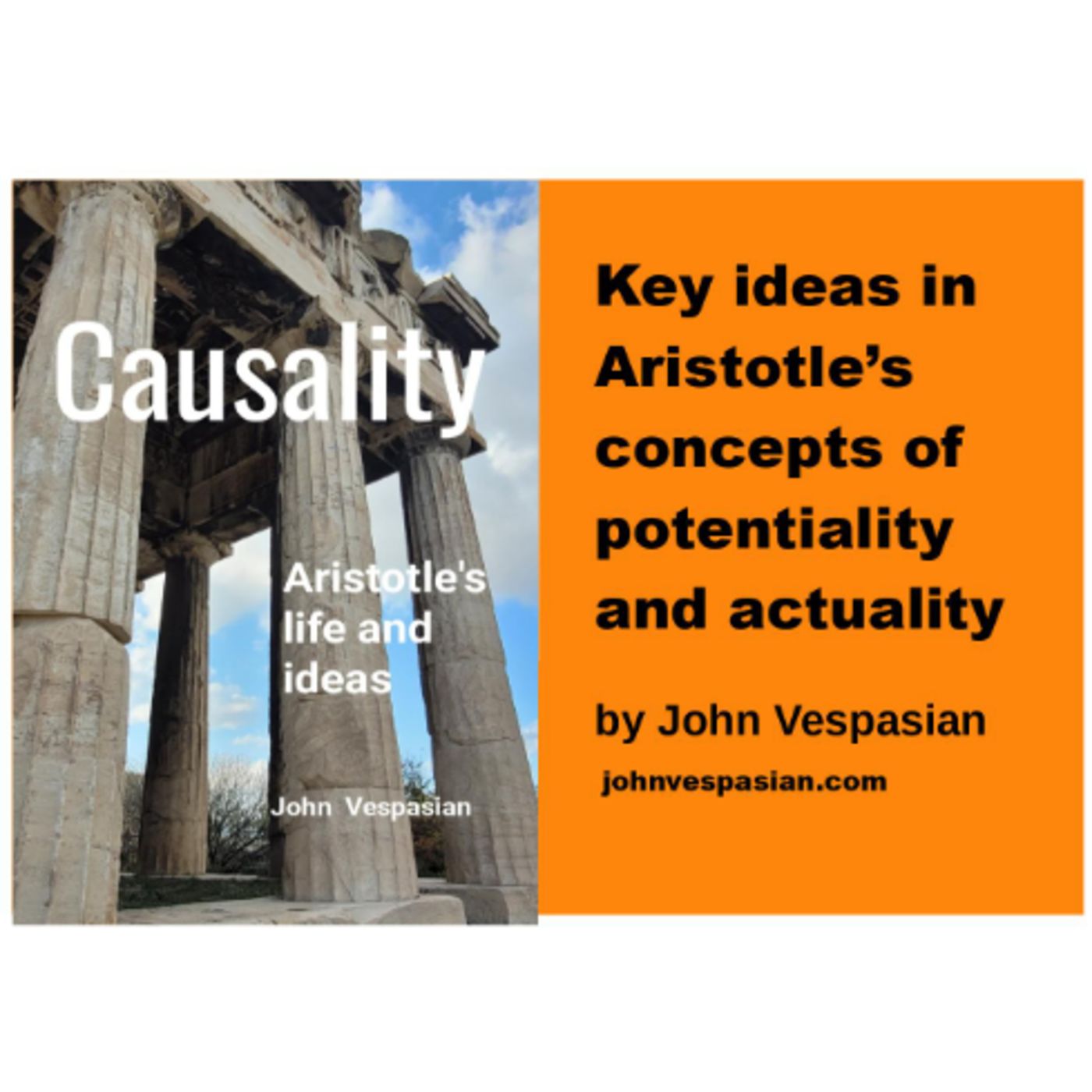
John VespasianKey ideas in Aristotle’s concepts of potentiality and actualityJohn Vespasian explains that the concepts of potentiality and actuality occupy the central position in Aristotle’s metaphysics. They supply an invaluable intellectual tool to assess people and events for what they are, and for what they could become. Aristotle’s concepts of potentiality and actuality encompass three key ideas. Each of them has been proven by history, but was harshly attacked by its opponents. Let us explore these three key ideas in detail. The first key idea in Aristotle’s concepts of potentiality and actuality is that they possess a strong ethical component. They are meant to encourage people to bec...
2025-03-2507 min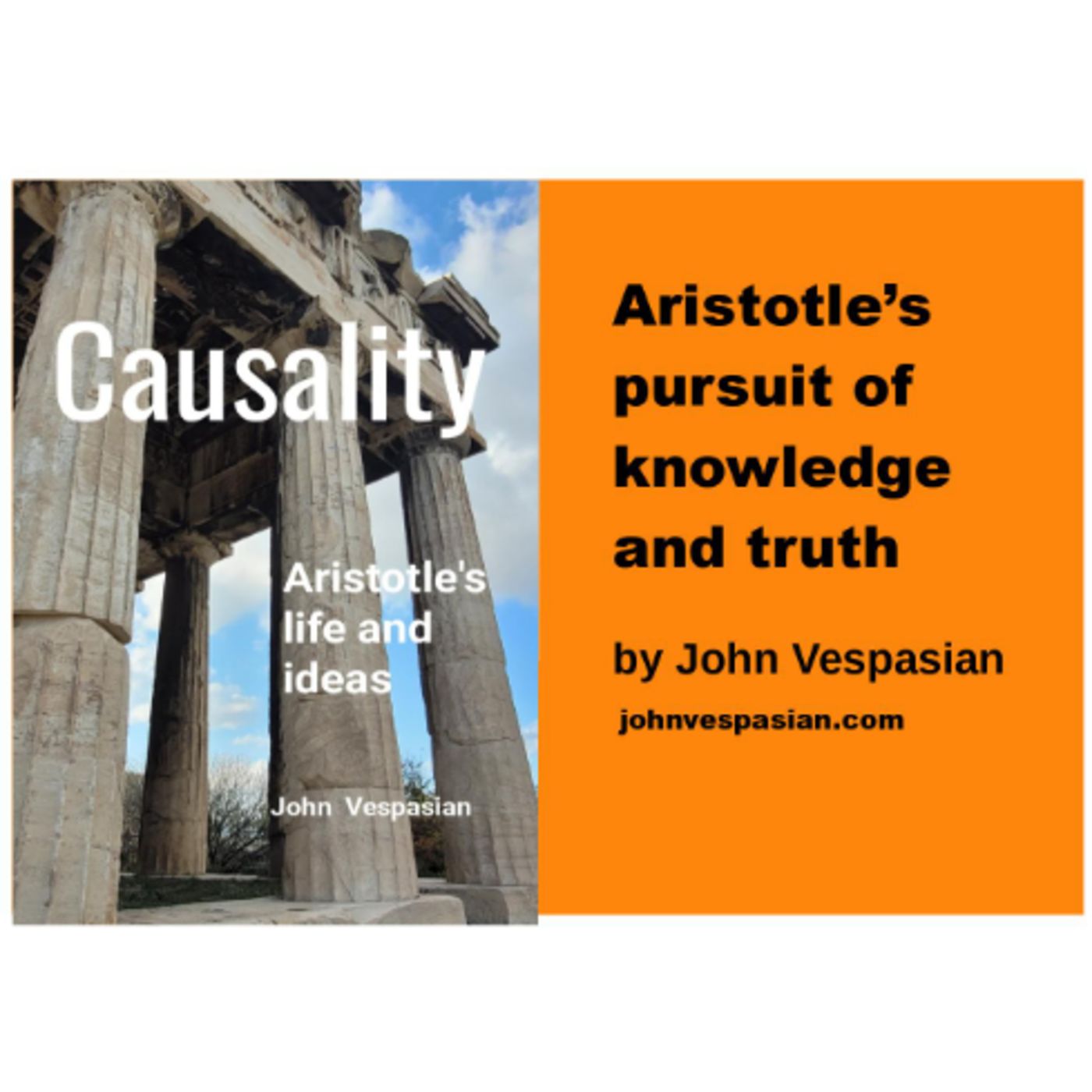
John VespasianAristotle’s pursuit of knowledge and truthJohn Vespasian explains that the books by Aristotle (384-322 BC) on metaphysics and logic are impressive, but we can draw practical lessons more directly by looking at his life. It’s a simple, straightforward manner to see philosophy in action. In 384 BC, Aristotle was born in Stagira, a small city on the northern coast of the Aegean Sea. Aristotle’s father (his name was Nicomachus) was the personal physician to King Amyntas of Macedonia. Thanks to his elevated position, Nicomachus gave Aristotle the best upbringing available. The efforts bore fruit fairly soon because Aristotle possessed an insatiable curiosity. He wanted to l...
2025-03-2508 min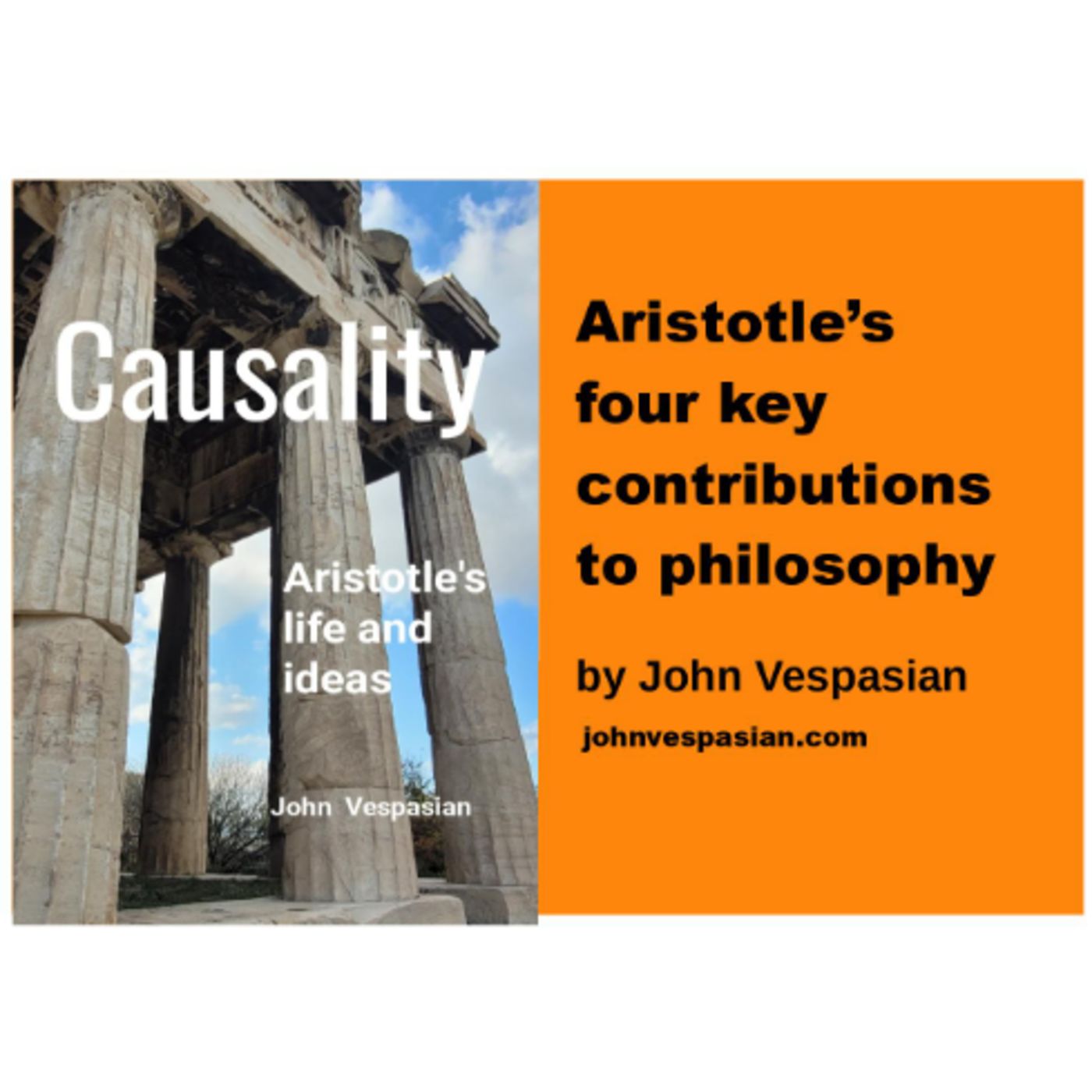
John VespasianAristotle’s four key contributions to philosophyJohn Vespasian explains that Aristotle (384-322 BC) made four decisive contributions to philosophy. First, in metaphysics, he refuted Plato’s theory of forms. While Plato had believed in a world of pure abstractions (which he called “forms”), Aristotle emphasised observing the material world. Second, Aristotle came up with the concepts of substance and form. He asserted that each item is composed of substance and form. Substance refers to its underlying essence, and form to its individual characteristics. The combination of substance and form define the identity of each entity or person. Identity determines how an entity will behave, its present and fu...
2025-03-2508 min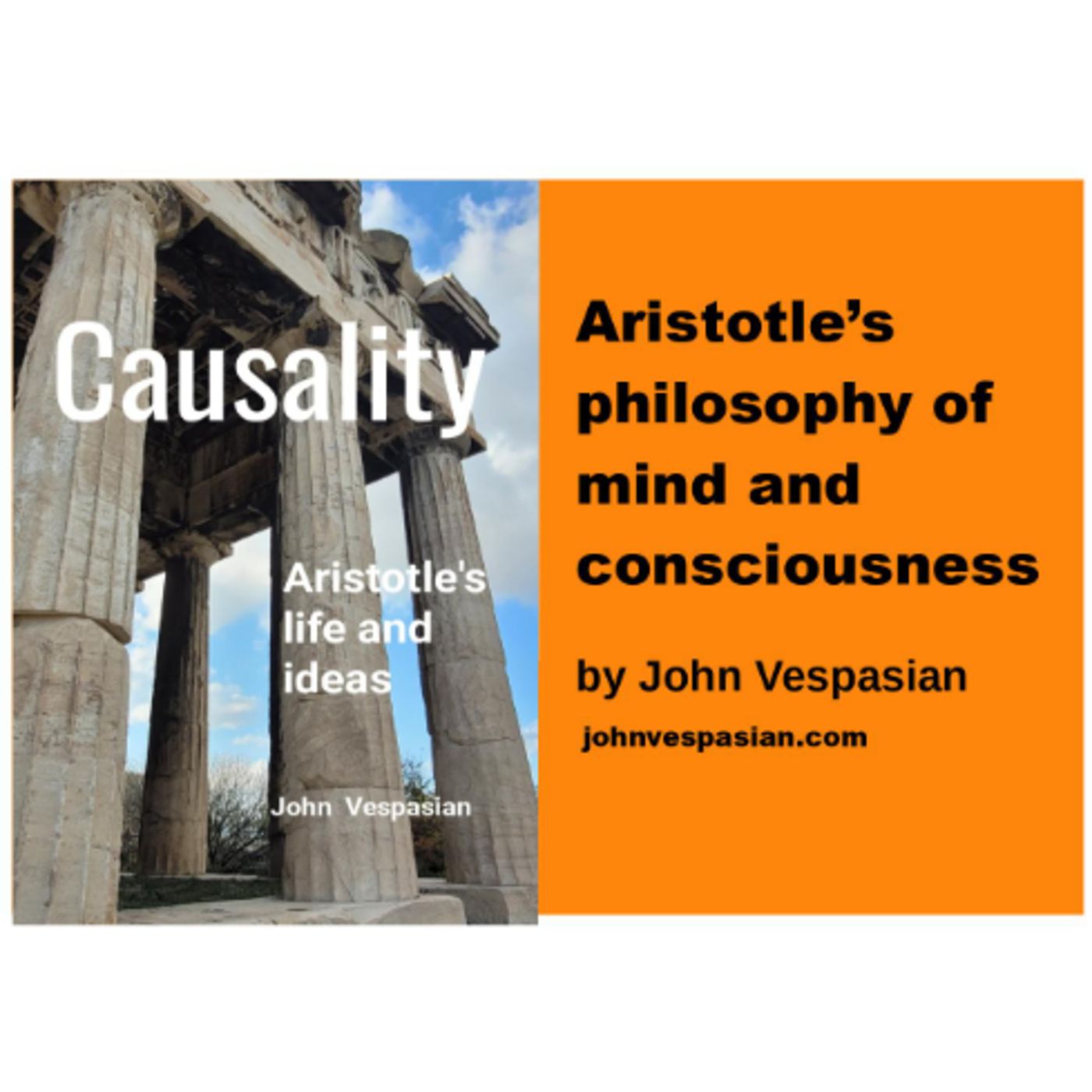
John VespasianAristotle’s philosophy of mind and consciousnessAristotle (384-322 BC) outlined his philosophy of mind and consciousness in his work “Metaphysics.” For the first time in history, he proposed a universal method for analysing reality in all its aspects: the cosmos, nature, and human beings. John Vespasian explains that, to develop his views on mind and consciousness, Aristotle had to let go first of Plato’s theory of forms. Plato had taught in his Academy that, in addition to the present world, there exists one intangible world of pure abstractions, which he called “forms." In the Platonic framework, the key function of the mind and consciousness is to acces...
2025-03-2506 min
John VespasianSchopenhauer and Freud: similarities and differencesIn terms of chronology, Arthur Schopenhauer (1788–1860) preceded Sigmund Freud (1856–1939) by two generations. The worlds they inhabited were different, but Freud’s psychological insights rest upon the philosophy developed by Schopenhauer. John Vespasian explains that Schopenhauer outlined his philosophy in “The world as will and representation,” a book published in 1818. The theory of the will (“life force”) constitutes the backbone of his ideas. According to this theory, the will drives living creatures to ensure their survival and reproduction, and to seek short-term pleasure. Schopenhauer describes the will as blind, eternal, feral and indefatigable. If you are not alert, the will is going to contr...
2025-03-2106 min
John VespasianSchopenhauer’s influence on FreudSigmund Freud (1856–1939) did not acknowledge at every opportunity an intellectual debt towards Arthur Schopenhauer (1788–1860) because he claimed to have come up himself with the theory of the unconscious (instincts) as a driving force. John Vespasian points out that anyone familiar with Freud’s and Schopenhauer’s ideas cannot possibly fail to notice the close similarity between Freud’s theory of the unconscious and Schopenhauer’s ideas, in particular, the theory of the will (“life force”). Freud published in 1914 his essay “On narcissism” in which he argues that a certain level of self-respect is necessary for a healthy personality. The problem arises when the indi...
2025-03-2107 min
John VespasianSchopenhauer on psychologyArthur Schopenhauer (1788-1860) did not believe that real-life problems can be solved through psychological tricks. The purpose of philosophy is to understand the world, so that one can take real action to solve real problems. John Vespasian explains that, although Schopenhauer made contributions to psychology, his focus was on philosophy. He never lost sight of his primary goal, namely, to identify the principles driving the cosmos in general, and human nature in particular. In his book “The world as will and representation” (1918), Schopenhauer argued that living entities are driven by a blind, irrational force that he called “the will.” The theory o...
2025-03-2005 min
John VespasianOpponents to Schopenhauer’s views on psychologyIn contrast to the fragmentary prescriptions often given by psychologists, Arthur Schopenhauer (1788-1860) aimed at one comprehensive explanation for the world, including all living creatures. In his work “The world as will and representation” (1818), he argues that the will (“life force”) prompts all living creatures to ensure their own survival and reproduction, seeking short-term pleasure as well but without considering the costs and risks. John Vespasian explains that, according to Schopenhauer, human motivation is heavily in the sphere of influence of the will. Humans are often prompted by the will to engage in harmful decisions and behaviour. It’s a pressure t...
2025-03-2005 min
John VespasianSchopenhauer’s biography (4 of 5): the years of disappointing successEven for a genius like Arthur Schopenhauer (1788-1860), it’s far from self-evident to define success; the feeling of achievement will wane fairly quickly if people are admiring you for reasons that have little to do with your life’s purpose. John Vespasian explains that Schopenhauer started to experience success in 1830. He was already forty-two years old and had spent decades in obscurity, despite his remarkable work. As of 1830, universities and other institutions started to invite Schopenhauer to give lectures, and journalists published some favourable articles about him. The articles did not clearly describe his philosophy, but at least, they made...
2025-03-2005 min
John VespasianSchopenhauer’s biography (3 of 5): the struggling decadeThe struggling decade in the life of Arthur Schopenhauer (1788-1860) encompasses the period between 1817 and 1827, that is, the year he had devoted to writing “The world as will and representation” and the ensuing nine years. John Vespasian explains that Schopenhauer had very optimistic expectations for his work “The world as will and representation” and did not hesitate to pay for its publications. In the early nineteenth century, we are talking about a substantial investment. In contrast to today’s electronic editing, the publication of a book in 1818 entailed vast amount of typesetting done by hand and the correction of mistakes detected d...
2025-03-2005 min
John VespasianSchopenhauer’s biography (2 of 5): the path to the theory of the willAs a student at the University of Berlin, Schopenhauer went to philosophy lectures given by Johann Gottlieb Fichte (1762-1814) focusing on the metaphysical ego of the German people. John Vespasian explains that Fichte’s lectures were extremely popular, but Schopenhauer found them nonsensical. He viewed Fichte’s arguments for the existence of a metaphysical German ego as inventions lacking evidence and consistency. In a word, Schopenhauer considered Fichte’s ideas worthless. In contrast to his former quiet life at the Gymnasium and at the University of Göttingen, Schopenhauer had an active social life in Berlin. He attended a large number...
2025-03-2006 min
John VespasianSchopenhauer’s biography (1 of 5): The first turning pointThe biography of Arthur Schopenhauer (1788-1860) is worth studying because it provides a wonderful illustration of Schopenhauer’s ideas. He practised what he preached at each opportunity and published extensive notes about his thoughts. John Vespasian explains that Schopenhauer is one of the best German-language thinkers and essayists, but he was born in Danzig, which is nowadays called Gdansk and belongs to Poland. His parents were both hard-working and successful, each of them in their own way. His mother was named Johanna. By the time Arthur Schopenhauer was still a teenager, she had already attained best-seller status with her romantic no...
2025-03-2005 min
John VespasianSchopenhauer’s biography (5 of 5): the illustrious yearsIn the life of Arthur Schopenhauer (1788-1860), the last two decades are the illustrious years. John Vespasian explains that, during those two decades, Schopenhauer enjoyed the status of a minor celebrity in German-speaking territories. Schopenhauer published “The art of debate” (sometimes translated as “The art of controversy”) in 1839. He had turned fifty-one and was continuing with his strategy of publishing as many short books and essays as possible. The more titles he published, the more attention he attracted from reviewers, and the higher the chances of having one title become a best seller. Schopenhauer gave dozens of lectures, presenting his book “Th...
2025-03-2006 min
John VespasianSchopenhauer on ethicsThe ethics system proposed by Arthur Schopenhauer (1788-1860) is similar to Ancient Stoicism in some aspects, but offers more complex explanations on the workings of nature, society, and human motivation. John Vespasian explains that Schopenhauer theorised that life is fundamentally marked by the influence of the will (“life force”) which will generate a large amount of suffering and dissatisfaction if you fail to take countermeasures. The theory of the will was put forward by Schopenhauer in his work “The world as will and representation” (1818); people are subjected to the influence of the will, driven to ensure their survival, reproduction, and seek sho...
2025-03-2005 min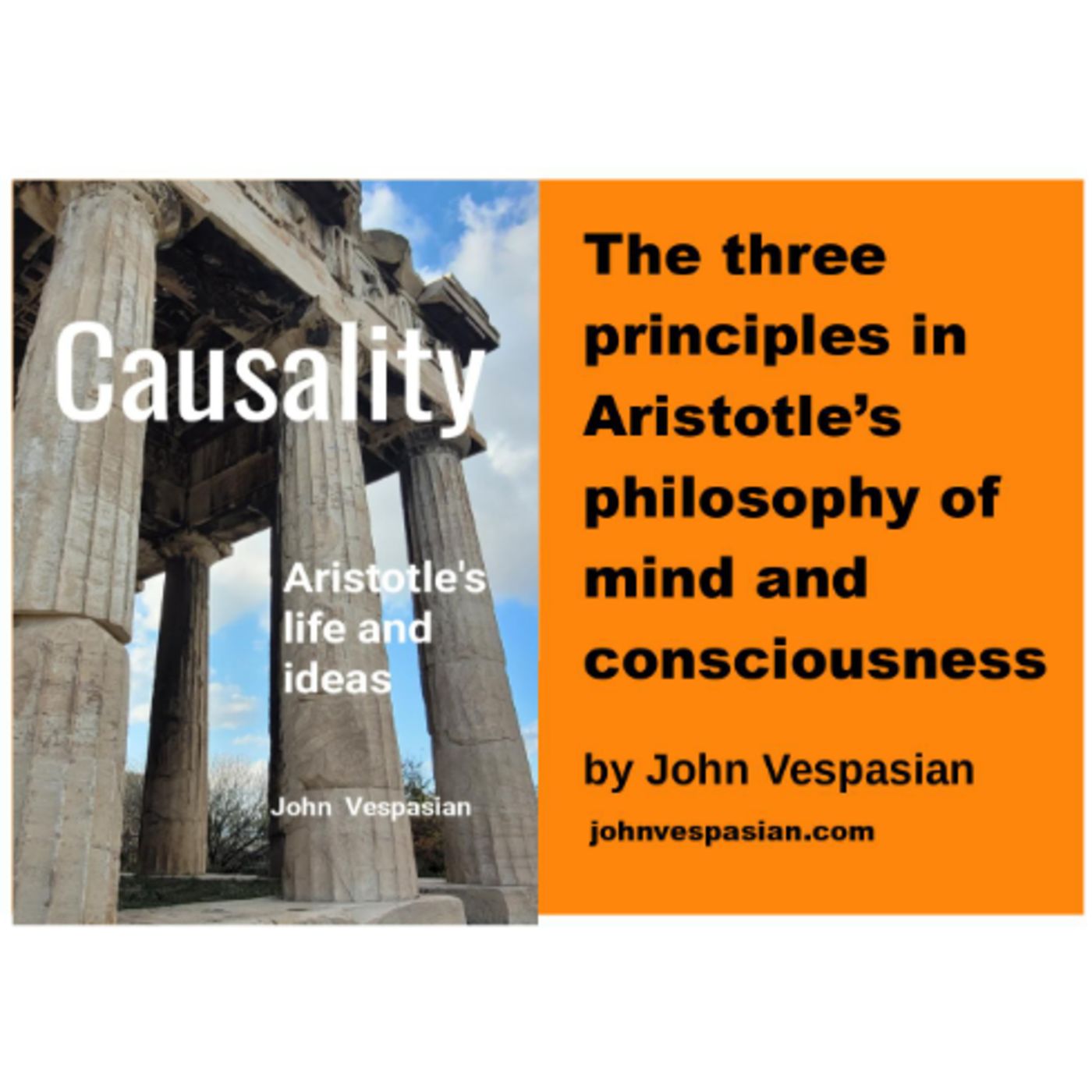
John VespasianThe three principles in Aristotle’s philosophy of mind and consciousnessTwenty-five centuries ago, Aristotle delineated a philosophy of mind and consciousness that has never been surpassed. His principles, outlined in his books “Categories,” “Metaphysics,” and “Physics,” have withstood the passage of time. His books were written mostly in the period 340-325 BC. John Vespasian explains that the Aristotelian philosophy of mind and consciousness can be condensed in three principles. Let’s enumerate them one by one. First, the definition of human beings as rational creatures. It differentiates Aristotle from his contemporaries Plato (428-347 BC), Zeno (334-262 BC) and Epicurus (341-270 BC). Those gave less weight to reason, and more to emotions and i...
2025-03-1808 min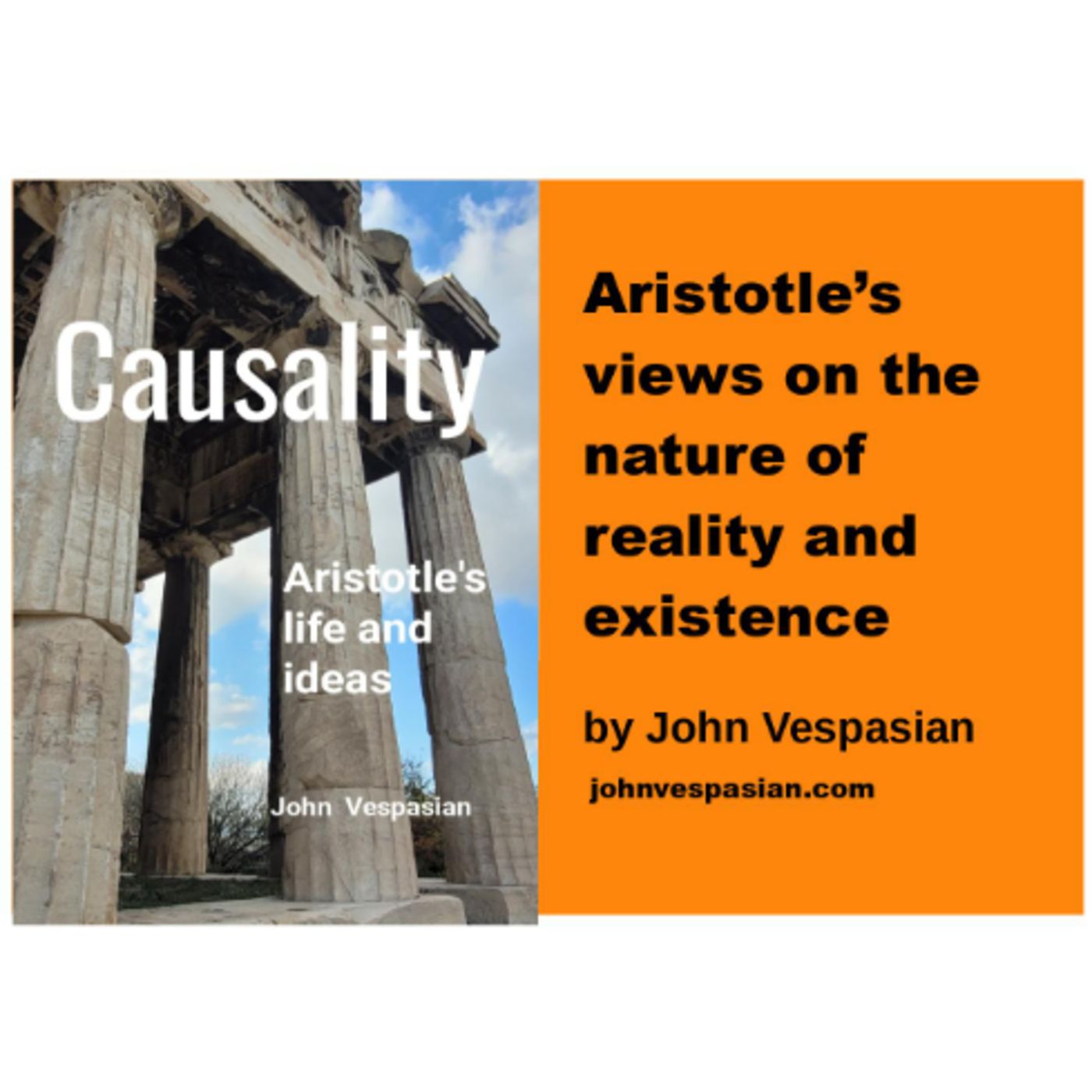
John VespasianAristotle’s views on the nature of reality and existenceThe enormous achievements of Aristotle come to light when you compare his ideas with those of other thinkers. John Vespasian explains that, especially during the decade that Aristotle devoted to lecturing in Athens (335-325 BC), he came up with very accurate insights on the nature of reality and existence. As Aristotle explains in his book “Metaphysics,” each entity in the world possesses a unique essence or nature. In broad terms, the essence of an entity is determined by its “material cause” (the matter that constitutes it) and its “formal cause” (its shape). In addition, when entities move, we can also speak of the...
2025-03-1804 min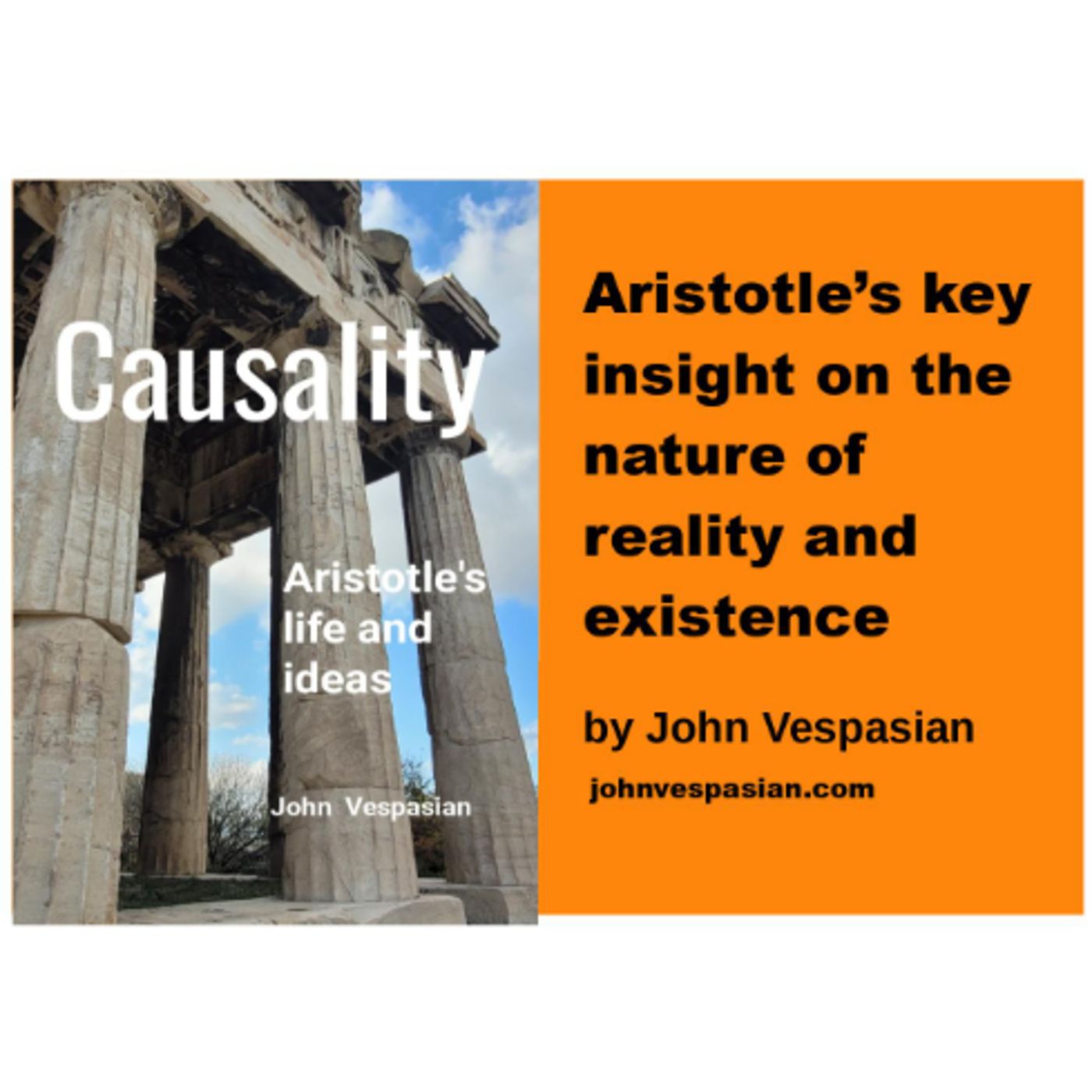
John VespasianAristotle’s key insight on the nature of reality and existenceThe books “Metaphysics” and “Nicomachean Ethics” were written or dictated by Aristotle around 330 BC. They condense his insight on the nature of reality and existence. John Vespasian explains that the key idea in those works is the acknowledgement that existence exists. That essential insight leads to grasping that the world is driven by causality, and that human beings can shape their own destiny. The acknowledgement that existence exists means that we do not need esoteric arguments to understand reality. It means that we do not need to resort to superstition to guide our lives. Prior philosophers had been reluctant to acknowle...
2025-03-1804 min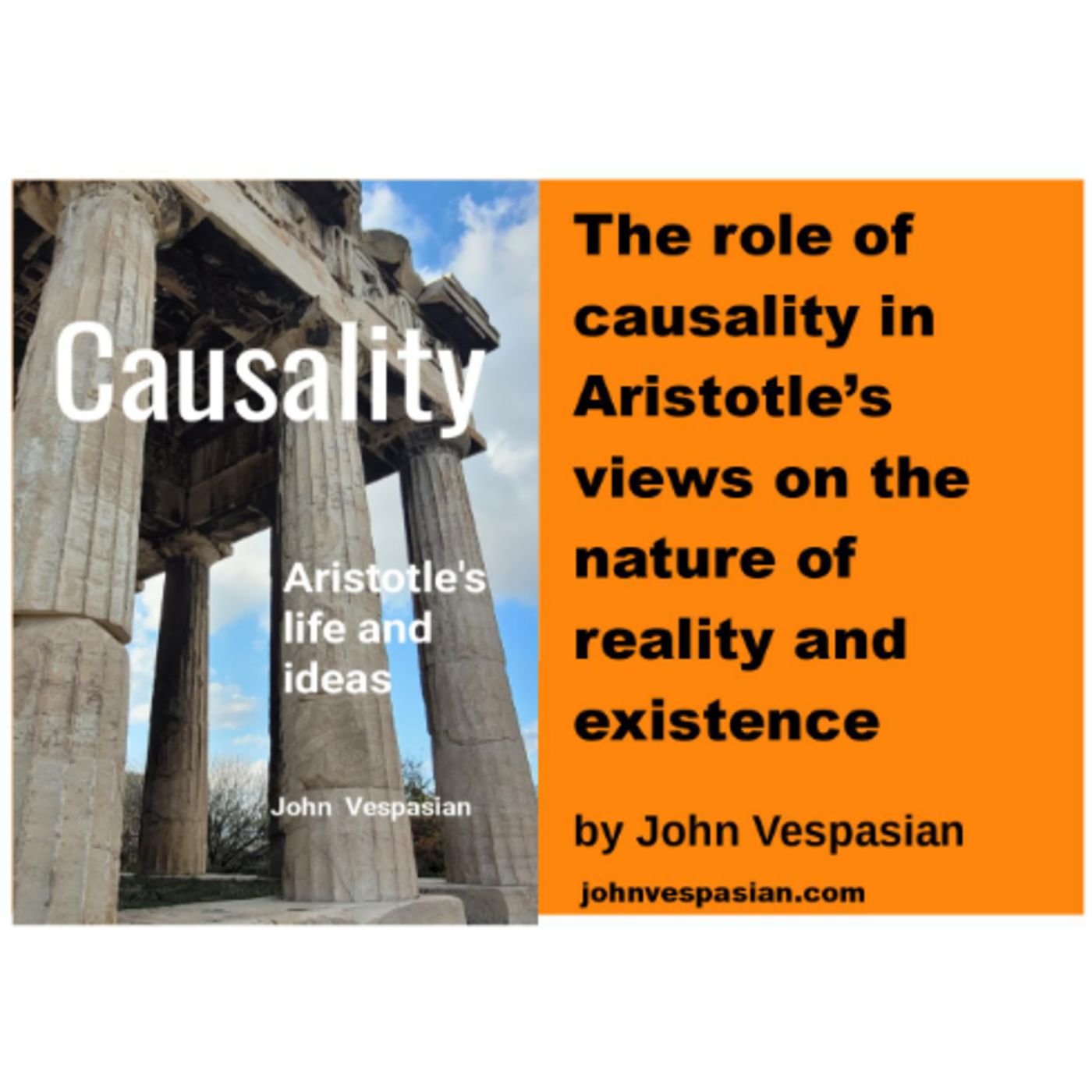
John VespasianThe role of causality in Aristotle’s views on the nature of reality and existenceAs soon as Aristotle passed away in 322 BC, the enormous importance of his contributions got lost for most people. Only a superficial knowledge of his philosophy remained such as the concepts of potentiality and actuality. John Vespasian explains that, to the detriment of civilisation, the pillar of Aristotle’s ideas was rapidly undermined, lost and forgotten. I am talking about causality, a concept that plays a pivotal role in Aristotle’s views on the nature of reality and existence. “Nature does nothing in vain,” wrote Aristotle in his work titled “Physics.” He meant that every entity and creature can be analysed acc...
2025-03-1805 min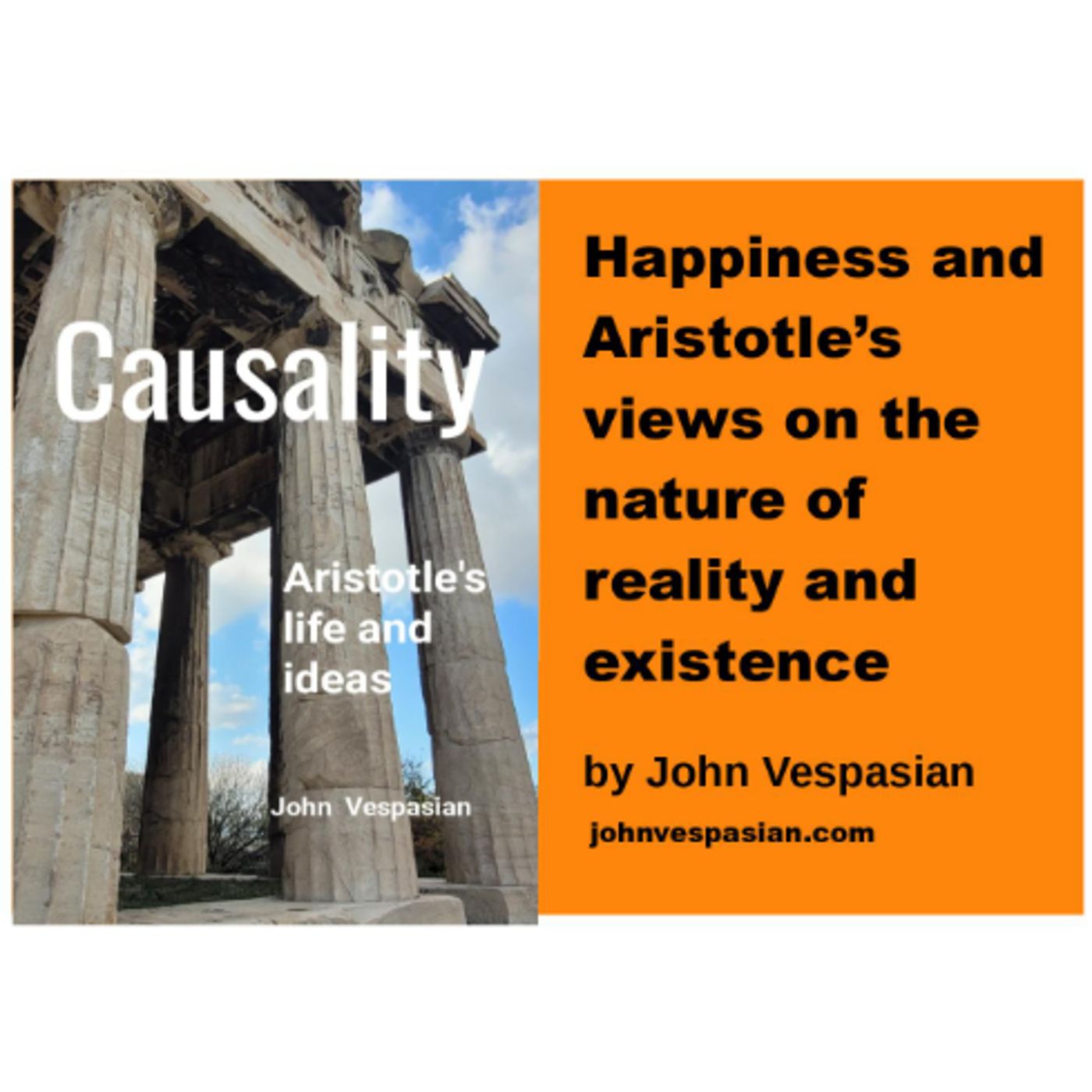
John VespasianHappiness and Aristotle’s views on the nature of reality and existenceConsistency is the hallmark of philosophical truth; in a good system of ideas, each individual aspect matches the totality and the totality matches reality. Every application of true principles leads to the best possible outcome under the circumstances. John Vespasian explains that true philosophy operates through identity and causality. It does not depend on wishful thinking, magic, or hope. Aristotle in his “Nicomachean Ethics” called hope a “waking dream” in contrast to the predictability delivered by causality. Even small deviations from the truth will create a lethal lack of consistency. Any discrepancy will undermine effectiveness and motivation. For example, the Roman ph...
2025-03-1804 min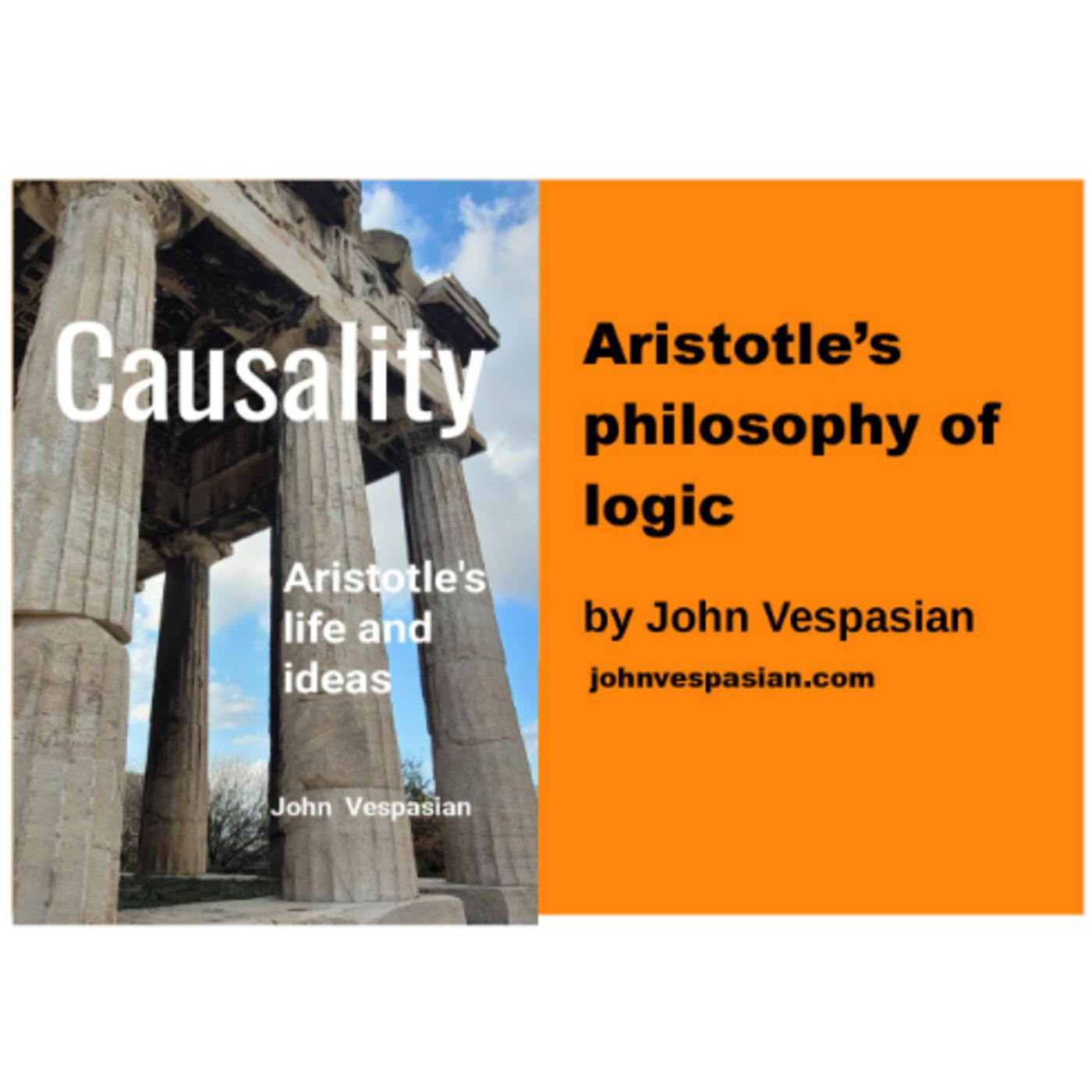
John VespasianAristotle’s philosophy of logicWhen Aristotle was born in 384 BC, logic was in its infancy and indistinguishable from rhetoric; the ancient Greeks viewed rhetoric as useful because it could help them secure a business deal or win a case in court. The purpose of rhetoric was to win; logic (even twisted logic) was just part of its arsenal. John Vespasian explains that Aristotle came up with a fresh approach to logic. His books “Categories,” “Prior Analytics” and “Posterior Analytics” give us his insights in this regard. “Categories” was written around 350 BC. Aristotle was just thirty-four years old at that time. The book enumerates crucial categories for a...
2025-03-1805 min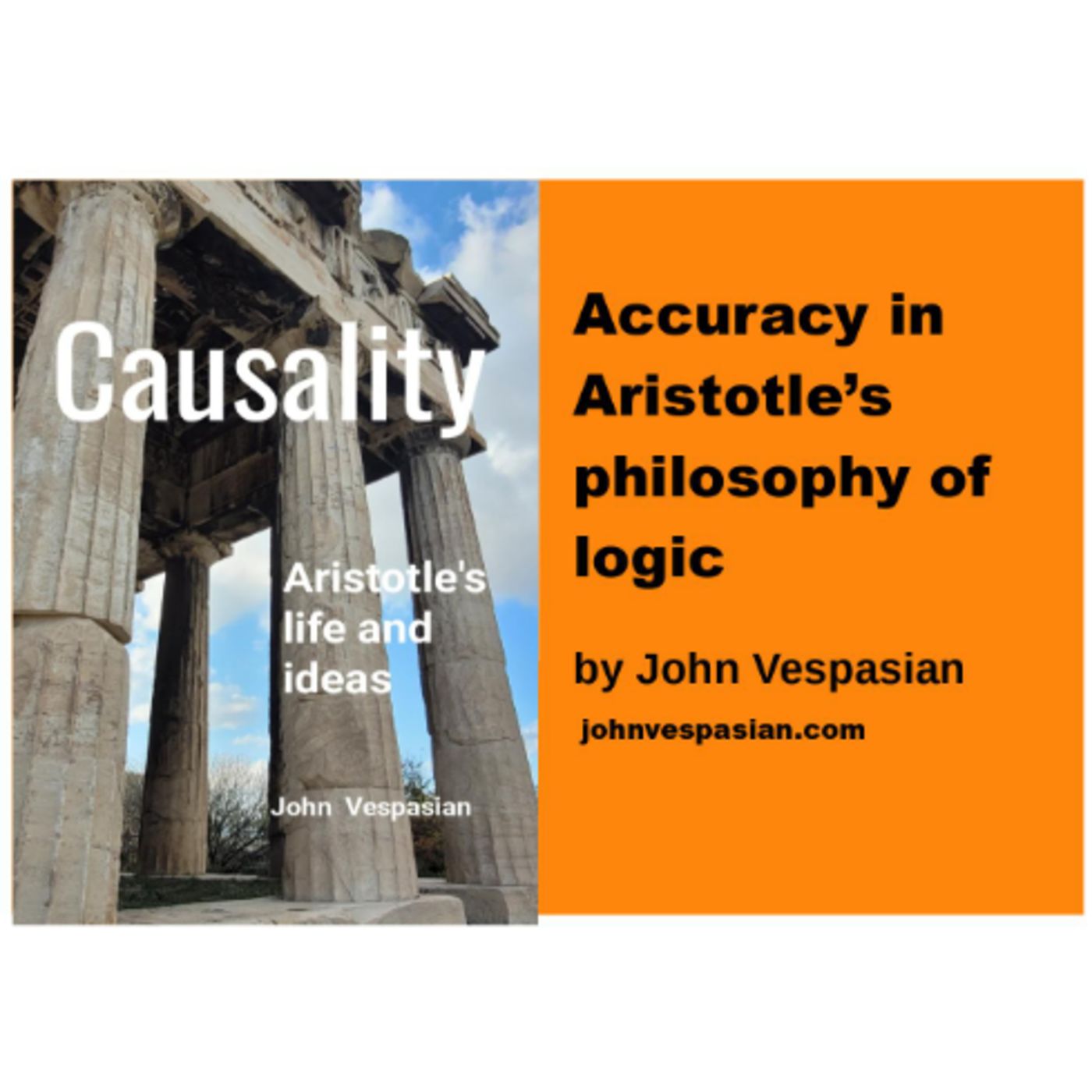
John VespasianAccuracy in Aristotle’s philosophy of logicIt is not an exaggeration to say that Aristotle (384-322 BC) made modern civilisation possible. He invented formal logic at a time where most of humanity could neither read nor write. If it wasn’t for Aristotle’s contribution to philosophy, we wouldn’t enjoy such a high standard of living nowadays. John Vespasian explains that, in his book “Prior Analytics,” Aristotle outlined the method for drawing correct conclusions; his method is called syllogism or syllogistic reasoning. A syllogism is a sequence of thoughts, ideas or statements that lead to an inescapable conclusion. Human intelligence can employ syllogisms (animals cannot, even the m...
2025-03-1804 min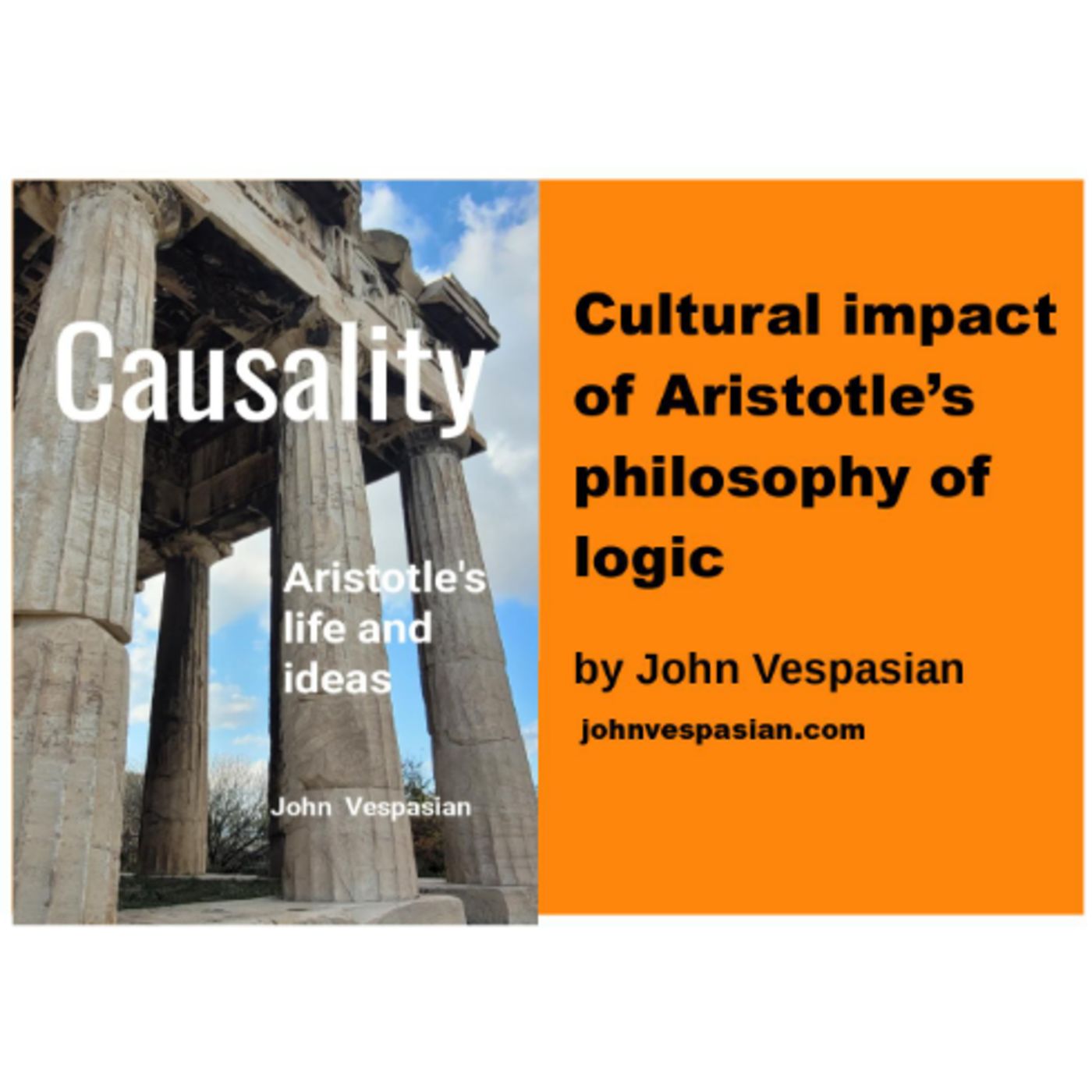
John VespasianCultural impact of Aristotle’s philosophy of logicThe cultural impact of Aristotle’s philosophy of logic begins with Thomas Aquinas (1225–1274), who undertook to couple Christian theology to Aristotelian philosophy. The combination is far from self-evident and Aquinas did it only by twisting the ideas of Aristotle almost beyond recognition. John Vespasian explains that, in his “Summa Theologiae,” Aquinas provides a systematic presentation on how to merge syllogistic logic and Christianity. According to Aquinas reason and faith are both important and should coexist harmoniously. Aristotle must have turned in his grave upon hearing such a suggestion. Mixing logic and faith was anathema to his way of thinking. Nonetheless, I must a...
2025-03-1804 min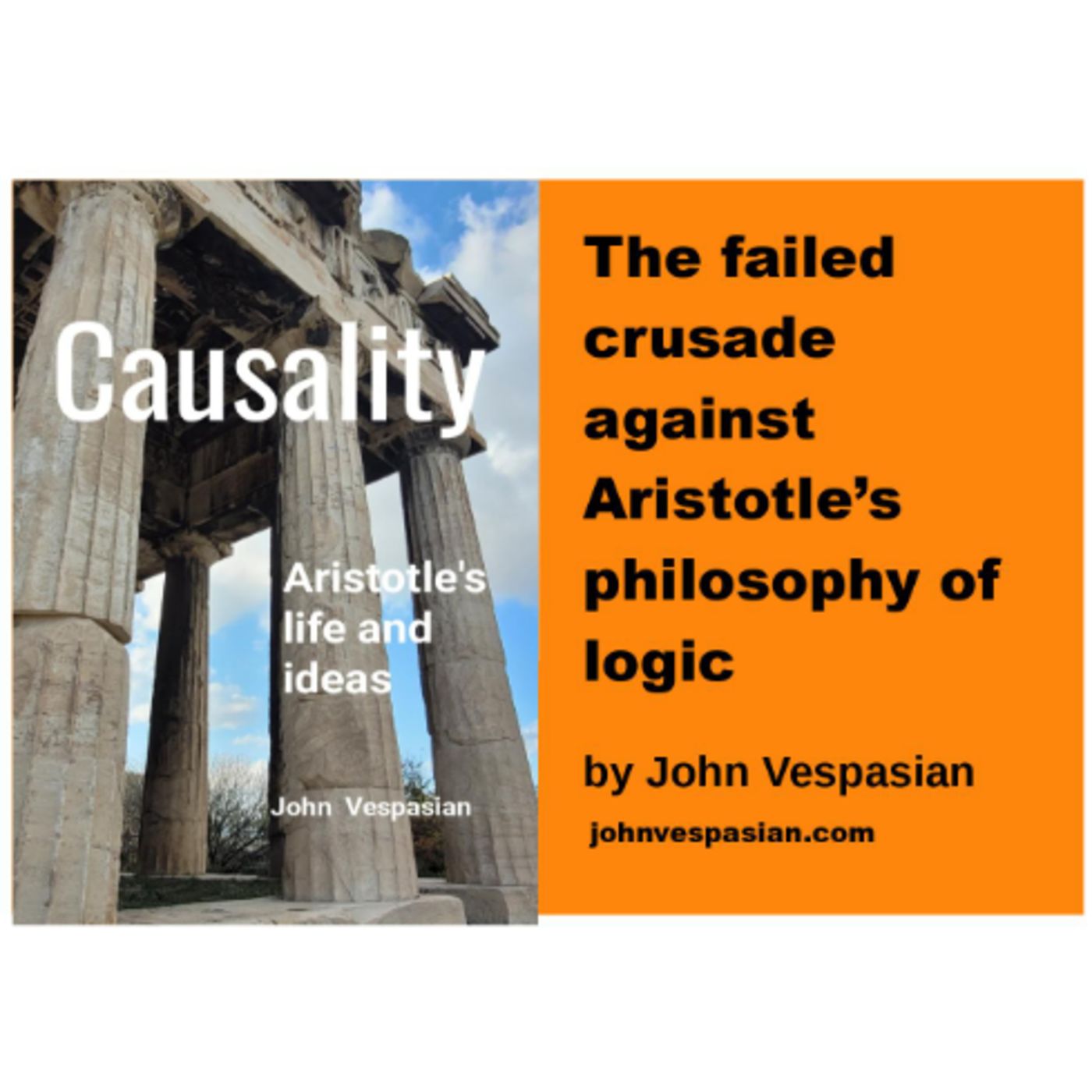
John VespasianThe failed crusade against Aristotle’s philosophy of logicThe philosophical innovations brought forth by Aristotle (384-322 BC) are momentous, truly revolutionary, especially in the field of logic. His identification of a precise method (which he called syllogism) to reach accurate conclusions allowed, for the first time in history, to conduct rational debates. John Vespasian explains that modern civilisation is built on the pillars of Aristotle’s logic, and the enemies of civilisation know that it can be undermined by severing those pillars. Without well-defined rules of logic, a rational discussion becomes impossible and anything goes. Unfortunately, history has generated many crusaders against Aristotelian logic. The damage they’ve infl...
2025-03-1805 min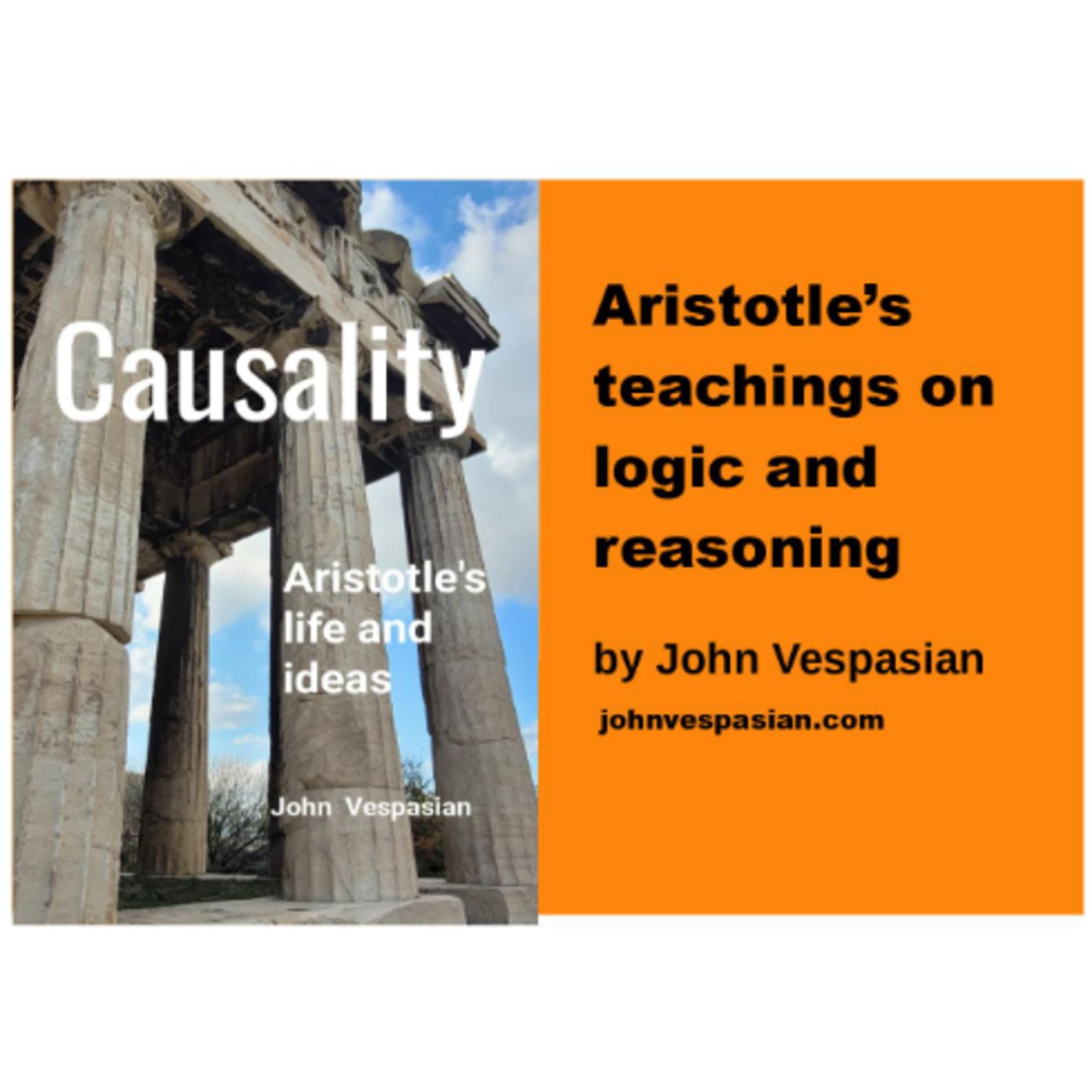
John VespasianAristotle’s teachings on logic and reasoningAristotle (384-322 BC) did not teach ready-made solutions, but methods for solving problems. The purpose of logic is to see beyond the obvious, assess the facts, and draw conclusions that are in line with all available evidence. John Vespasian explains that Aristotle’s teachings on logic and reasoning are presented in his book “Categories” and the twin treatises “Prior Analytics” and “Posterior Analytics.” They outline a method that is easy to grasp, but hard to apply consistently in every area of life. “Categories” is just an introductory work to logic. Its goal is to define terminology to describe the characteristics of objects, plants...
2025-03-1806 min
John VespasianAnalysis of Schopenhauer’s views on ethicsThe uniqueness of the ethical system put forward by Arthur Schopenhauer (1788-1860) becomes clear when we compare it with other philosophies. I regard it as particularly enlightening to compare Schopenhauer’s ethics with Taoism and Stoicism. John Vespasian explains that Taoism was created in ancient China. It predicates harmony with nature, spontaneity, modesty, simplicity and steering away from violence. Lao-Tzu (6th century BC) preceded Plato by a century. After his death, his disciples put his teachings in writing. For Taoists, the higher values are inner balance and tranquillity. They view those as more important than justice and self-fulfilment. A commonality be...
2025-03-1406 min
John VespasianSchopenhauer’s key ideas on ethicsJohn Vespasian summarises the moral philosophy put forward by Arthur Schopenhauer (1788-1860) in seven key ideas. The presentation of those key ideas will identify, when relevant, the difference between Schopenhauer and other philosophers. Schopenhauer’s ethics don’t rely on revelation by God or prophets. His ethics overlap with Christianity in some areas, especially in the appreciation of compassion as a major virtue, but do not refer to the teachings of Jesus Christ as recorded in the Bible. Like Christians, Schopenhauer calls for compassion, but his arguments are different. He views empathy and compassion as highly desirable attitudes that help alle...
2025-03-1307 min
John VespasianSchopenhauer’s views on solitudeIt is not exaggerated to affirm that solitude enabled Arthur Schopenhauer (1788-1860) to become a great philosopher. It took him forty thousand hours of quietness to sharpen his powers of observation, and another forty thousand to make sense of what he had observed. John Vespasian explains that Schopenhauer held solitude in high regard because it is a prerequisite of self-awareness. Individuals need quietness to understand how the will (“life force”) affects their lives. In his book “The world as will and representation” (1818), Schopenhauer argued that the will never stops prompting humans to pursue goals that are often impossible to achieve. The will...
2025-03-1305 min
John VespasianAnalysis of Schopenhauer’s views on solitudeFew philosophers agree with the positive views on solitude put forward by Arthur Schopenhauer (1788-1860). John Vespasian makes comparisons to identify the differences and look for the truth. Aristotle (384-322 BC) acknowledged the value of solitude for learning and self-awareness, but considered impossible for humans to reach their full potential without social connections. By “social connections,” Aristotle did not mean only family and friends; his definition of “social connections” encompasses the “polis,” that is, a Greek city with a population around three hundred thousand people in the case of Athens. In his Nicomachean Ethics, Aristotle defines “eudaimonia” (translated as “happiness”) as the outcome of fl...
2025-03-1306 min
John VespasianSchopenhauer’s views on the selfWhat characterises the philosophy of the self developed by Arthur Schopenhauer (1788-1860)? Which are the differences between Schopenhauer’s ideas and those of other philosophers? John Vespasian explains that Schopenhauer outlined his philosophy in “The world as will and representation,” a book published in 1818. The book puts forward the “theory of the will” as explanation for the cosmos, society, and human nature. According to this theory, the will (“life force”) is driving all living creatures to ensure their own survival, reproduction, and to seek short-time pleasure. To a large extent, the concept of instincts in Sigmund Freud (1856-1939) corresponds to Schopenhauer’s...
2025-03-1307 min
John VespasianSchopenhauer and the philosophy of educationLike most great philosophers, Arthur Schopenhauer (1788-1860) considered education as a lifetime activity. Schooling is only the first step, however necessary, and should build at the same time the student’s character, knowledge, and skills. John Vespasian explains that Schopenhauer was very precise in defining the purpose of moral education; the principal purpose is to help students build their self-awareness and self-discipline. Self-awareness enables individuals to perceive the influence of the will (“life force”), identify the risks and assess the costs. Self-discipline allows them to implement the countermeasures to minimise the influence of the will and increase happiness. Here is the li...
2025-03-1305 min
John VespasianOpposition to Schopenhauer’s philosophy of educationThere is fierce opposition to the philosophy of education put forward by Arthur Schopenhauer (1788-1860). The opposition goes beyond little details. It’s essential, fundamental, ferocious, and relentless. John Vespasian explains that Schopenhauer created his own antagonists from the moment that he diverged from the doctrines of Plato (429-347 BC). You can find those doctrines in Plato’s book “The Republic.” Plato employed grandiloquent terms for describing his ideas about education. He spoke about a “just, harmonious society,” but in practice, he was proposing a totalitarian, oppressive and tyrannical education system. According to Plato, the purpose of education is to construct a...
2025-03-1306 min
John VespasianSchopenhauer and BuddhismIn the field of ethics, Arthur Schopenhauer (1788-1860) was influenced by Buddhist thought. In particular, Schopenhauer held in high regard the Buddhist concern for suffering, placing empathy and compassion at the centre of his ethical system. John Vespasian explains that, nonetheless, there are fundamental differences between the ideas of Schopenhauer and the Buddhist religion. In his book “The world as will and representation” (1808), Schopenhauer theorised that the universe is driven by the will (“life force”). Every living creature is thus prompted to secure its survival, reproduction, and seek short-term pleasure. Buddhist religion does not rely on any principles equivalent to Schopenh...
2025-03-1306 min
John VespasianDifferences between Schopenhauer and BuddhismThe philosophy developed by Arthur Schopenhauer (1788-1860) takes some ethical ideas from Buddhism, but those don’t affect the theory of the will (“life force”), which constitutes the essence of Schopenhauer’s work. John Vespasian explains that Buddhism was created by Buddha (Siddhartha Gautama) in the sixth century before our era. Buddha was born into a Nepalese royal family, grew disillusioned with his aristocratic lifestyle, and began to search for the meaning of life. Some of his ethical views were taken over by Schopenhauer twenty-five centuries later. At age twenty-nine, Buddha embraced an ascetic lifestyle in which meditation and poverty played t...
2025-03-1305 min
John VespasianSchopenhauer’s teachings drawn from BuddhismThe possibility of drawing teachings from Eastern religion didn’t occur immediately to Arthur Schopenhauer (1788-1860). It does not appear in his early work “About the fourfold root of the principle of sufficient reason” (1808) and only starts to take shape in “The world as will and representation” (1818). John Vespasian explains that Schopenhauer grew acquainted with Buddha’s teachings in the years after 1815. Initially, he read extensively about the life of Siddhartha Gautama, the creator of Buddhism. The insights gained by Siddhartha Gautama appear rather harsh for thinkers trained in Western philosophy. Buddhism in its original form entails a radical rejection of Western c...
2025-03-1307 min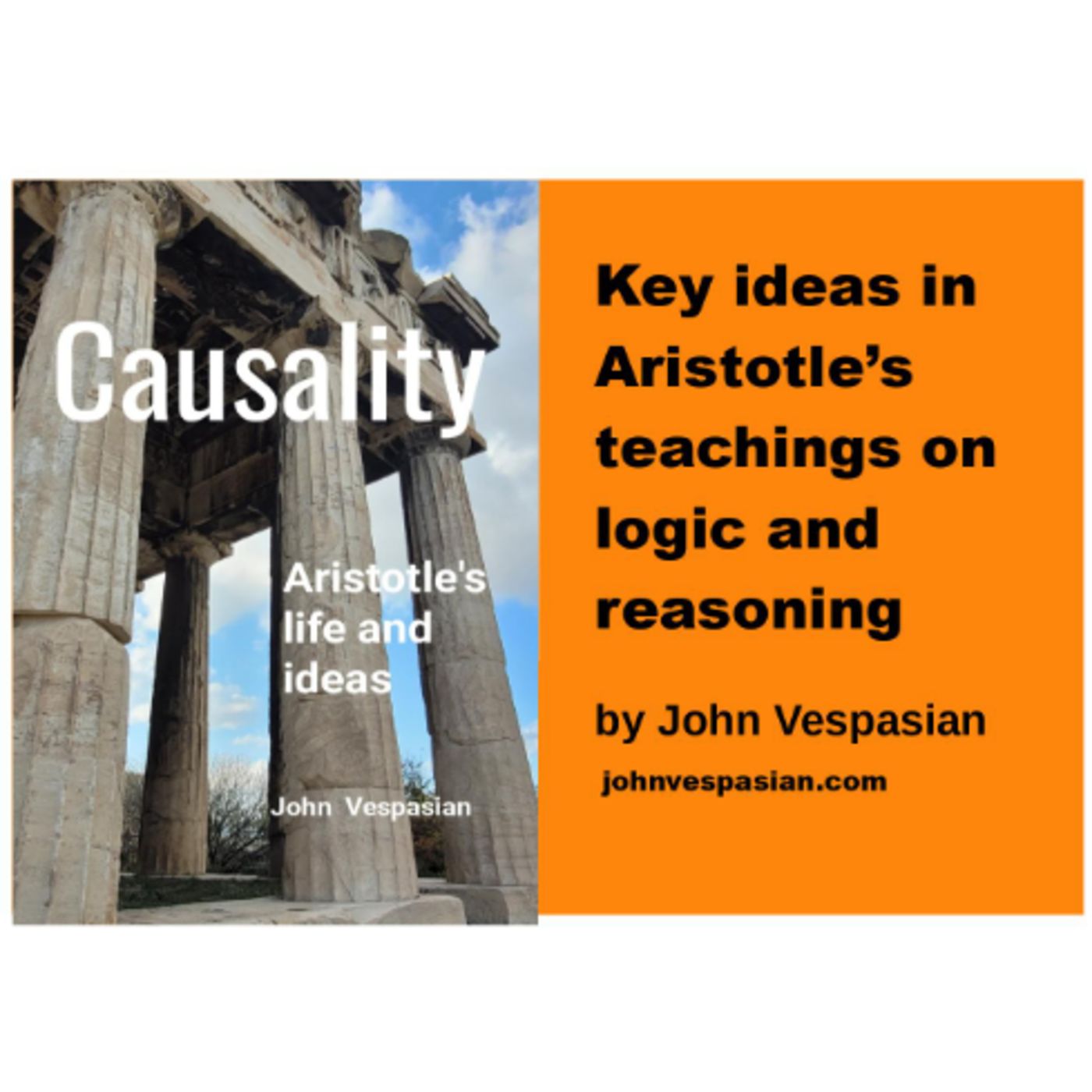
John VespasianKey ideas in Aristotle’s teachings on logic and reasoningThe philosophy of logic and reason developed by Aristotle (384-322 BC) is different from computer logic, religious logic, and other types of logic that have existed in history. John Vespasian explains that there are three distinct features that render Aristotelian logic unique. First, Aristotelian logic is linked to language. In would even specify that it is linked to human language. Humans have ways of thinking that are very different from those of computers. We can place statements in a psychological or ethical context, and draw extremely accurate conclusions from sketchy evidence. The fact that Aristotelian logic is based on human...
2025-03-1106 min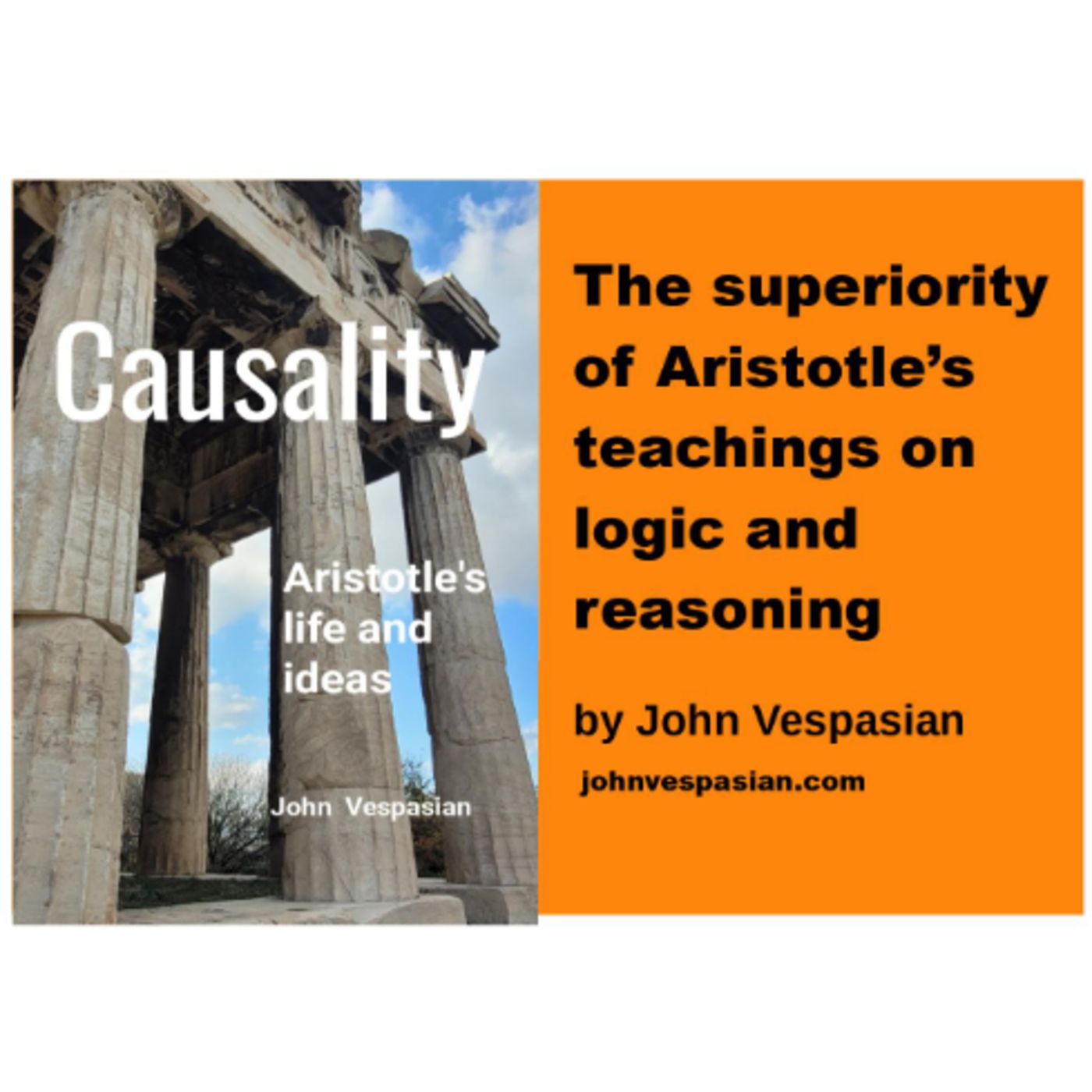
John VespasianThe superiority of Aristotle’s teachings on logic and reasoningJohn Vespasian explains that there are three aspects that render Aristotelian logic vastly superior to other logical systems. For attaining success in your private and professional life, Aristotle’s logic is indispensable. Let us pass review at the three aspects that make it so effective. First, Aristotelian logic relies on human perception. It does not need extrasensory inputs or religious insights to draw valid conclusions. It only needs facts or statements based on sensory data normally available to humans. That’s all it takes. Syllogisms, the logical method devised by Aristotle, operate on two premises that share a middle term, whic...
2025-03-1107 min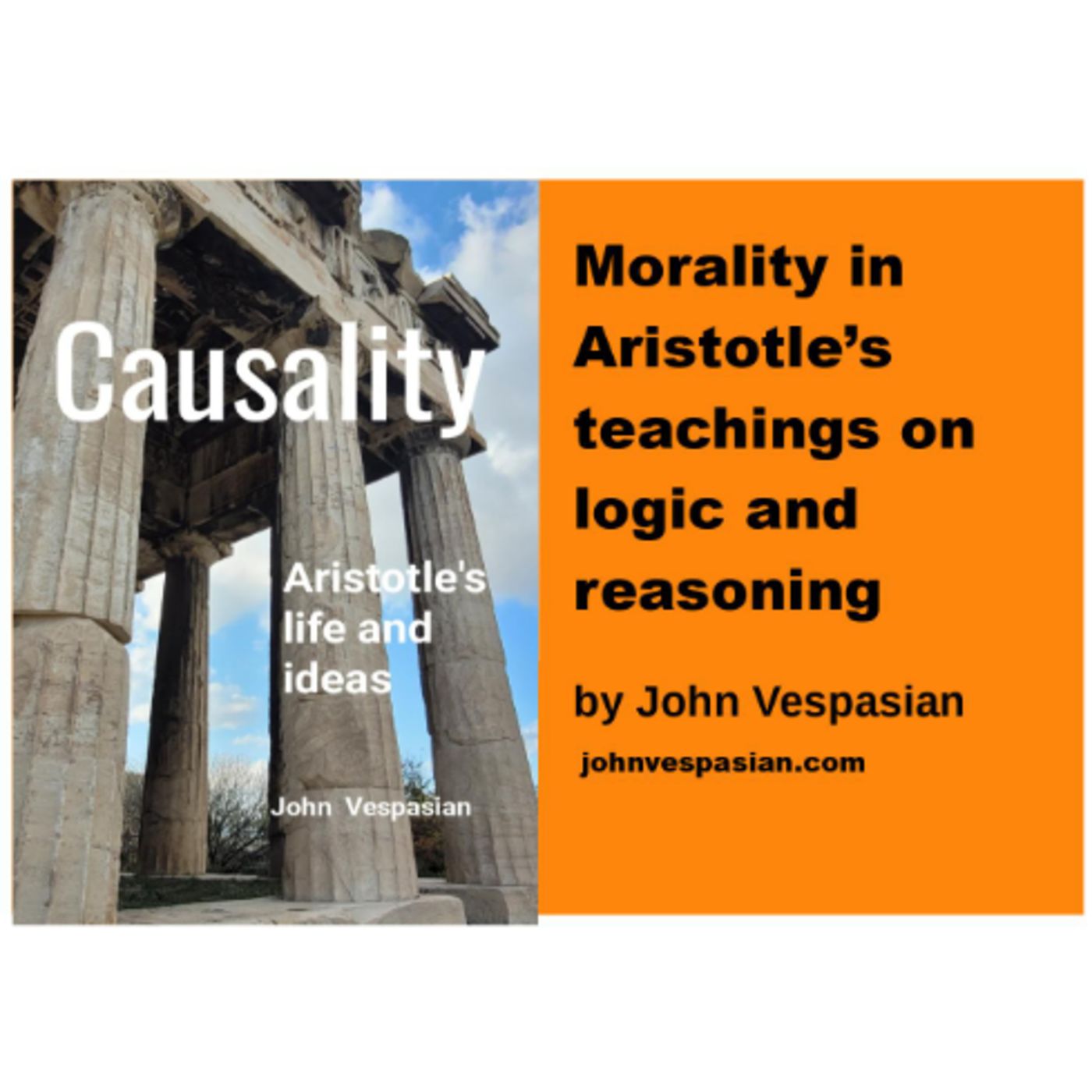
John VespasianMorality in Aristotle’s teachings on logic and reasoningIn contrast to other systems of logic, the one delineated by Aristotle (384-322 BC) understands the importance of purpose and gives a central role in how conclusions are drawn. John Vespasian explains that, when looking at entities and events, Aristotelian logic is not only asking how or why. It looks beyond the obvious and aims at clarifying the context. In his work “Metaphysics,” Aristotle recommended to study entities and events by looking at their constituent ingredients (“material cause”), at their shape (“formal cause”), at the force that moves them (“efficient cause”) and especially at their goal (“final cause”). Here is the link to the orig...
2025-03-1105 min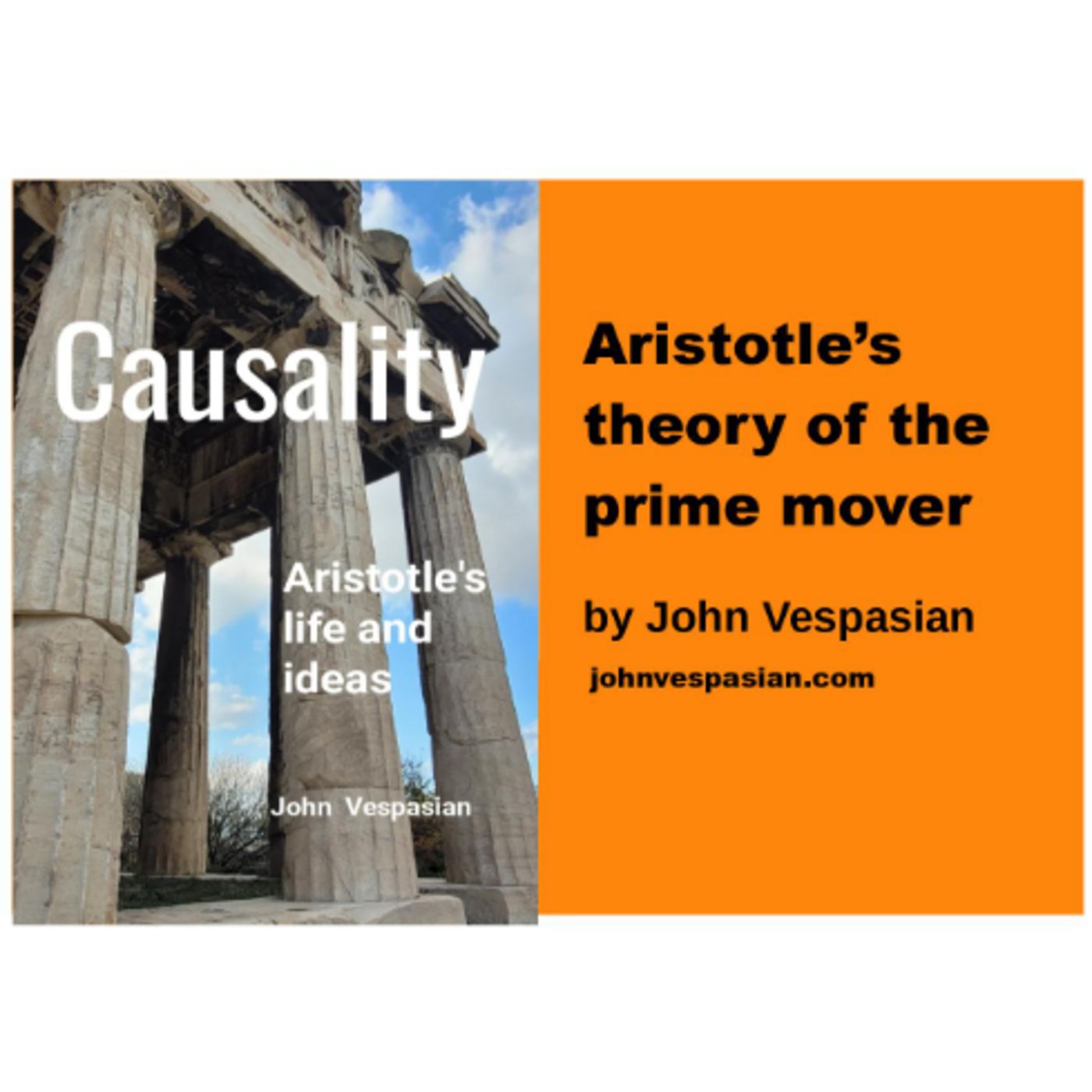
John VespasianAristotle’s theory of the prime moverIn his work “Metaphysics,” Aristotle presents the concept of the prime mover. Philosophers have also called it the unmoved mover, the prime cause, the prime mover, or the first cause. All those terms have the same meaning, namely, the idea that there is a single entity responsible for everything that happens. John Vespasian explains that Aristotle (384-322 BC) was not the first philosopher to put forward the theory of a single force driving the cosmos, but he kept the inventor’s glory because he wrote down his thoughts about the matter. In his work “Metaphysics,” Aristotle argued that there must be some un...
2025-03-1105 min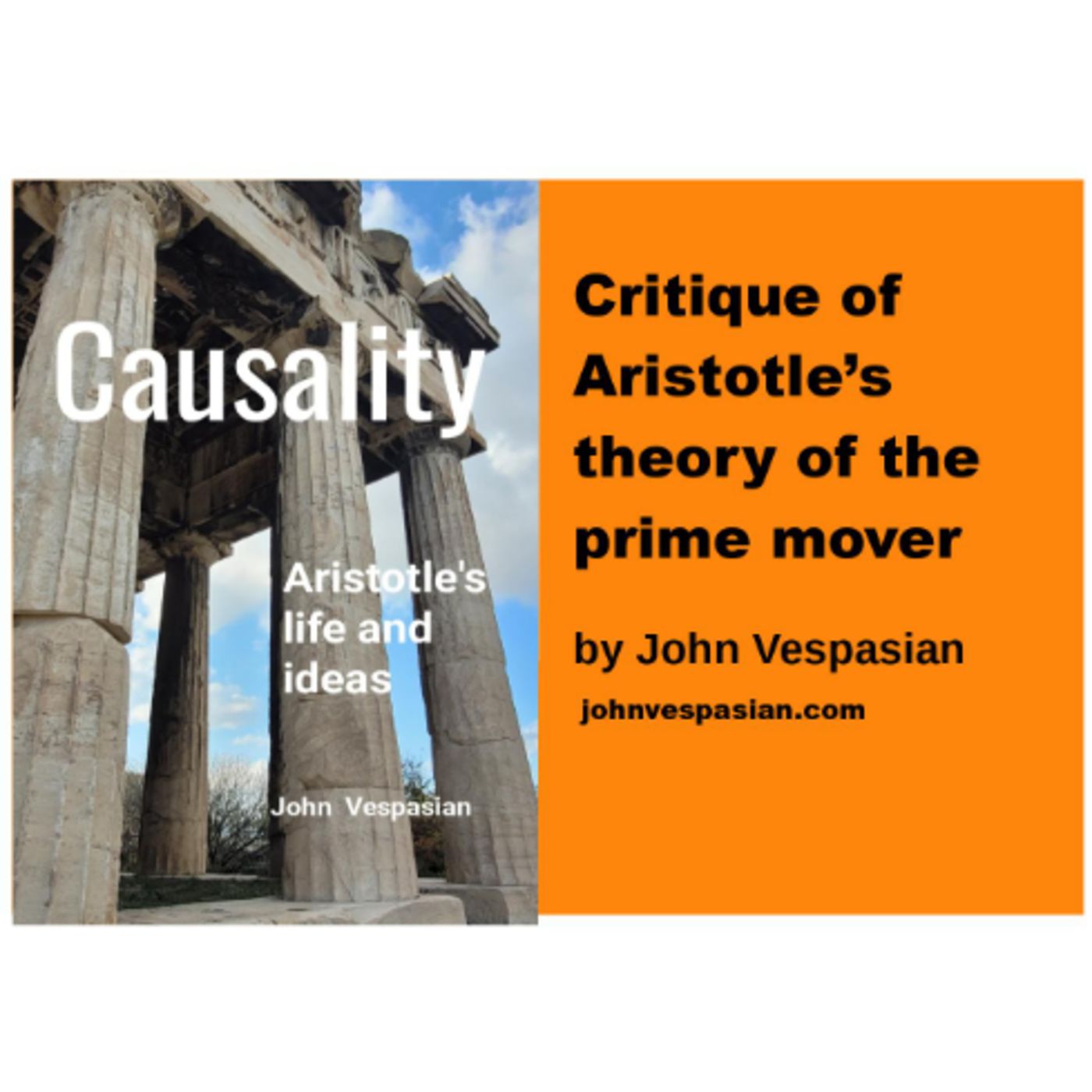
John VespasianCritique of Aristotle’s theory of the prime moverJohn Vespasian explains that, despite his enormous wisdom, Aristotle (384-322 BC) put forward the theory of the prime mover. He should have soon realized that the theory is false. Maybe he did realise, but the error remained uncorrected in the existing copies of his book “Metaphysics.” According to the prime-mover theory, there has to exist one eternal, intangible entity responsible for all events taking place in the world. Here is the link to the original article: https://johnvespasian.com/critique-of-aristotles-theory-of-the-prime-mover/
2025-03-1105 min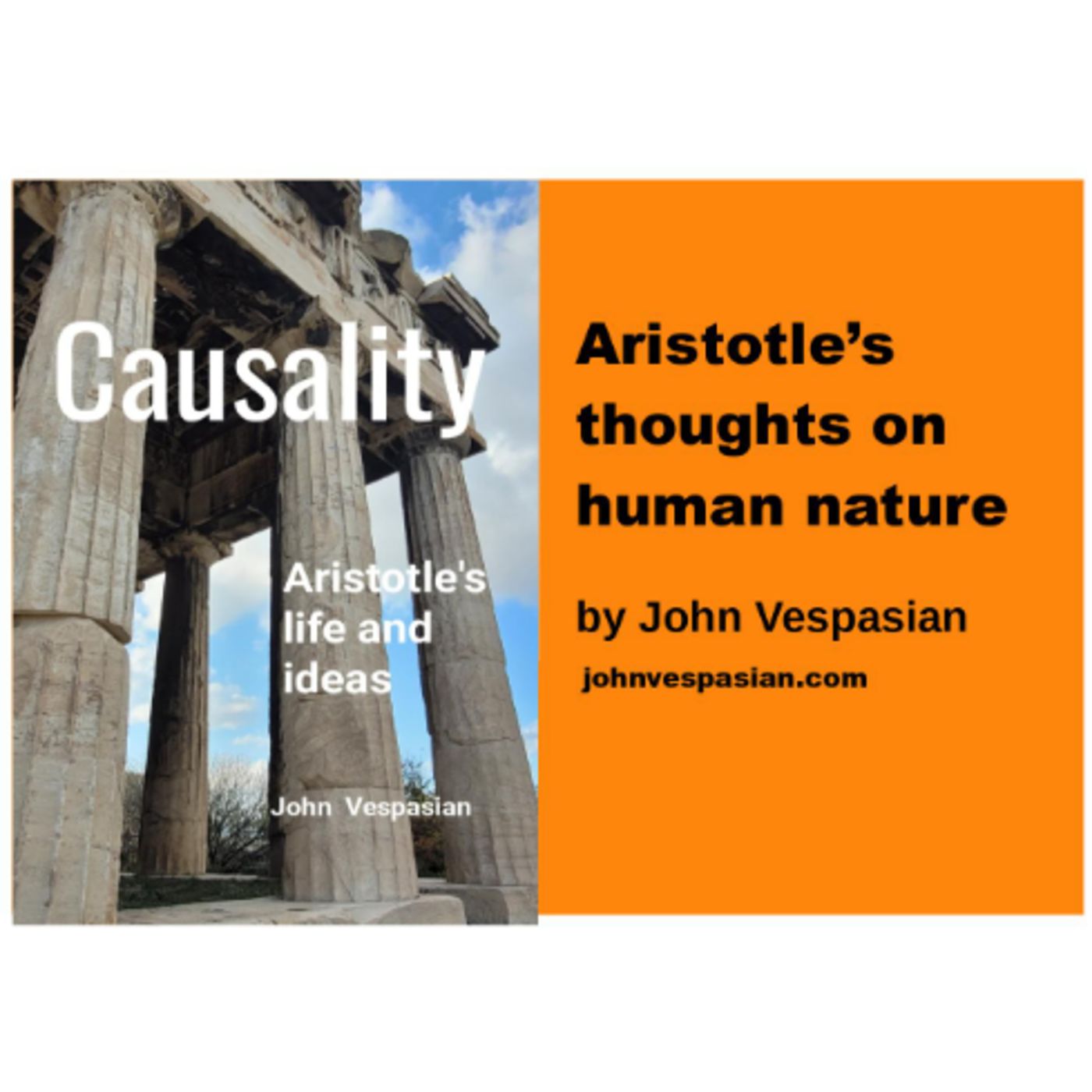
John VespasianAristotle’s thoughts on human natureThe great Aristotle (384-322 BC) presented his thoughts on human nature in his three books “Eudemian Ethics,” “Nicomachean Ethics,” and “Politics.” He wrote or dictated them in the last period of his life after he had started his own school (“the Lyceum”) in Athens. What is Aristotle’s key idea on human nature? John Vespasian explains that Aristotle defined humans as “rational animals.” Compared to all other creatures, humans are the only ones that possess the ability to reason and choose their behaviour on ethical grounds. As a result of their rationality, humans are uniquely able to give direction to their lives. They can...
2025-03-1105 min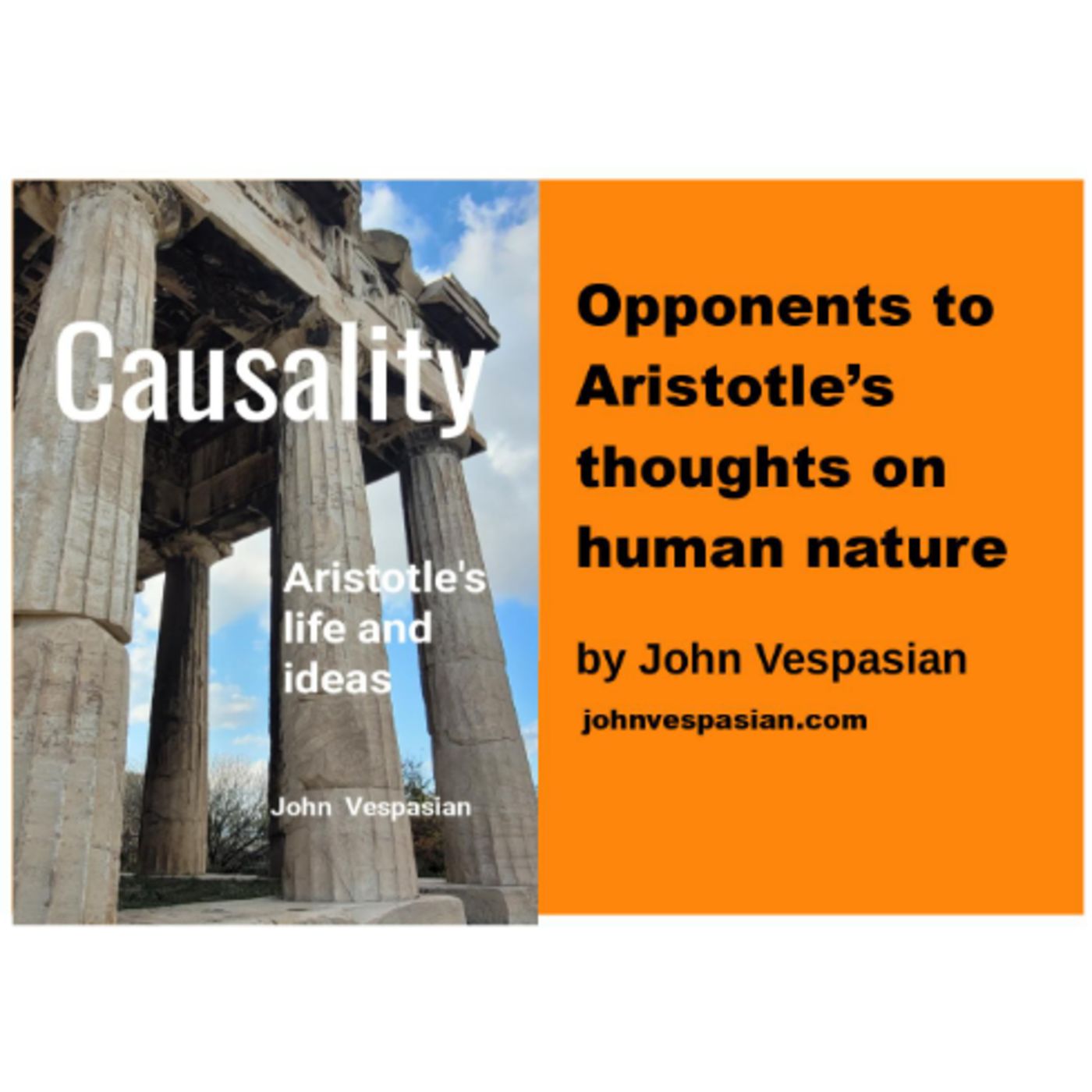
John VespasianOpponents to Aristotle’s thoughts on human natureThe optimism found in Aristotle’s view of human nature has been rarely shared by other philosophers. While Aristotle (384-422 BC) regarded humans as rational captains of their destiny, most thinkers in history have considered humans as deficient creatures driven by instincts and social pressure. John Vespasian explains that Aristotle’s predecessor and teacher Plato (429-347 BC) gave his views on human nature in his books titled “The Republic” and “Phaedo.” In “The Republic,” Plato theories about the division of the human soul in three parts (reason, emotions, and instincts). The same three parts appear in Aristotle’s writings. It’s clear that he had...
2025-03-1107 min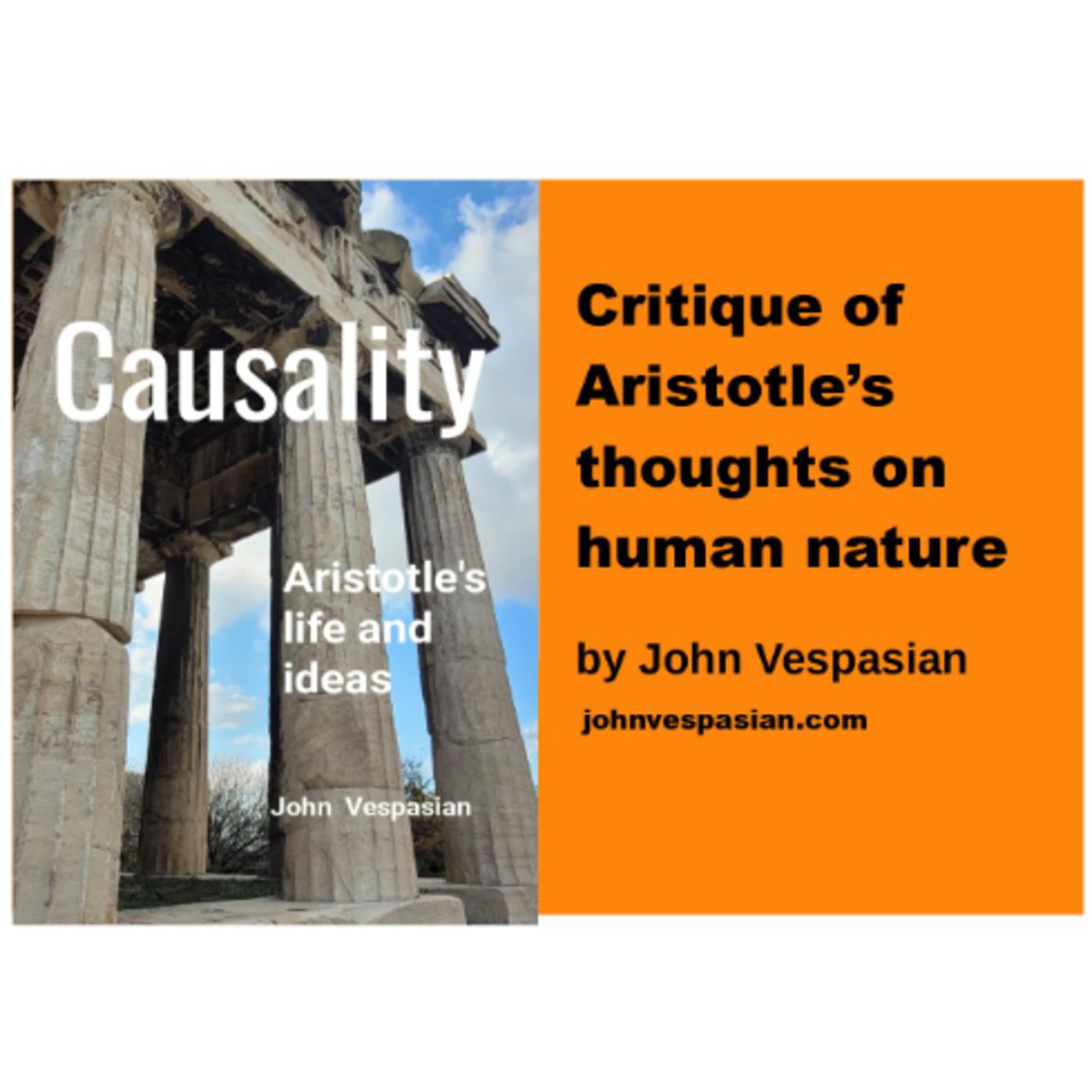
John VespasianCritique of Aristotle’s thoughts on human natureMany philosophers have attacked Aristotle’s conception of human beings as rational and self-directed, capable of setting goals and making plans to achieve them, and driven to achieve happiness. John Vespasian explains that Aristotle (384-322 BC) presented his thoughts on human nature in his works “Eudemian Ethics,” “Nicomachean Ethics” and “Politics.” All of them were written or dictated in the years 335-321 BC after Aristotle had opened The Lyceum, his school in Athens. The optimism in Aristotle’s work is seldom shared by later philosophers. Aristotle viewed the achievement of happiness as normal. He considered that human beings are normally able to attain t...
2025-03-1107 min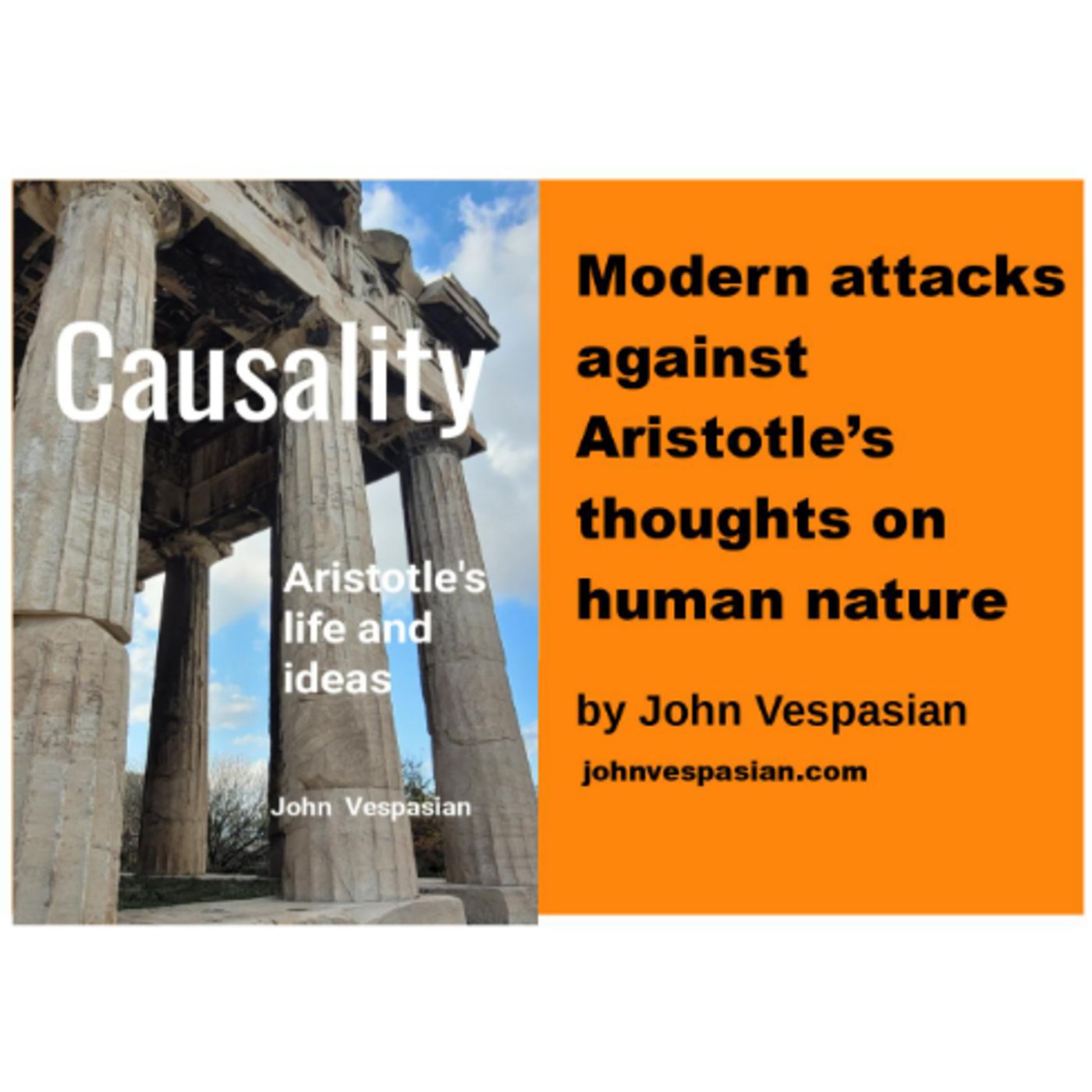
John VespasianModern attacks against Aristotle’s thoughts on human natureIt’s unfortunate that modern philosophers have devoted vast efforts to attacking the self-confident and optimistic views put forward by Aristotle (384-322 BC) on human nature and life’s purpose. John Vespasian explains that Aristotle conveyed his main premise in his works “Politics,” “Eudemian Ethics” and “Nicomachean Ethics,” namely, that it is the essence of human beings to be rational. In contrast to all animals, we can think, assess facts, develop theories, draw our own conclusions, and test them against reality. While animals have narrow choices, humans can determine which goals to pursue, how to allocate their energies and their other resources...
2025-03-1107 min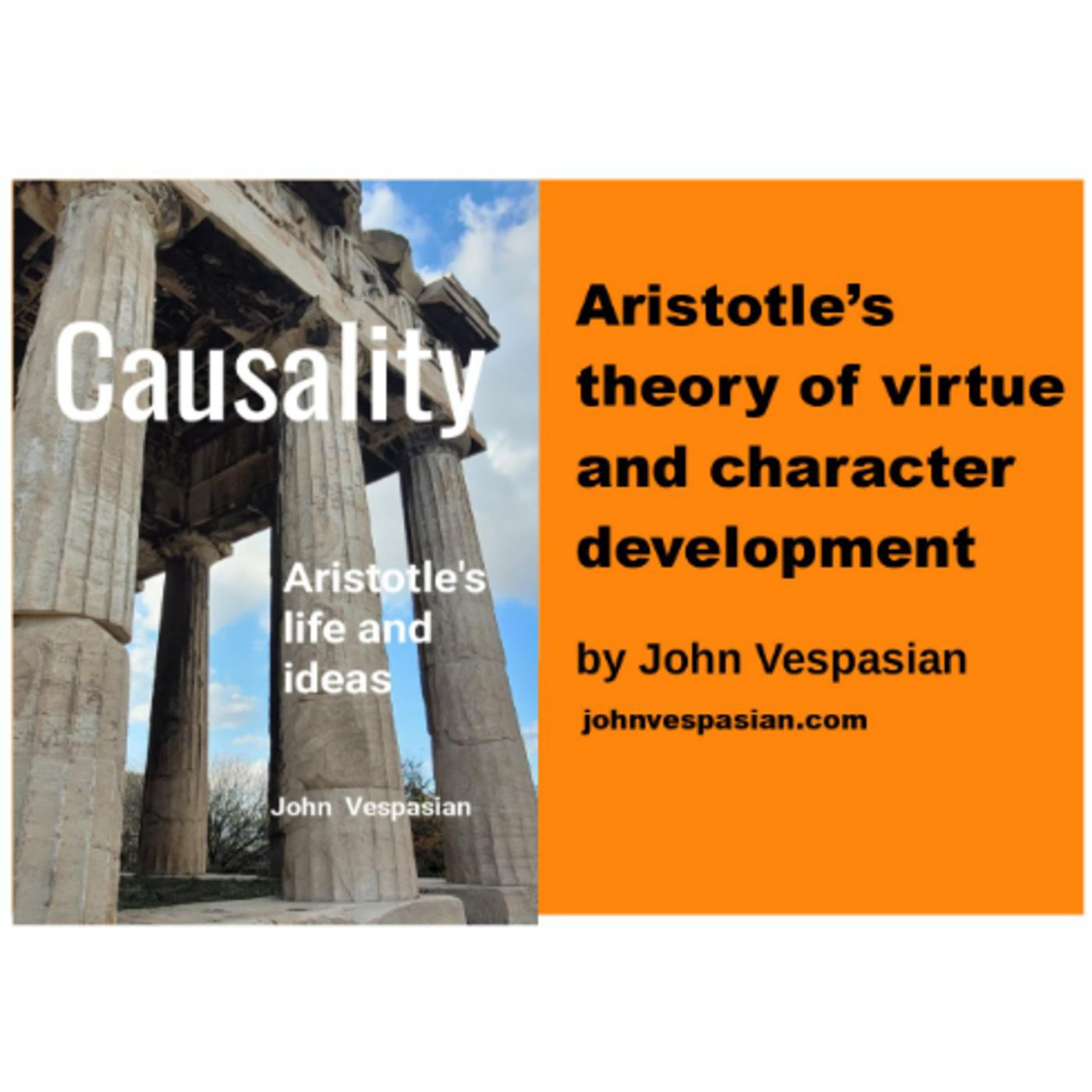
John VespasianAristotle’s theory of virtue and character developmentIn contrast to thinkers preaching altruism and self-sacrifice, the theory of virtue developed by Aristotle (384-322 BC) aims at the achievement of happiness. John Vespasian explains that Aristotle regarded character development as a tool for facilitating happiness. Aristotle wrote two treatises presenting his theory of virtue and character development, namely, the “Nicomachean Ethics” and the “Eudemian Ethics.” He wrote or dictated those two works in the years between 335 BC and 321 BC, while he was teaching at the Lyceum, the school he had opened in Athens. According to Aristotle, the practise of virtues (which he had defined as habits that lead to achie...
2025-03-1107 min
John VespasianSchopenhauer and Indian philosophyThe influence of Indian religion on Arthur Schopenhauer (1788-1960) falls within a growing interest of Western thinkers in Eastern culture. John Vespasian explains that, in the field of art, such a tendency has been named “Orientalism” and is observable particularly amongst French painters. In the period 1810-1820, Schopenhauer became acquainted with Indian philosophy by reading its foundational texts, that is, the Upanishads and the Bhagavad Gita. Those give an outline of the three key concepts in Indian religion, namely, the concepts of Maya and Atman. By “Maya,” Hindus mean a world perception that is tainted by delusion or prejudice. Hindus consider...
2025-02-2706 min
John VespasianDifferences between Schopenhauer and Indian philosophyWhen Arthur Schopenhauer (1788-1860) studied Indian or Hindu philosophy, he didn’t restrict himself to the foundational texts. John Vespasian explains that Schopenhauer read the Upanishads and the Bhagavad Gita but those lack the subtle interpretations made by Hindu thinkers across the centuries. Schopenhauer adopted early in his career some Hindu tenets and conveyed them, in his own words, in his book “The world as will and representation” first published in 1818. For instance, Schopenhauer wrote that the pursuit of short- term pleasure leads to disillusionment, because the hunger for additional pleasures cannot be stilled. It’s going to lead to more cra...
2025-02-2708 min
John VespasianSchopenhauer’s views on religionArthur Schopenhauer (1788-1860) deployed large efforts to study Christianity and Eastern religions. John Vespasian explains that Schopenhauer's goal was to draw the best ethical advice from religion. Although Schopenhauer devoted long years to studying religion, his theory of the will (“life force”) has no direct connection to religion and his ethics are equally far from divinities and devotionals. The key idea in Schopenhauer’s philosophy is that the world is governed by the will, that is, a blind, irrational force driving all creatures towards securing their survival and reproduction, and towards seeking pleasure. More often than not, observed Schopenhauer, the influe...
2025-02-2705 min
John VespasianSchopenhauer’s philosophy of art and beautyArtistic contemplation plays a major role in the philosophy of Arthur Schopenhauer (1788-1860). John Vespasian explains that art conveys reality in an immediate manner, enabling humans to grasp crucial elements without need of complex explanations. According to Schopenhauer, artistic contemplation enables people to escape the dire influence of the will (“life force”) and increase their self-awareness. In his books “The world as will and representation” (1818) and “Parerga and Paralipomena” (1851), Schopenhauer shows how to avert the influence of the will and improve one’s life by making better decisions. Artistic contemplation constitutes a method to step aside for a while from the relentless...
2025-02-2706 min
John VespasianCriticism of Schopenhauer’s philosophy of art and beautyDespite his efforts to develop a coherent philosophy of art and beauty, Arthur Schopenhauer (1788-1860) missed essential elements. John Vespasian explains that Schopenhauer's aesthetics theory is incomplete because it defines beauty as harmony and symmetry, that is, he exclusively refers to aspects perceivable by the senses. Why is Schopenhauer’s art theory incomplete? Because it is leaving out major art forms. His arguments about harmony and symmetry are applicable to paintings, sculpture, architecture or decorative arts. Here is the link to the original article: https://johnvespasian.com/criticism-of-schopenhauers-philosophy-of-art-and-beauty/
2025-02-2705 min
John VespasianSchopenhauer’s views on geniusFor Arthur Schopenhauer (1788-1860), creativity is the key element in genius. However, Schopenhauer defined creativity in an unusual way. John Vespasian explains that Schopenhauer was not referring to the ability to create new concepts by recombining existing ones. No, he was referring to the rare ability to come up with breakthrough, surprising ideas. His theory of the will (life force) doesn’t attribute creativity to nature. Schopenhauer viewed the will as a wild, blind force that drives all living creatures to secure their reproduction and survival, and seek short-term pleasure regardless of the cost. Here is the link to the or...
2025-02-2705 min
John VespasianAnalysis of Schopenhauer’s views on the meaning of lifeWas Arthur Schopenhauer (1788-1860) a subjective thinker? Did he reject an objective philosophy, where the concepts of good and bad are universally defined? What’s the difference between Schopenhauer and subjective thinkers? John Vespasian explains that Schopenhauer wasn’t a subjective thinker. His book “The world as will and representation” (1818) outlines the theory of the will, which sustains that all living entities are driven by a life force (“the will”) to ensure their survival and reproduction. The comparison with a subjective thinker is the best way to present Schopenhauer’s views on the meaning of life; for the comparison, John Vespasian choo...
2025-02-2607 min
John VespasianAnalysis of Schopenhauer’s views on the meaning of lifeWas Arthur Schopenhauer (1788-1860) a subjective thinker? Did he reject an objective philosophy, where the concepts of good and bad are universally defined? What’s the difference between Schopenhauer and subjective thinkers? John Vespasian explains that Schopenhauer wasn’t a subjective thinker. His book “The world as will and representation” (1818) outlines the theory of the will, which sustains that all living entities are driven by a life force (“the will”) to ensure their survival and reproduction. The comparison with a subjective thinker is the best way to present Schopenhauer’s views on the meaning of life; for the comparison, John Vespasian choo...
2025-02-2607 min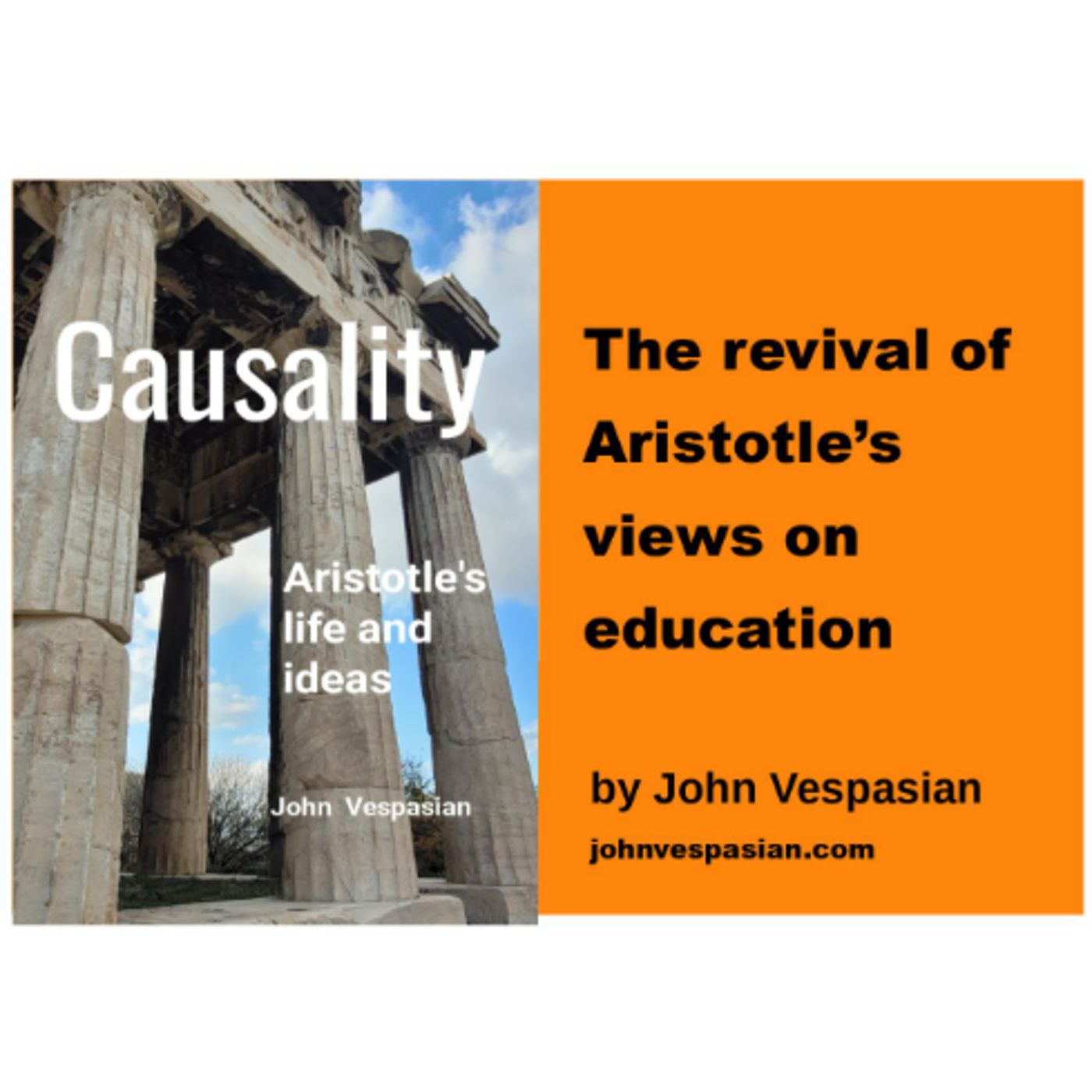
John VespasianThe revival of Aristotle’s views on educationThe twentieth century has generated three serious initiatives to revive the educational philosophy put forward by Aristotle (384-322 BC), or similar to his. John Vespasian explains Aristotle's views on education compared to John Dewey's, Carl Roger's, and Maria Montessori's. He also explains the uniqueness of Aristotle's views on education. Here is the link to the original article: https://johnvespasian.com/the-revival-of-aristotles-views-on-education/
2025-02-2608 min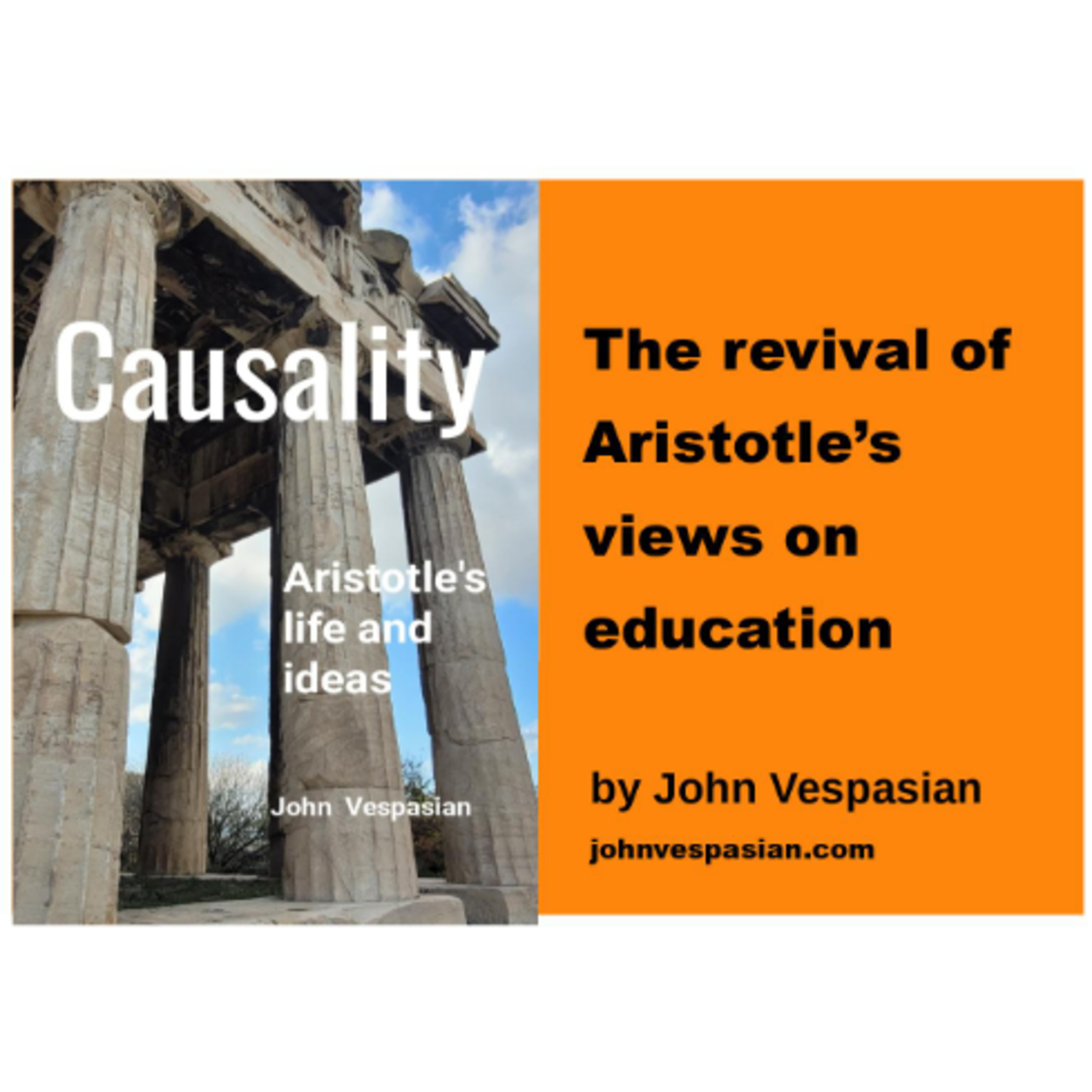
John VespasianThe revival of Aristotle’s views on educationThe twentieth century has generated three serious initiatives to revive the educational philosophy put forward by Aristotle (384-322 BC), or similar to his. John Vespasian explains Aristotle's views on education compared to John Dewey's, Carl Roger's, and Maria Montessori's. He also explains the uniqueness of Aristotle's views on education. Here is the link to the original article: https://johnvespasian.com/the-revival-of-aristotles-views-on-education/
2025-02-2608 min